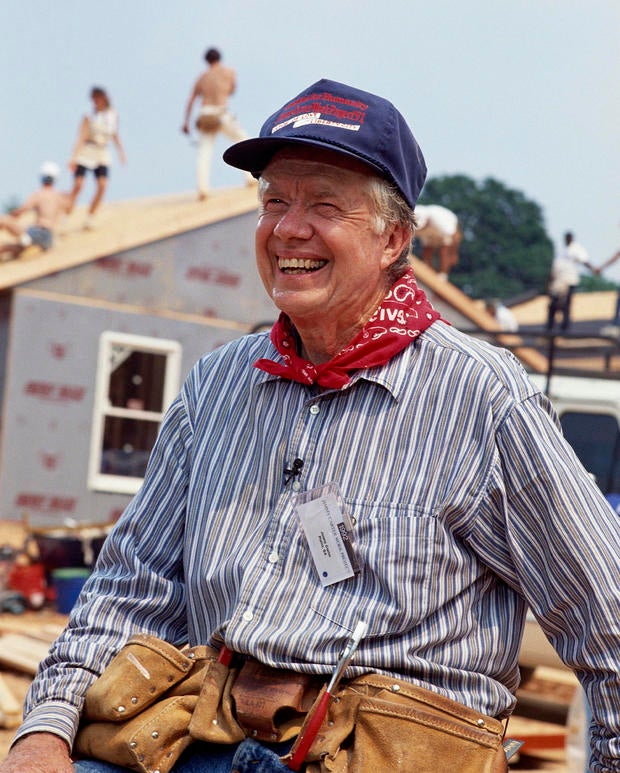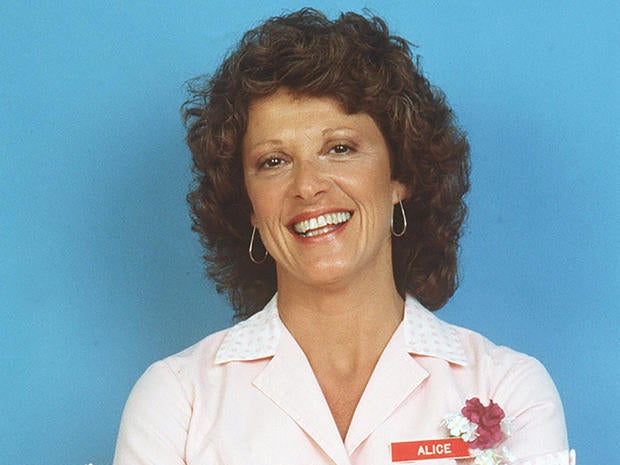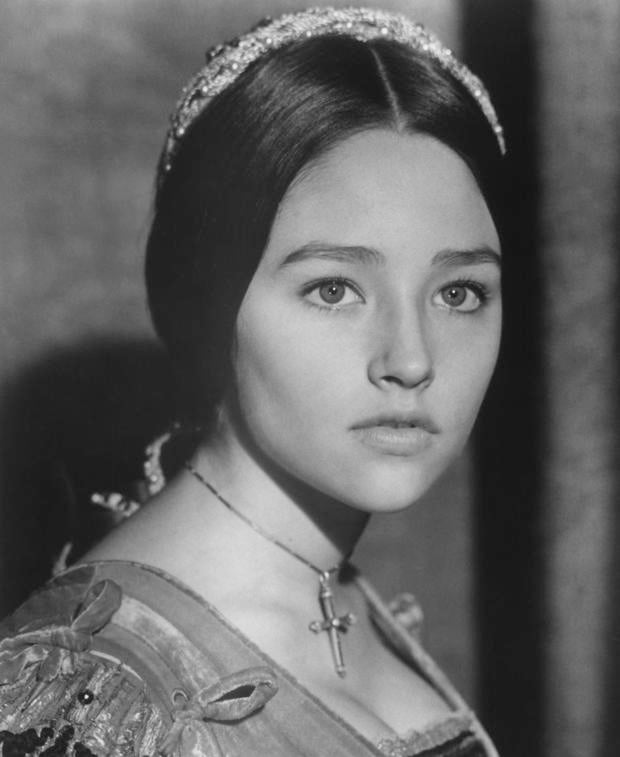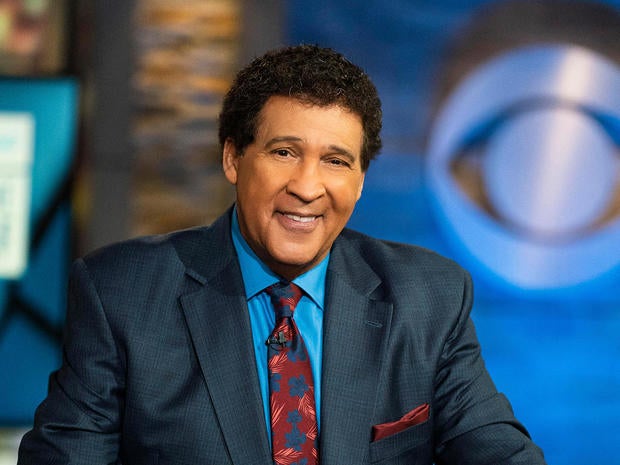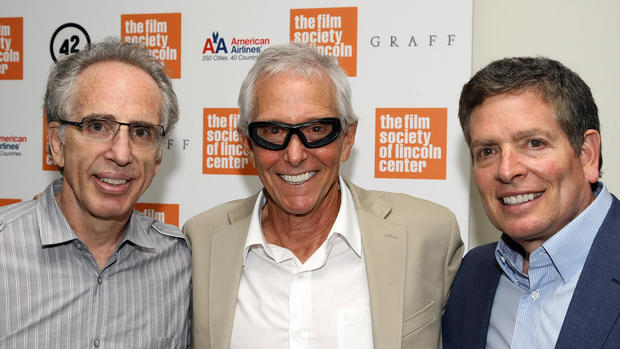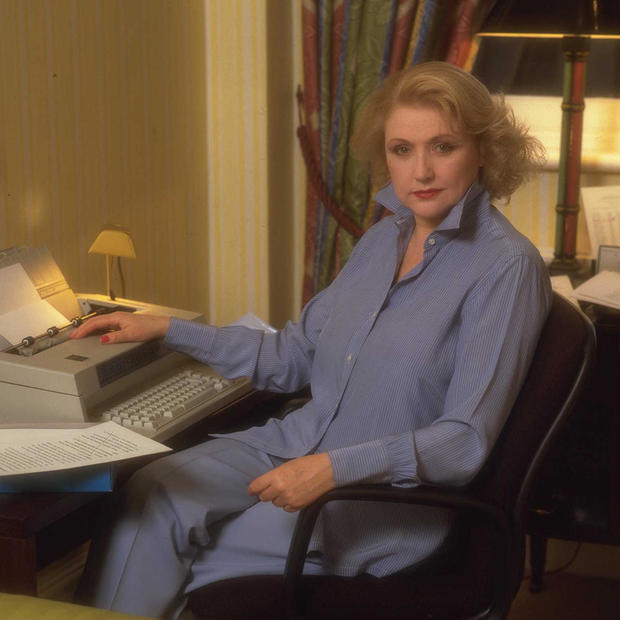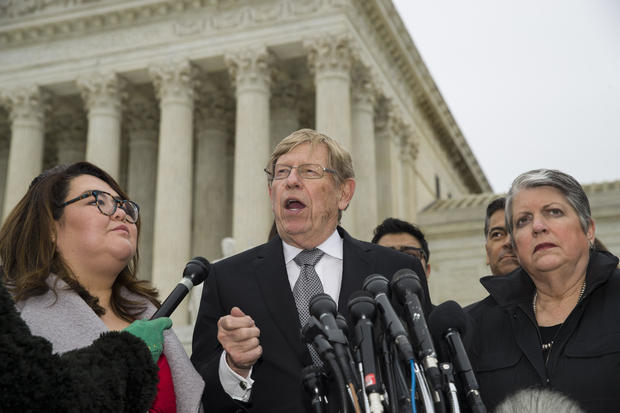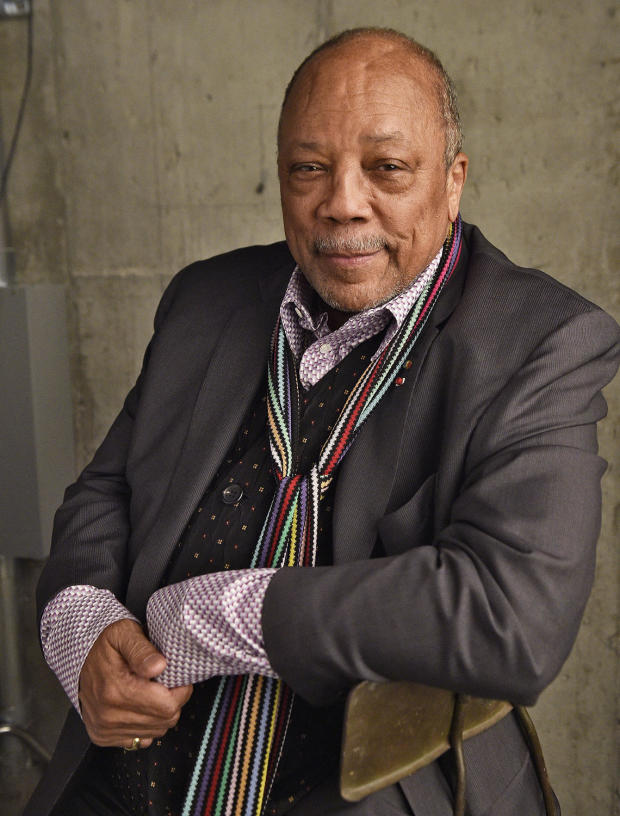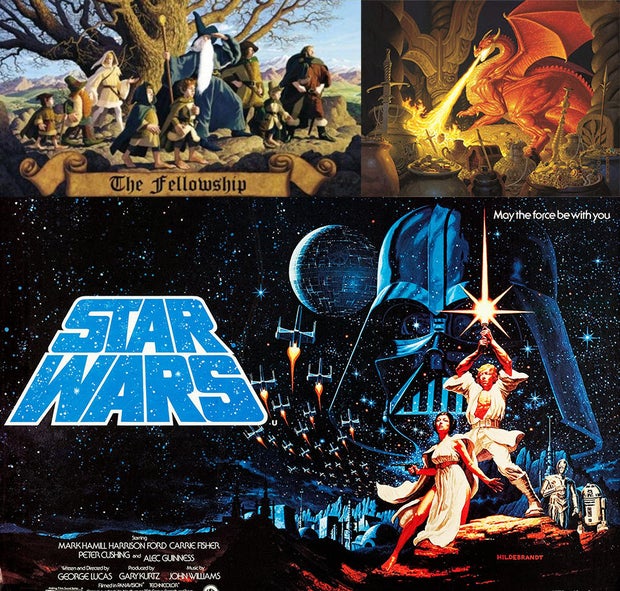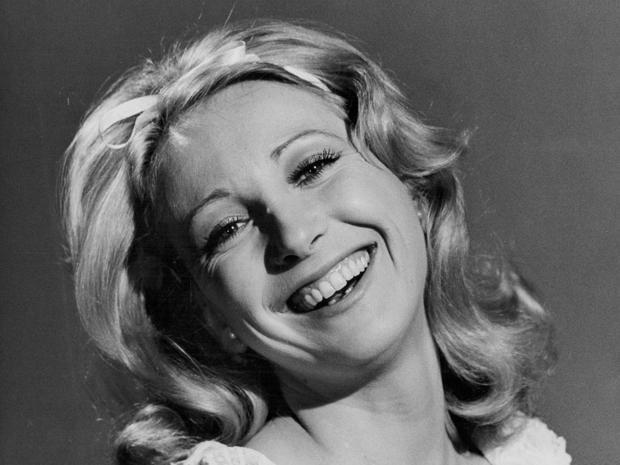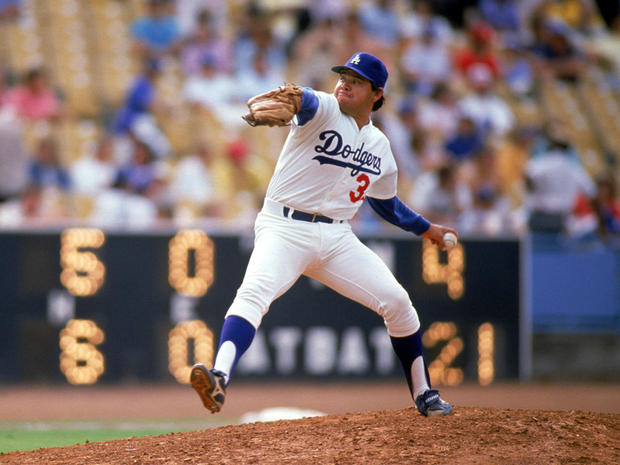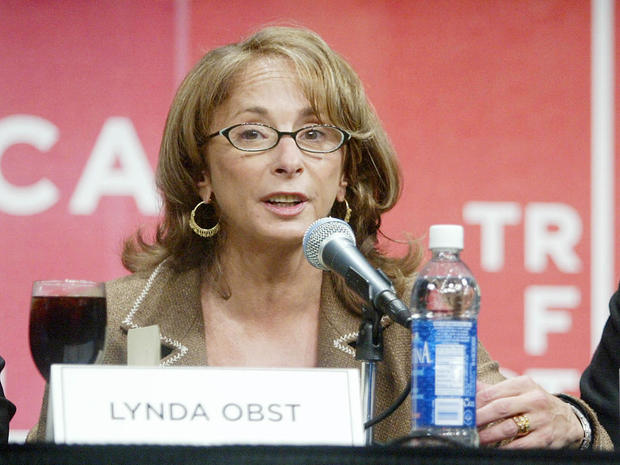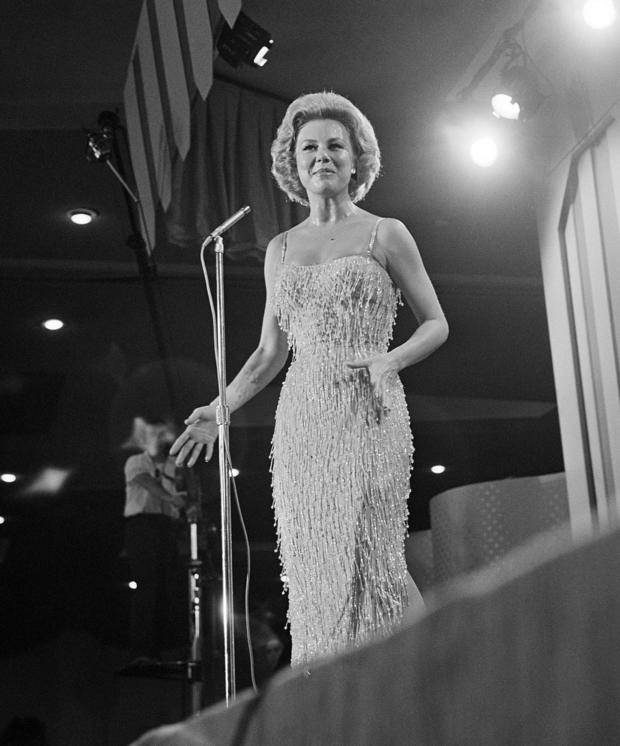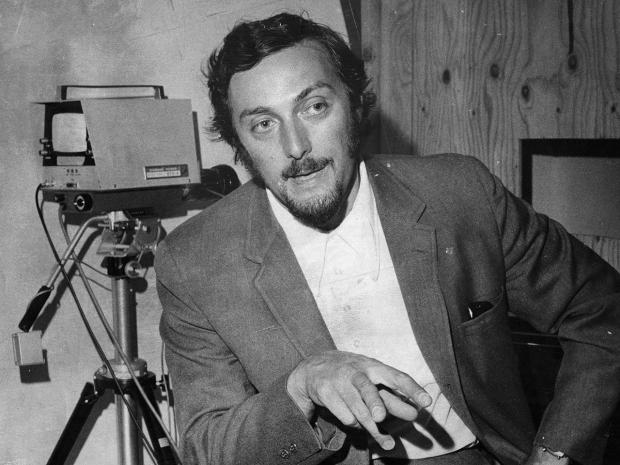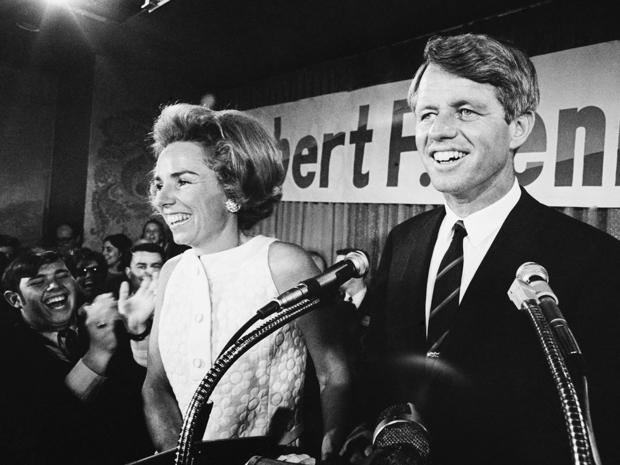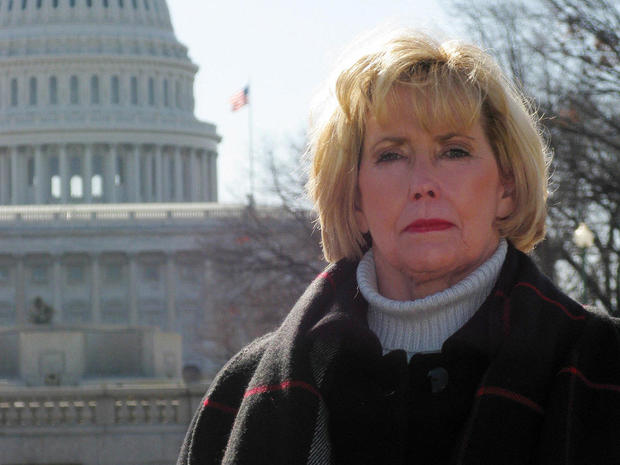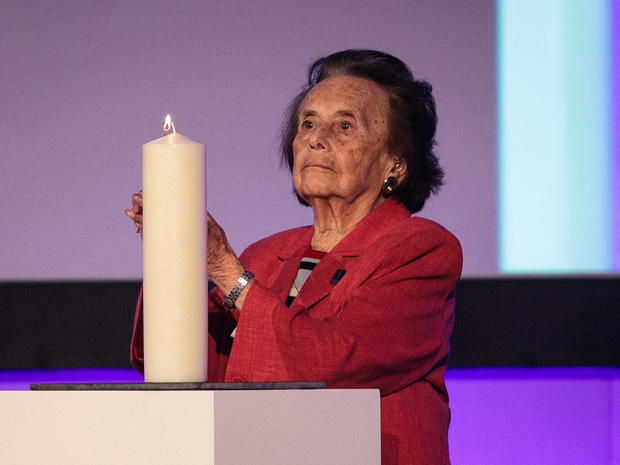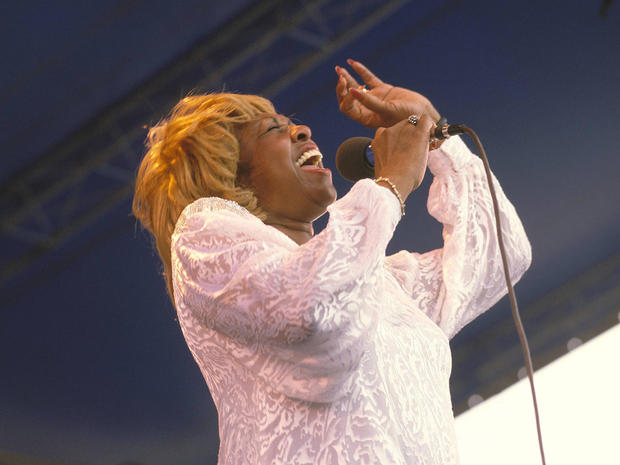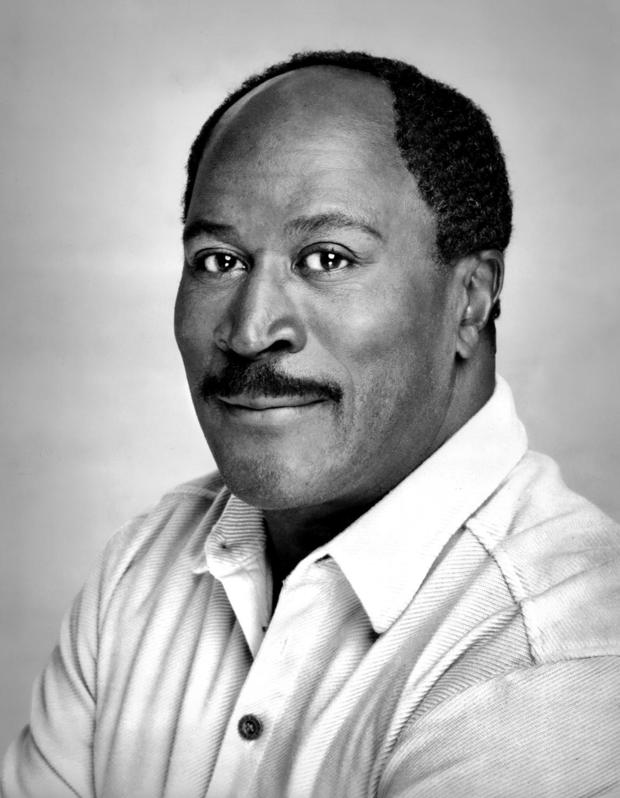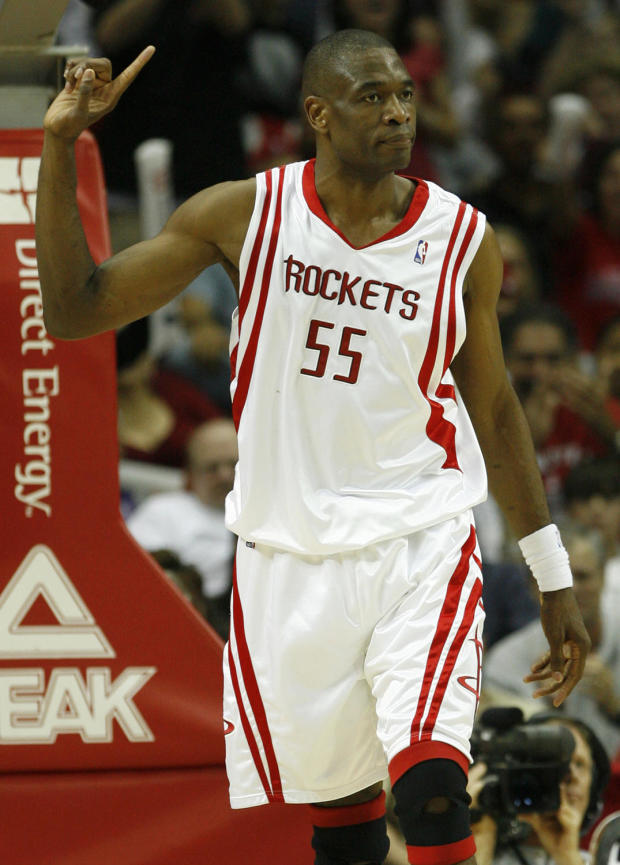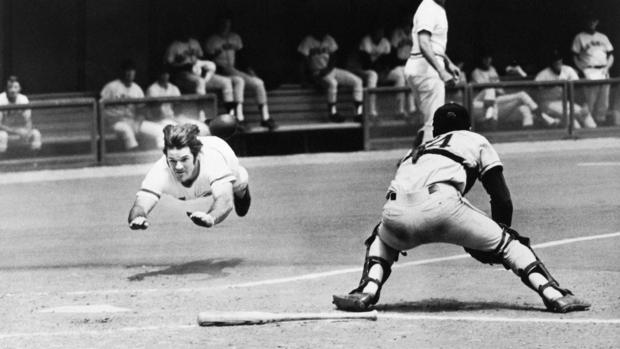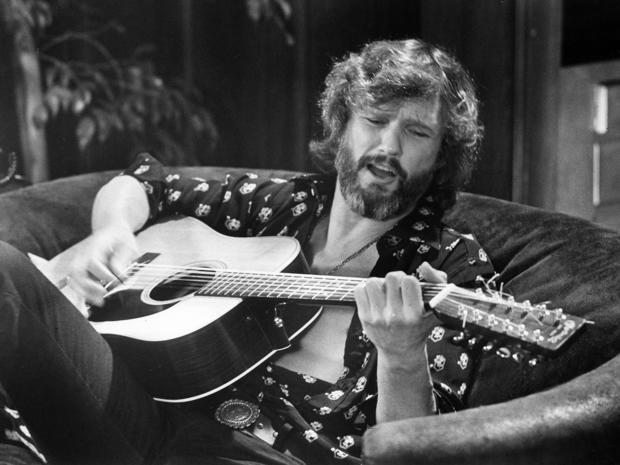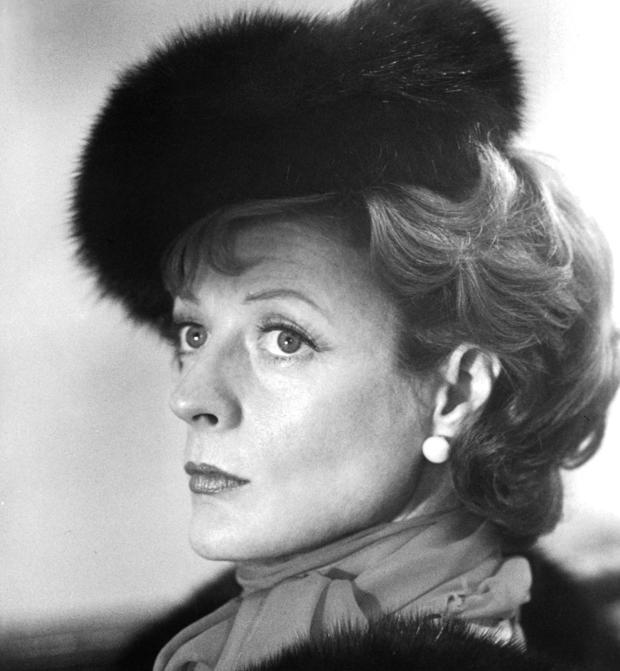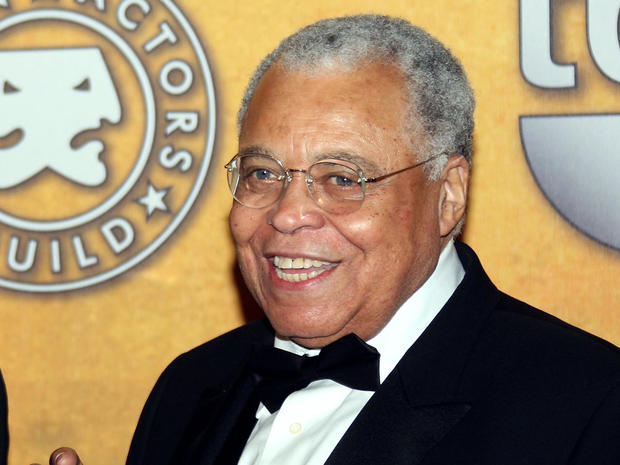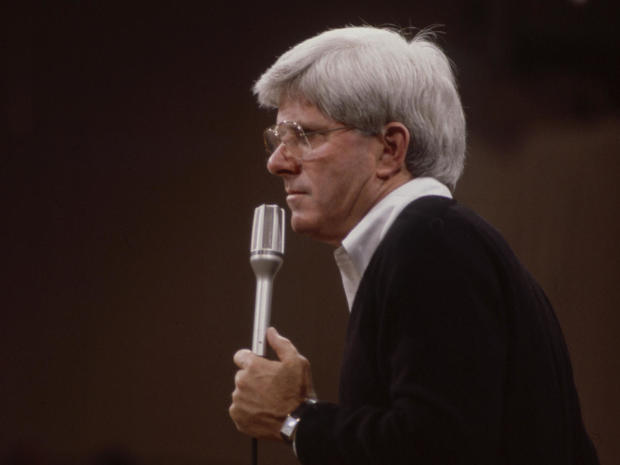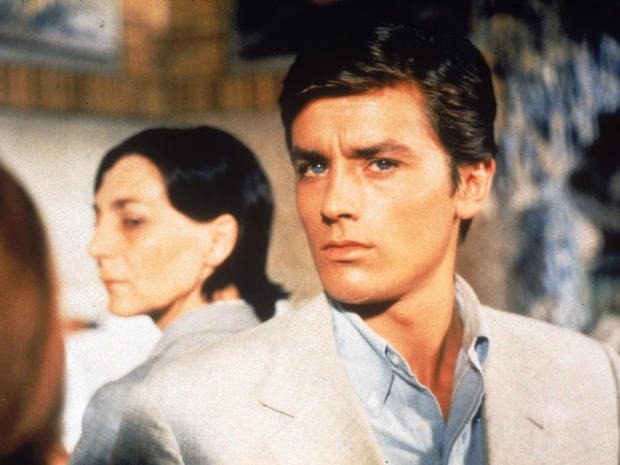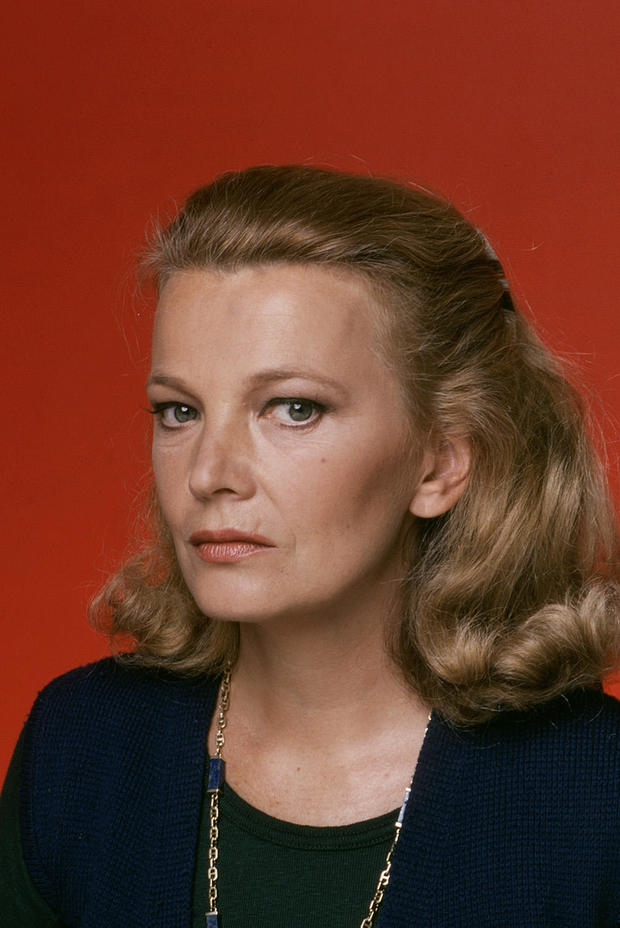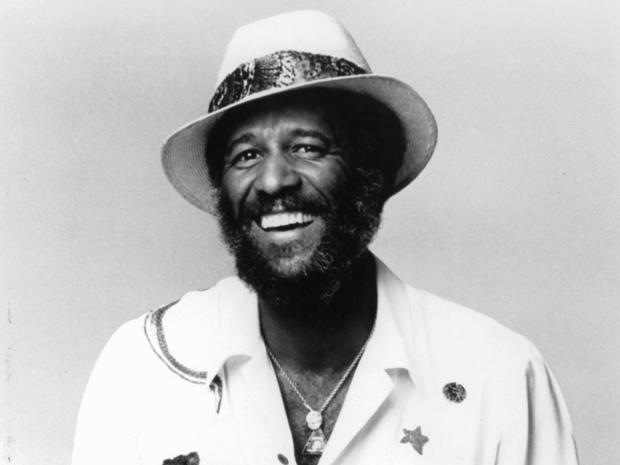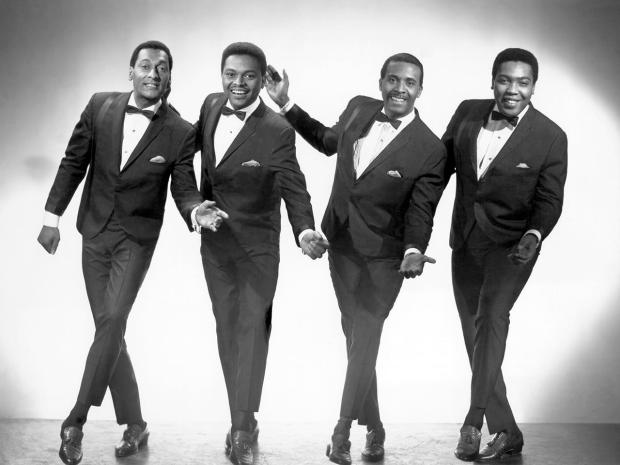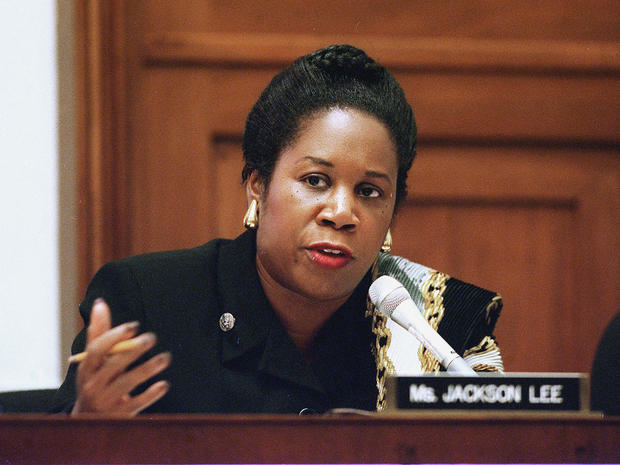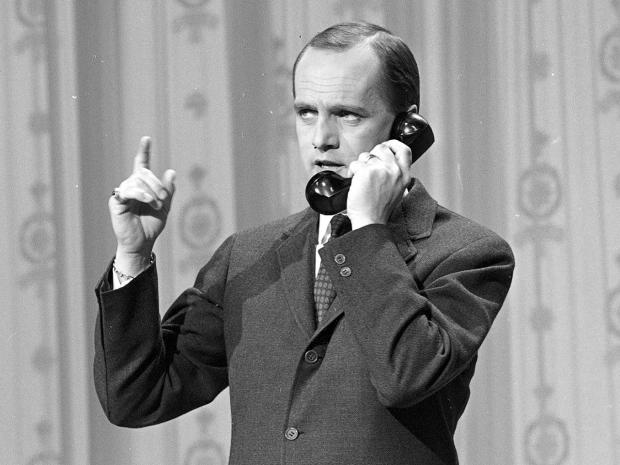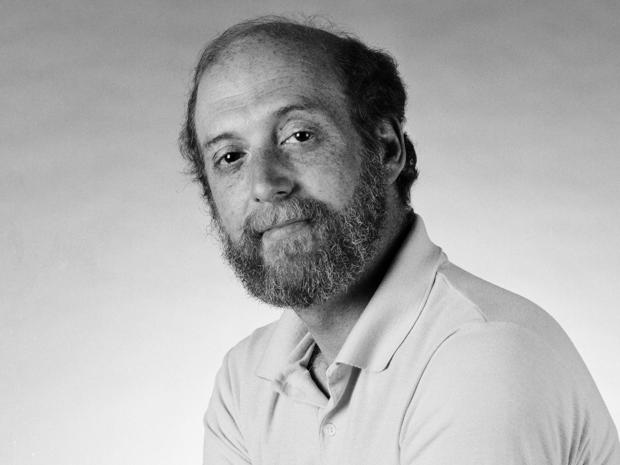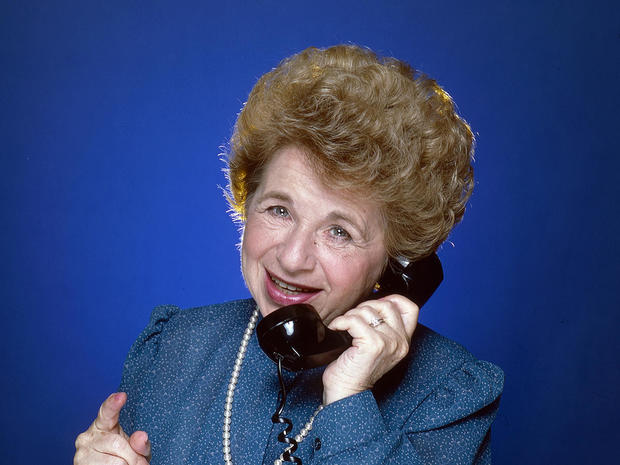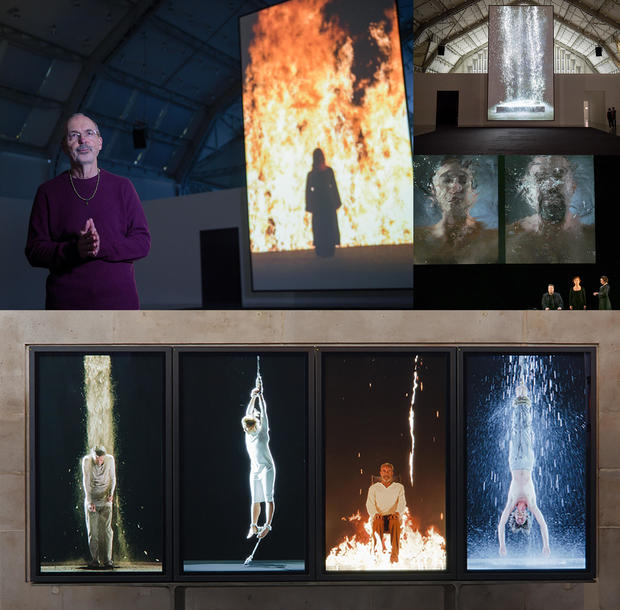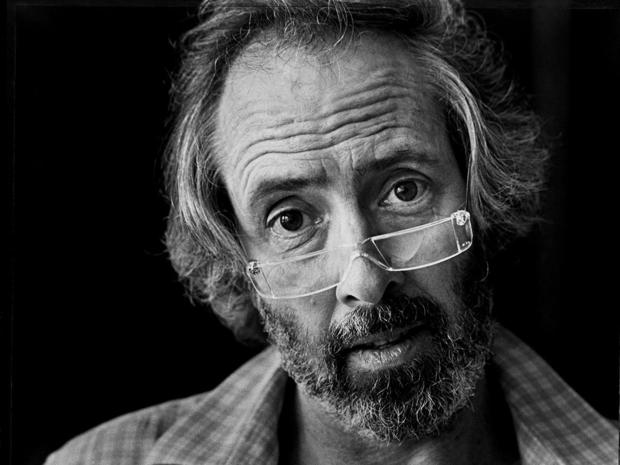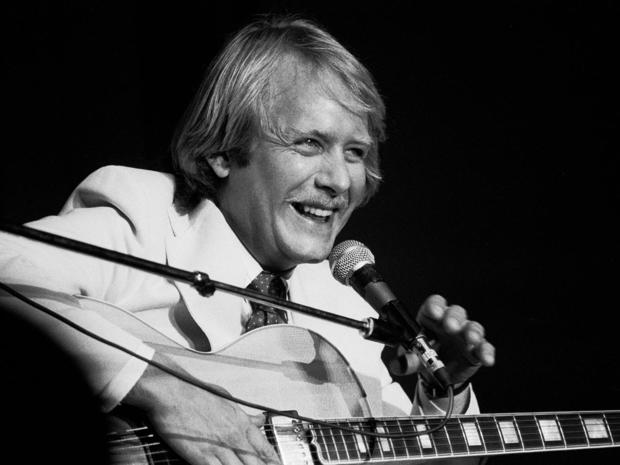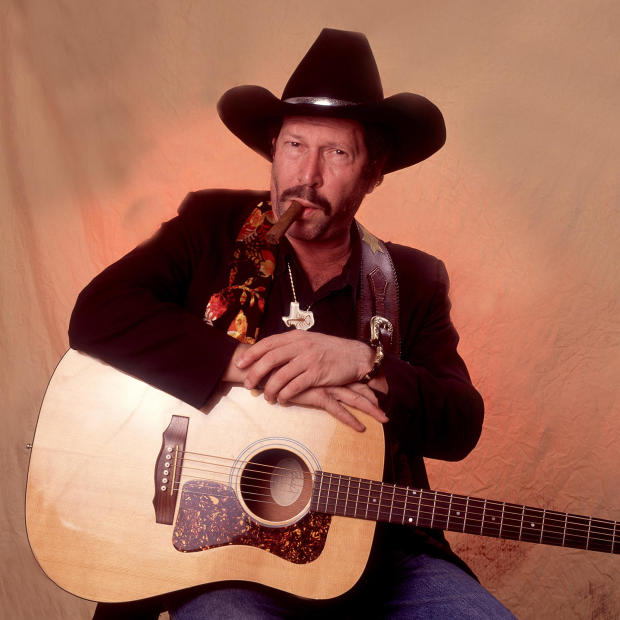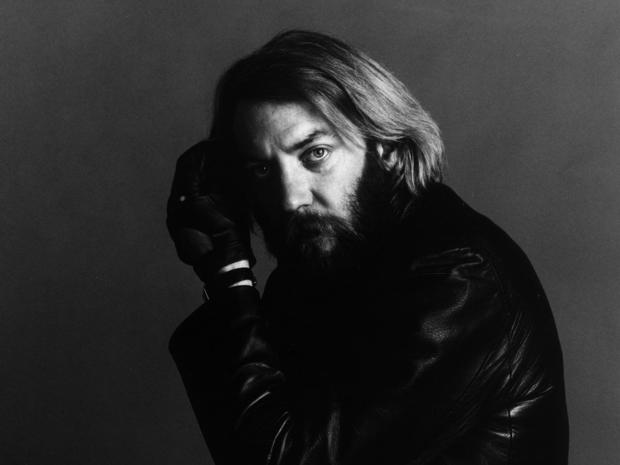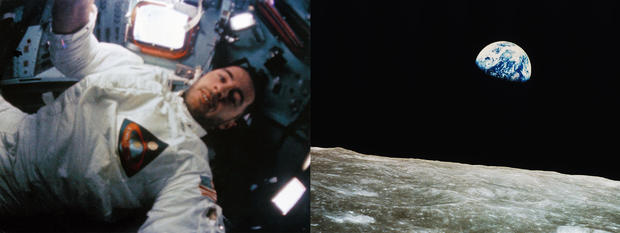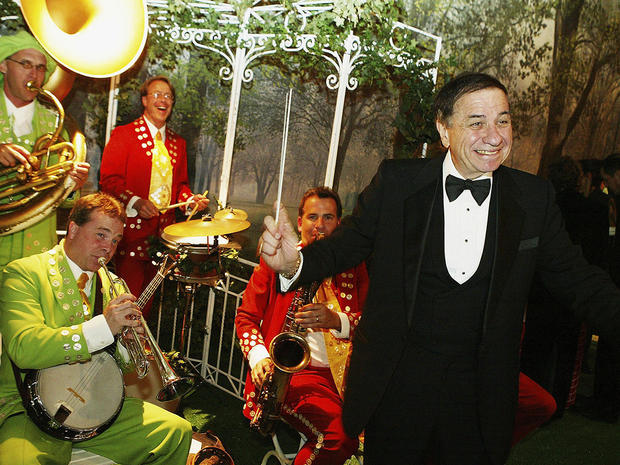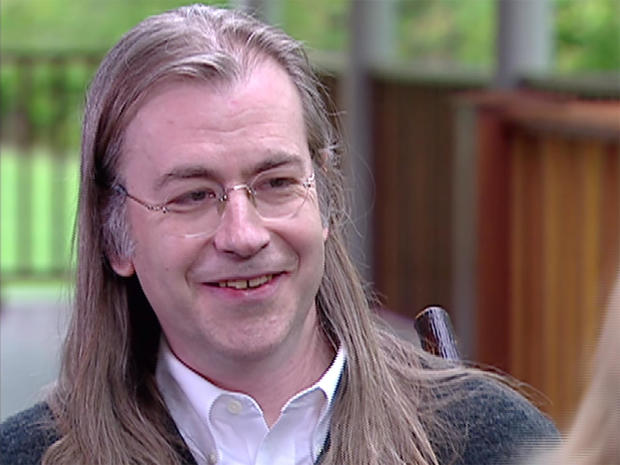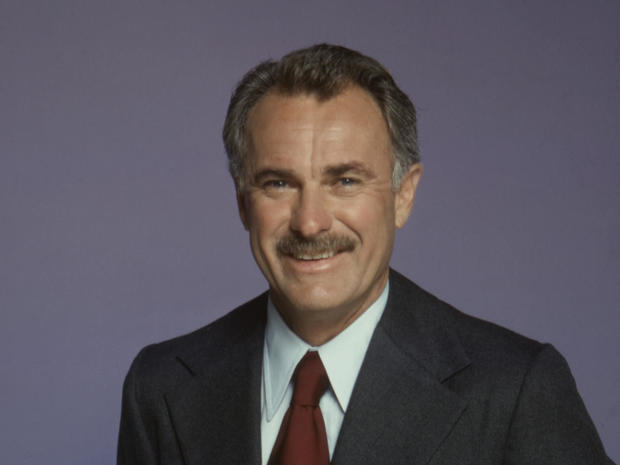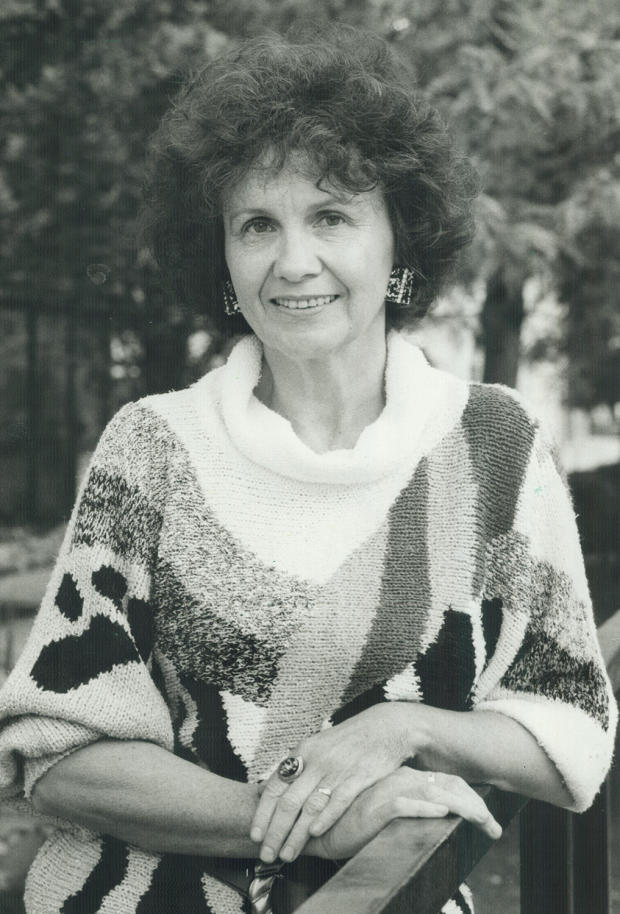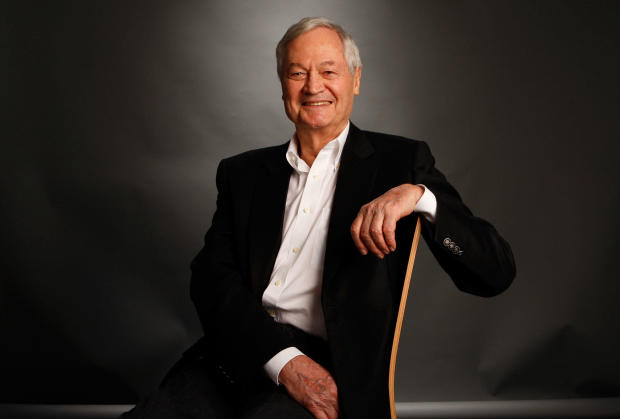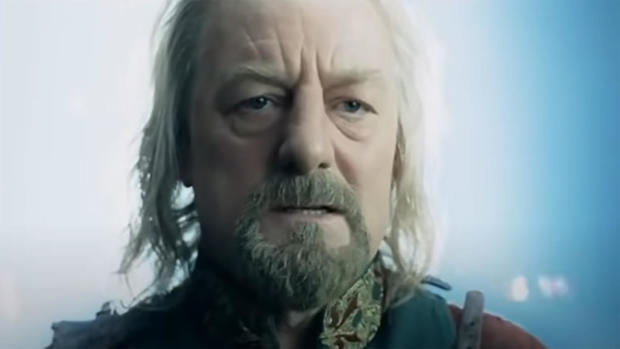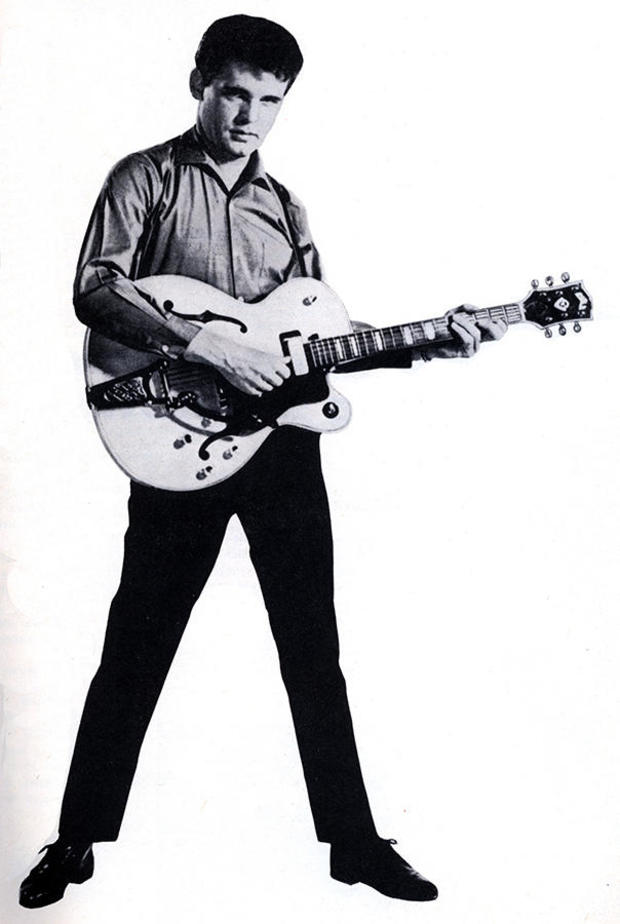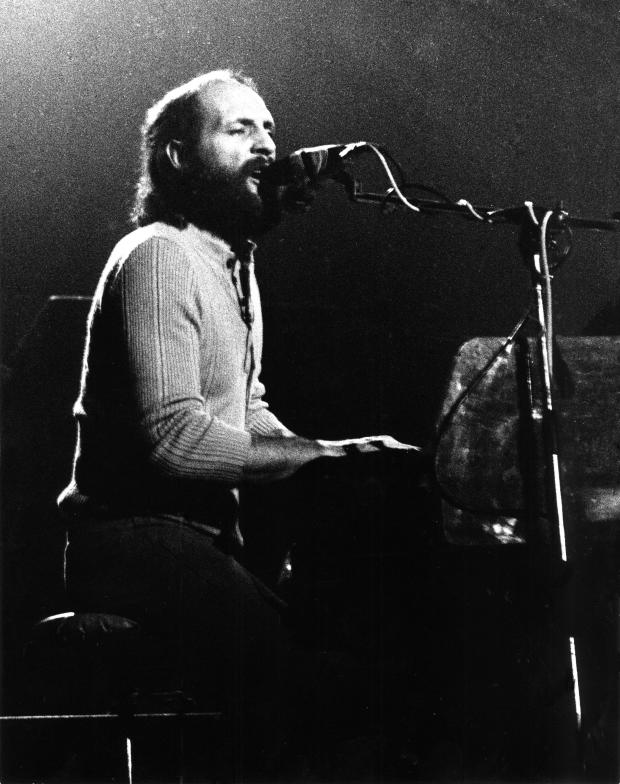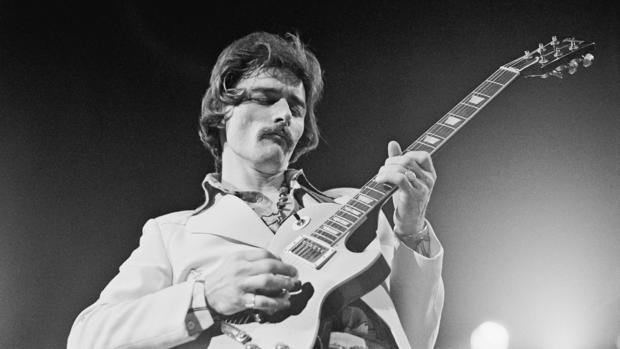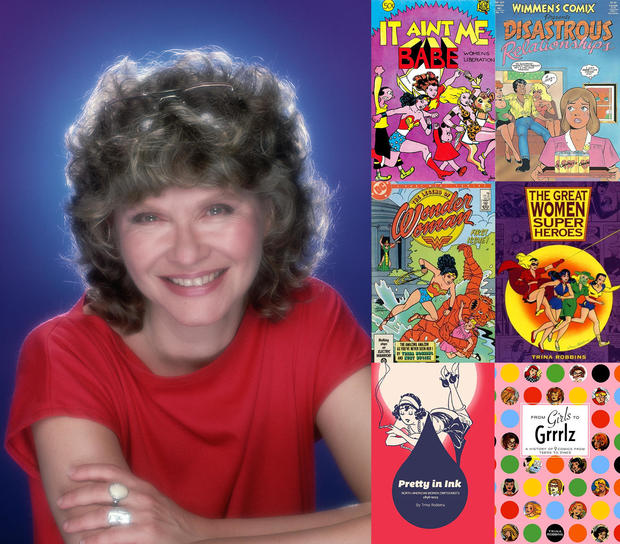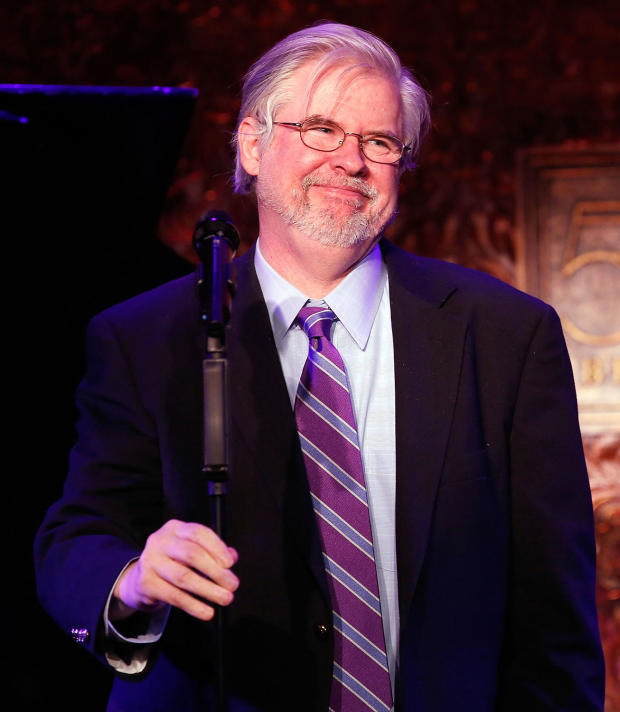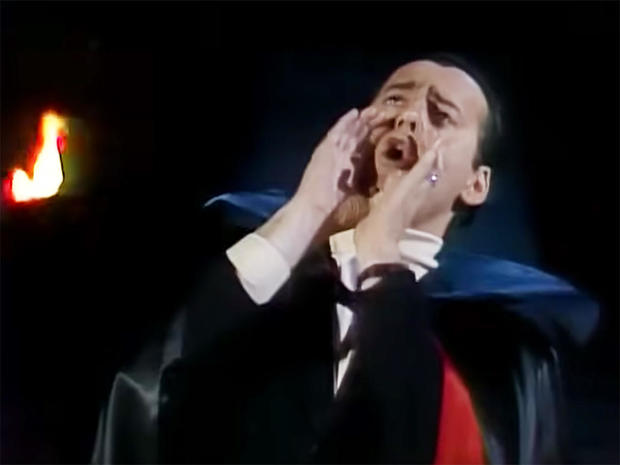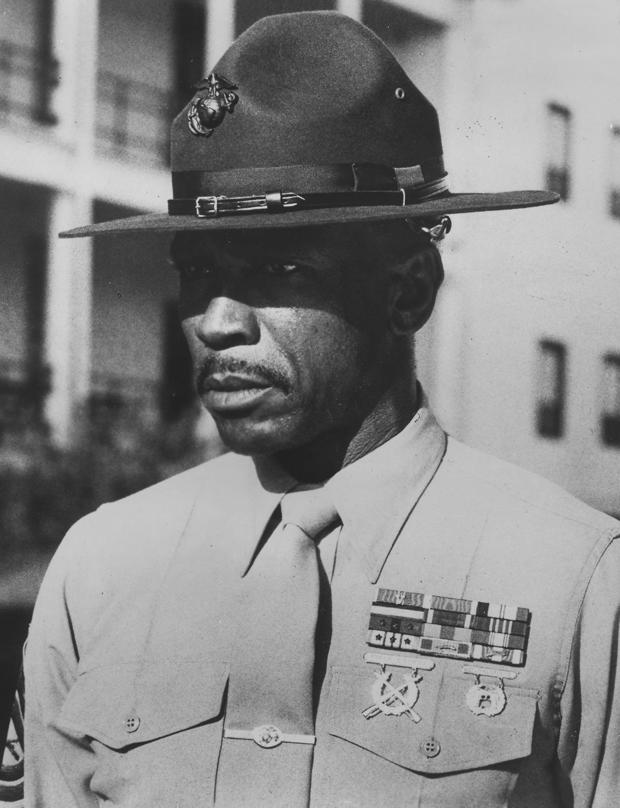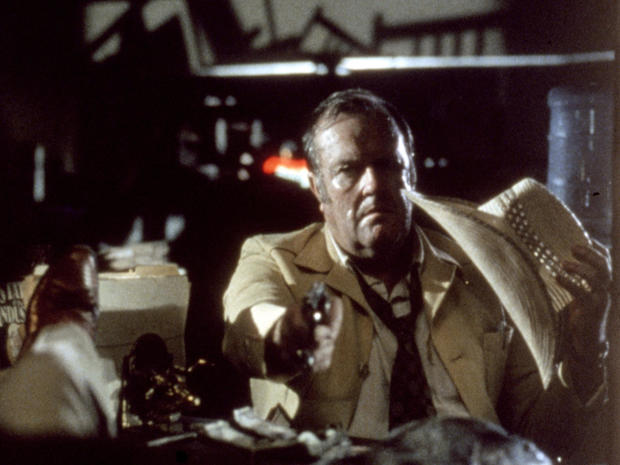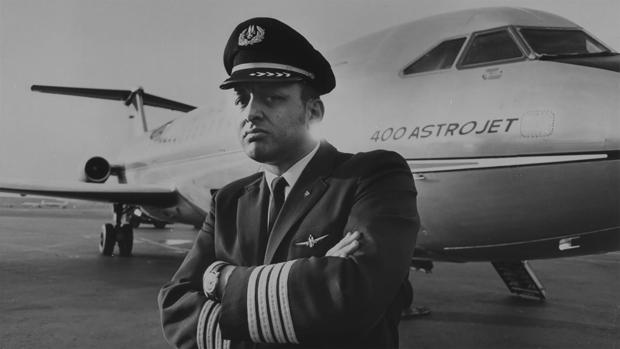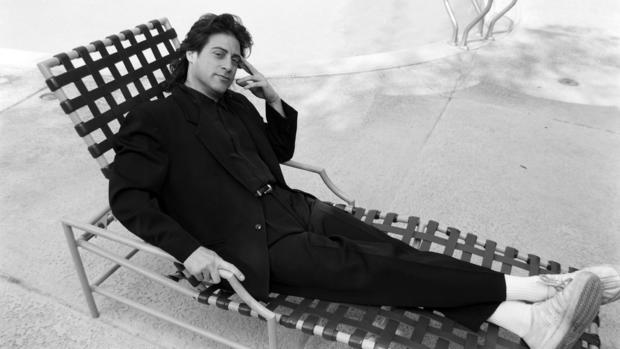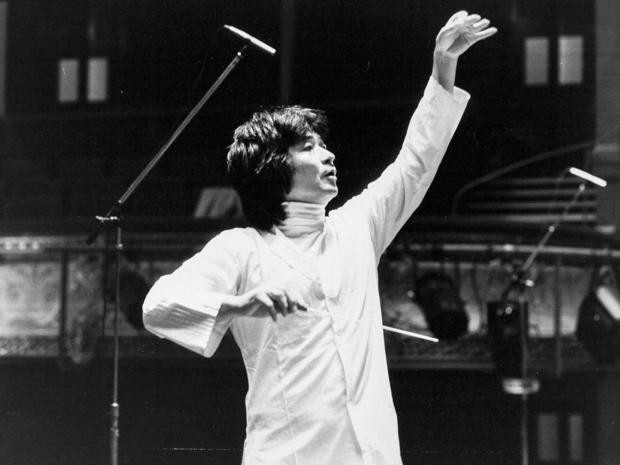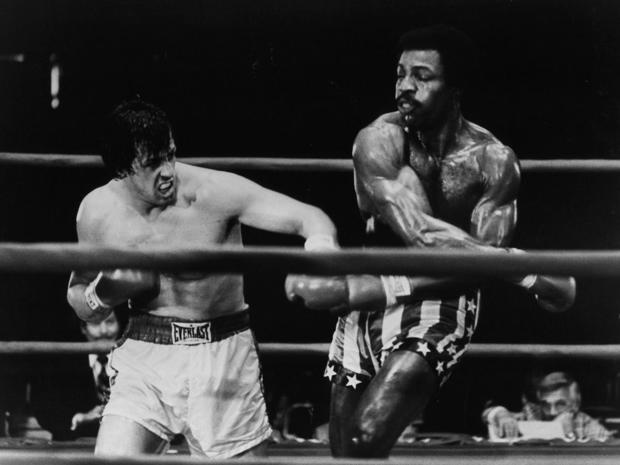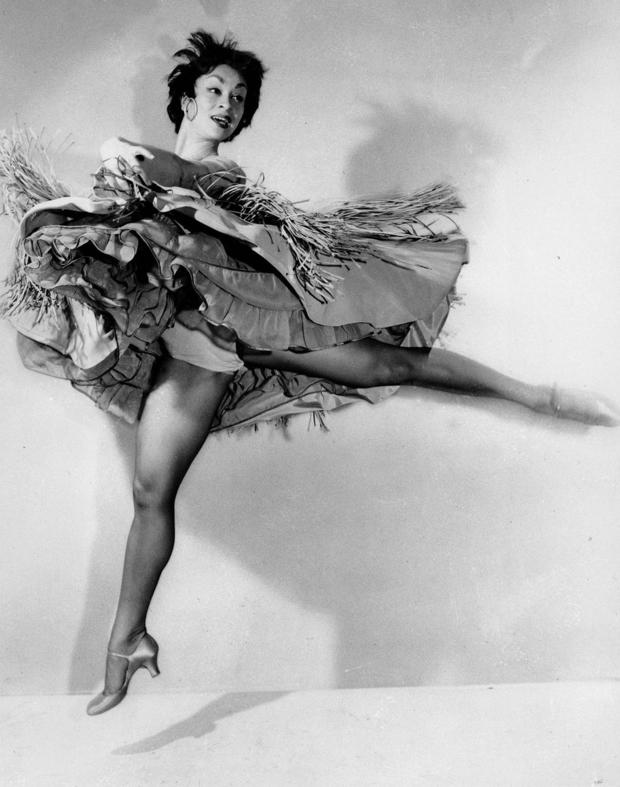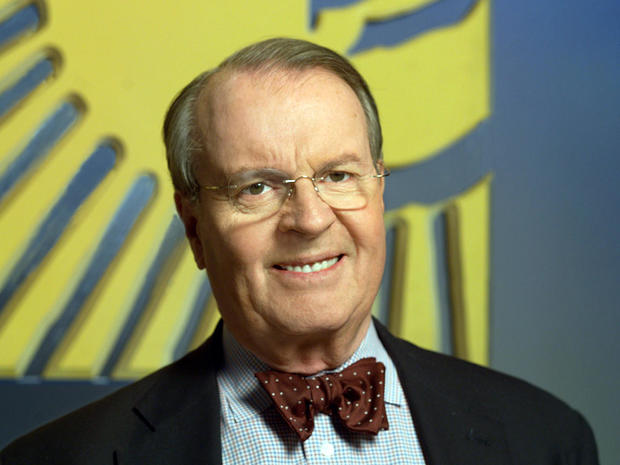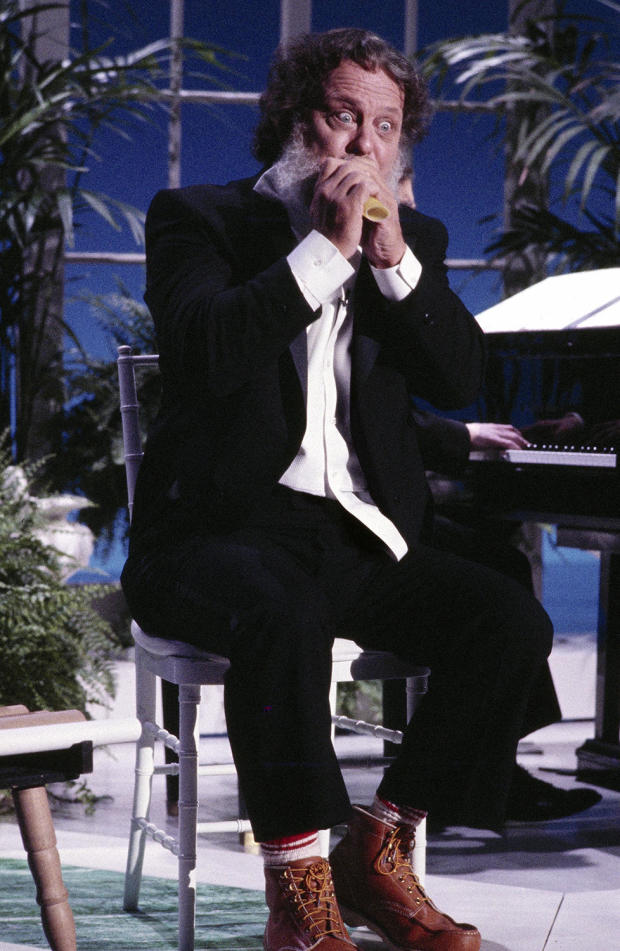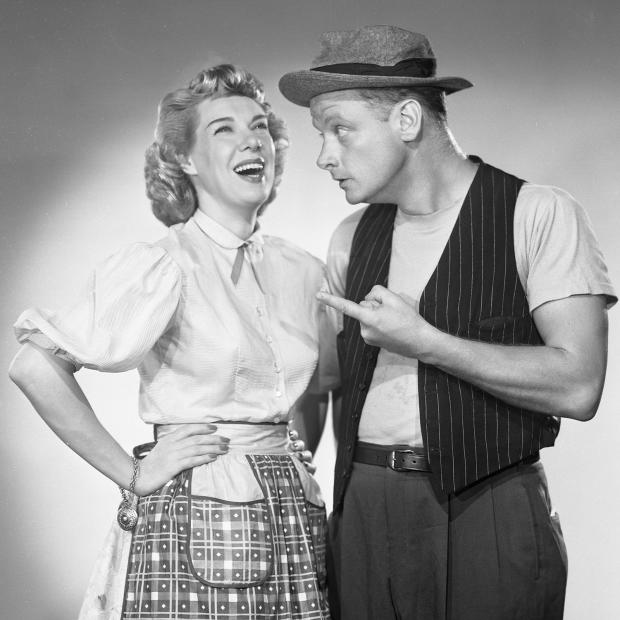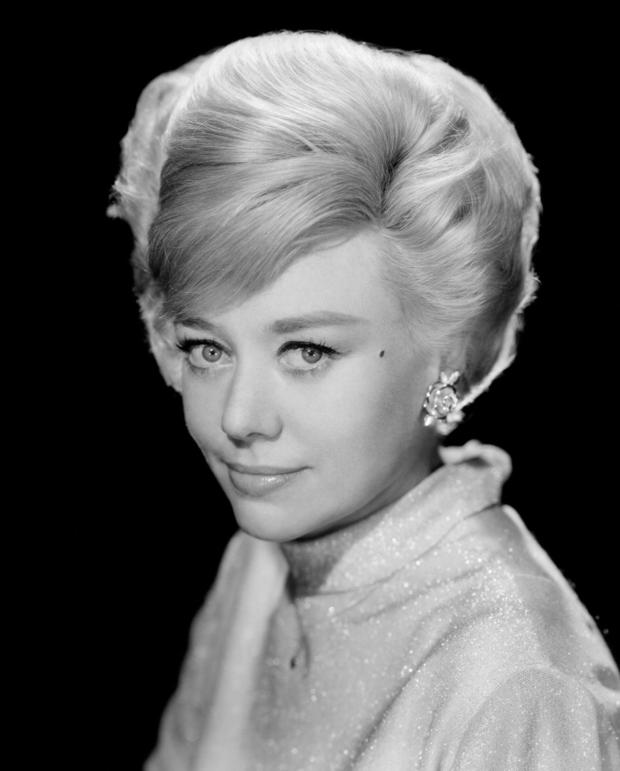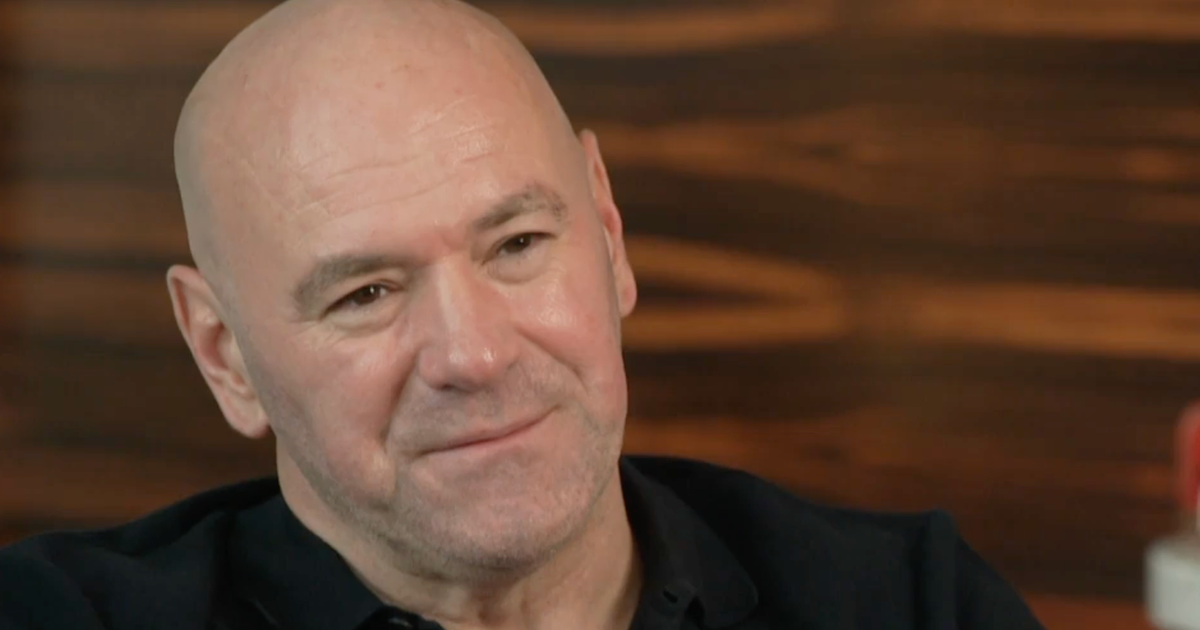Notable Deaths in 2024
A look back at the esteemed personalities who left us this year, who'd touched us with their innovation, creativity and humanity.
By CBSNews.com senior producer David Morgan. The Associated Press contributed to this gallery.
In 1976, for a nation worn down by Vietnam and Watergate, the Democratic governor of Georgia was a breath of fresh air – an unknown who won the White House with a promise of honesty. "I would not tell a lie, I would not mislead the American people," Jimmy Carter (October 1, 1924-December 29, 2024) said.
As America's 39th President, Carter's accomplishments included a landmark peace accord between Israel and Egypt; improved relations with China; the SALT II nuclear treaty with the Soviet Union; the return of the Panama Canal to Panama; an expansion of the national park system; deregulation of the trucking and airline industries; and the creation of FEMA and the Departments of Energy and Education. His National Childhood Immunization Initiative – launched at a time when measles was sweeping through Los Angeles – raised national immunization rates among children to nearly 90%. Within two decades, polio, rubella, measles and tetanus were nearly eliminated in the United States.
But spiraling inflation and interest rates were a drag on the economy. Carter struggled owing to a hostile Congress, and the 1979 Iranian Revolution, during which militants seized the U.S. Embassy in Tehran and took 52 Americans hostage, cast a heavy weight on the last 444 days of his administration. Despite efforts to free them, and a failed attempt at a military rescue, the hostages were not released until the day Carter left office.
Yet, after losing his reelection bid to Ronald Reagan, Carter entered a post-presidency that rewrote the template of a life beyond the White House. He joined volunteers with the non-profit Habitat for Humanity to build homes in America, Canada, Mexico, Hungary, Africa, Asia and Haiti. Through his foundation, the Carter Center, he helped wipe out tropical diseases like guinea worm, and traveled the world as an election monitor and an advocate for human rights. He was awarded the Nobel Peace Prize in 2002 for his tireless work promoting peace and social justice.
"I realize that, you know, not getting reelected is considered to be a failure," Carter told "Sunday Morning" in 2018. "But I have found, since leaving the White House, that I've had a very gratifying and, I think, productive life."
Carter also wrote nearly three dozen books, on politics, history, philosophy and faith. He even co-wrote a book with his wife, Rosalynn, "Everything to Gain," a collaboration that proved to be the greatest test of their 77-year marriage. He also taught Sunday School classes, and in his woodworking shop, he built furniture to be auctioned off to support the Carter Center.
He felt himself blessed, with "an almost perfect wife" and a growing family. When asked to describe himself, he said, "I was a champion of peace and human rights. I sought to carve out for myself a productive and I hope useful and certainly a gratifying life. I've been very lucky."
Linda Lavin
In the early months of the COVID pandemic, friends of Stephen Sondheim orchestrated an online party to celebrate the Broadway great's 90th birthday. The star-studded event almost went off without one Tony Award-winner, who ended up advocating for herself with an online posting: "This is very exciting!! I'm wondering if you'd like me to sing 'The Boy From…' from the Mad Show." She signed it Linda Lavin (October 15, 1937-December 29, 2024).
"In that moment, what I really wanted to say was: 'Why the hell am I not on that show?'" Lavin told "Sunday Morning" in 2020. "So, I tried to say it in a more gracious way. And they called!"
And she performed "The Boy From…" which she'd first sung in 1966. "I'm willing to advocate for myself, absolutely," Lavin said. "Sometimes people don't think of you. They don't know you're here. I'm still here! They don't know you're alive! You gotta let 'em know."
Lavin grew up in Portland, Maine, with a mother who'd sung with George Gershwin before having a family. After college, Lavin moved to New York City, got a job at Bloomingdale's handkerchief department ("The least-visited department," according to her), and found work in plays and musicals. She starred on Broadway in "It's a Bird...It's a Plane...It's Superman," "Something Different," "Last of the Red Hot Lovers" (earning a Tony nomination), and "Paul Sills' Story Theatre."
Beginning in 1976, she starred in the CBS sitcom "Alice," inspired by the film "Alice Doesn't Live Here Anymore," playing a single mother and aspiring singer who scraped by as a waitress at a Phoenix diner. The show ran for nine seasons, and earned Lavin an Emmy nomination and two Golden Globes. She said the role of Alice had a huge impact on her: "She politicized me."
Lavin returned to the New York stage and starred in Neil Simon's "Broadway Bound," "Gypsy," "Death Defying Acts," "The Sisters Rosensweig," "The Diary of Anne Frank," "The Tale of the Allergist's Wife," "The New Century," "Other Desert Cities," "Hollywood Arms," "Collected Stories," "The Lyons," "Too Much Sun," and "Our Mother's Brief Affair." She earned five more Tony nominations, and won for "Broadway Bound." Her film and TV credits included "Barney Miller," "The Muppets Take Manhattan," "Room for Two," "The Sopranos," "The O.C.," "Sean Saves the World," "The Good Wife," "Mom," "Madam Secretary," "Being the Ricardos," "Elsbeth" and "No Good Deed."
Once the pandemic set in, Lavin began doing weekly "at home" concerts from her Manhattan apartment, accompanied by pianist Billy Stritch. She also released an album, "Love Notes." "I've worked more in these 2½ months than I have in 2½ years," she said.
Recounting how she came into her third marriage, to artist and musician Steve Bakunas, Lavin said she initially had no interest in another romance: "I didn't think I was very good at relationships. And I found out that it takes work, and I'm willing to do the work, and so is he.
"Somebody said to me: 'Wear life like a loose garment, Linda. Lighten up!" she laughed.
Olivia Hussey
Actress Olivia Hussey (April 17, 1951-December 27, 2024) won international fame as a teenager in the 1968 film "Romeo and Juliet," starring opposite Leonard Whiting in Franco Zeffirelli's sumptuous production.
Born in Buenos Aires, Hussey was raised by her mother in London, and was appearing on stage in "The Prime of Miss Jean Brodie" opposite Vanessa Redgrave when Zeffirelli spotted her.
With teens playing Shakespeare's doomed lovers, the movie appealed to a rebellious youth culture, and became a staple of classroom literature lessons, despite a flash of Hussey's bare breasts during a nude love scene. The movie won two Oscars, and Hussey won a Golden Globe for best new actress.
But despite proclaiming her fascination with Zeffirelli (she worked with him again on the 1977 TV mini-series "Jesus of Nazareth," playing Mary), Hussey later spoke out about the director's treatment of the unseasoned young actress, who was paid less than $3,000 for a movie that grossed millions worldwide. Decades later, she and Whiting sued Paramount Pictures over a nude scene they said they felt coerced to perform when they were 16 and 17, respectively. The lawsuit – allowed when the statute of limitations for the California Child Victims Act was briefly expanded for claims of child sex abuse – was dismissed by a Los Angeles County judge, who found the film's depiction could not be considered child pornography.
Hussey's other roles included "Black Christmas," "Lost Horizon," "Death on the Nile," "Ivanhoe," "The Last Days of Pompeii," "Murder, She Wrote," "Psycho IV: The Beginning," "It," "Lonesome Dove," and "Mother Teresa." She also worked in animation ("Pinky and the Brain," "Superman: The Animated Series," "Batman Beyond") and several "Star Wars" video games.
And she remained loyal to the many fans of "Romeo and Juliet." "To hear them say, 'You've changed my life' — those words are, like, 'Thank you, God.' I don't know what I did, but I'm so happy I did," Hussey told New York Magazine in 2023.
Greg Gumbel
Longtime sportscaster Greg Gumbel (May 3, 1946-December 27, 2024) broke many barriers during his trailblazing 52-year career. The older brother of "Today" host Bryant Gumbel, he had two stints at CBS, leaving the network for NBC when CBS lost NFL football in 1994; he returned in 1998 when football did.
Gumbel hosted Olympics coverage for both CBS and NBC, as well as baseball and world figure skating championships. But it was with football and NBA and college basketball where he made his biggest impact.
From 1990-1993, and again in 2004-05, Gumbel hosted CBS' studio show, "The NFL Today." Gumbel also called NFL games as the network's lead play-by-play announcer from 1998 to 2003, including Super Bowls XXXV and XXXVIII (becoming the first Black play-by-play announcer in the U.S. for a major sports championship). He returned to the NFL booth in 2005, where he worked until after the 2022 season. For 26 years he hosted "College Basketball on CBS."
Gumbel also worked for ESPN and the Madison Square Garden network.
Outside of broadcasting, Gumbel was affiliated with the March of Dimes for three decades, and was a member of the Sports Council for St Jude's Children's Research Hospital for 16 years.
Rickey Henderson
Baseball Hall of Famer Rickey Henderson (December 25, 1958-December 20, 2024) was heralded as the "Man of Steal," breaking Lou Brock's career high when he stole his 939th base on May 1, 1991. Henderson finished his career with 1,406 steals – an all-time record that still stands.
He wasn't just fast on his feet; Henderson holds the MLB record for most career leadoff home runs (81). He also set records for unintentional walks (2,129) and runs scored (2,295).
Henderson was a star athlete at Oakland Tech High School, playing baseball, basketball and football. A sought-after football recruit, he said his mother thought baseball would be the safer career choice. "She didn't want her baby to get hurt," Henderson told the San Francisco Chronicle in 2019. "I was mad, but she was smart. Overall, with the career longevity and the success I had, she made the right decision. Some of the players in football now have short careers and they can barely move around when they're done."
Drafted by the A's, he made his major league debut in 1979 with two hits and a stolen base.
During a nomadic 25-year career (he was signed by the Oakland A's four times, twice with the New York Yankees, plus stints with the Toronto Blue Jays, San Diego Padres, New York Mets, Anaheim Angels, Boston Red Sox, Seattle Mariners, and Los Angeles Dodgers), Henderson earned the Most Valuable Player Award, was a two-time World Series champion and Gold Glove winner, and a 10-time All-Star selection.
One of the times when he played with Oakland, Henderson received a million-dollar bonus check. He didn't cash it; he had it framed. Eventually the team called. "I got the check in January, and when they made an issue about the check, it was December; they were trying to do their books and came up a little short and wondered where the check was," Henderson told Sports Illustrated in 2009. Asked if he would have kept the check framed if the team's accountants hadn't followed up, he replied, "Probably. It wasn't important that I had the money, it was just something that I had achieved."
Jim Abrahams
Writer-director Jim Abrahams (May 10, 1944-November 26, 2024) was one-third of the filmmaking trio (partnering with brothers Jerry and David Zucker) behind the riotous 1980 comedy "Airplane!" A spoof of disaster movies, the film took on all sorts of Hollywood cliches, played ridiculous situations completely straight, and hired actors known for straight roles (like Leslie Nielsen, Lloyd Bridges and Robert Stack) to spew ridiculous dialogue:
Dr. Rumack: "Can you fly this plane, and land it?"
Pilot Ted Striker: "Surely you can't be serious."
Dr. Rumack: "I am serious … and don't call me Shirley."
The three, known as ZAZ, met as kids growing up in Wisconsin. They founded the improv group Kentucky Fried Theater, which launched a sketch film, "Kentucky Fried Movie," in 1977.
Then, they took a middling 1957 melodrama about a plane flight in peril, "Zero Hour," and turned it on its head. "Airplane!" featured basically the same plot, even similar camera set-ups. They also twisted the original dialogue slightly off-kilter. ("It looks like I picked the wrong week to give up smoking" became "It looks like I picked the wrong week to quit sniffing glue.")
The film was a blockbuster, earning $200 million, and jumpstarted a whole genre of sketch comedy films.
ZAZ went on to make "Top Secret," "Ruthless People," and the TV series "Police Squad," starring Nielsen (which begat the "Naked Gun" movies). Abrahams also directed "Hot Shots!," "Hot Shots! Part Deux," and "Mafia!" He also co-wrote "Scary Movie 4."
Four decades after their breakout success, the three directors wrote a behind-the-scenes book about the enduring popularity of the endlessly quotable "Airplane!" "We've all been sort of blown away by how long the movie stuck around," Abrahams told "CBS Mornings" in 2023.
Barbara Taylor Bradford
Born in Leeds, England, bestselling author Barbara Taylor Bradford (May 10, 1933-November 24, 2024) sold her first magazine story when she was 10 years old. She went on to become a journalist, columnist and fashion editor. But she was 46 when she saw her first novel published: 1979's "A Woman of Substance," the story of Emma Harte, a poor but plucky and beautiful Yorkshire servant who founds a business empire.
"I gave Emma a lot of my characteristics," Bradford told "CBS Sunday Morning" in 2009, "which is drive, ambition, discipline, determination – and ambition, ambition, ambition!"
The book was an international smash, selling more than 30 million copies, and set the template for strong and independent Bradford heroines who would feature in 39 subsequent novels – all bestsellers, many turned into films or mini-series (including "Hold the Dream," "A Secret Affair," "Love in Another Town," and "Her Own Rules"). She also wrote the "Ravenscar" trilogy, the "Cavendon Chronicles," and three books in the "House of Falconer" series (including her final book, 2023's "The Wonder of It All").
Asked why her protagonists were all beautiful, Bradford replied, "You know what, readers really don't want to read about ugly people. They want to read about a good-looking man, a good-looking woman, making it together in many ways, not necessarily just sexually, but in life."
In 2007, Bradford was presented with the Order of the British Empire for her contributions to English literature. She recalled being presented the OBE by Queen Elizabeth II: "And then she said, 'You've written a lot of books, Mrs. Bradford.' I said, 'Yes, I have, your majesty, and many of them set in England and some of them about English history.' And she said, 'Oh, well, that certainly gives you lots of opportunities.'"
Theodore Olson
Theodore Olson (September 11, 1940-November 13, 2024) argued before the Supreme Court 65 times, both as a prominent conservative attorney and in his position as solicitor general under two Republican presidents. But Olson also bucked conservative orthodoxy, by successfully arguing on behalf of same-sex marriage, and in support of the children of undocumented immigrants.
Olson figured in some of the most consequential cases of the last quarter-century, including on the winning side of Bush v. Gore, which ended the Florida recount in 2000 and handed the presidency to George W. Bush.
A star in conservative legal circles, Olson, a California native, went to law school at Berkeley, a locus of liberal activism in the 1960s. "Those of us who were Republicans, which was a very small minority, I think we were treated quite well," he told "CBS Sunday Morning" in 2021. "Most of the people thought of us as curiosities."
Olson's first appearance before the High Court was as an assistant attorney general, in 1983: "I remember every word vividly. I remember the preparation. I remember breaking my glasses the day before the argument, thinking, 'How can this happen to me?'" he said.
He blamed nerves: "Anybody that argues in the Supreme Court is going to be nervous, no matter whether it's your first time or the 50th time. You're going to be nervous."
After serving as President Bush's solicitor general, Olson left government, and in 2010 argued on behalf of the political group Citizens United. In its ruling, the court struck down limits on political spending – and the group's name became shorthand for outrage about big money in politics.
But at least two of his subsequent cases surprised many on the right. First, he teamed up with David Boies (his opponent from Bush v. Gore) to overturn California's ban on same-sex marriage in 2013. "This is a matter of fundamental human rights and human decency," Olson said. "The equal protection of the laws is the protection of equal laws. It is not something that's partisan or anything like that; it's about American values."
And in 2019, in the so-called "Dreamers" case, Olson represented a group of undocumented immigrants brought to the U.S. as children and now threatened with deportation. "I went and spent time with these people, and each one told their story – where they came from, when they came to the United States, what it would mean for them to be wrenched away from their family or their job and sent to a country that they did not know," he said. "And I felt very keenly the stories of these individuals. And I thought, I have got to win this case."
"I think I've always been a conservative," he said, regarding his role in the same-sex marriage and Dreamers cases. "People tend to want to put people in boxes, and people overdo the conservative-or-liberal thing."
He recommended the lessons of college debate classes, in which arguments were generated by trying to understand both sides of an issue: "I think that's a very good thing for people to do. In today's world, people are so polarized, and there's not a lot of time spent trying to think the way the other side thinks, or try to express what the other side is expressing and believing. I think it would probably be good for all of us."
Judith Jamison
Dancer and choreographer Judith Jamison (May 10, 1943-November 9, 2024), a longtime member and leader of the Alvin Ailey American Dance Theater, was the first African American woman to direct a major modern dance company when Ailey hand-picked her to be his successor in 1989. She oversaw the troupe for more than two decades.
In 1964, choreographer Agnes de Mille had seen Jamison in a class and brought her to New York to participate in a production of American Ballet Theatre. Soon after, Ailey invited her to join his fledgling company. The dancers traveled to Europe and Africa but were often paid little, "and sometimes just a thank-you note," Jamison noted in a 2023 podcast.
But she recognized the Alvin Ailey American Dance Theater as being a rare outlet for Black talent. "Mr. Ailey was reacting to the fact that we couldn't see our own images up there on the stage," she told "CBS Evening News" in 2008. "He wanted to say something about our beauty, about our intelligence, about our craft and our experience."
Jamison played a key role in the company's rise, and in 1971 Ailey chose her to perform "Cry," an ode to Black women. Regal and passionate, dressed in a white leotard and long ruffled skirt, Jamison punched the air in the demanding, 16-minute solo. On opening night, she told the Hollywood Reporter, she got up off the floor to take her bow, "and I kept taking bows over and over until I don't know which number it was, but they were still screaming and yelling." It's now considered a classic, and it made Jamison an international star.
Over the next two decades, she appeared as a guest artist with companies around the world. She left Ailey's troupe in 1980 to star in the Broadway musical "Sophisticated Ladies," and formed her own company, The Jamison Project.
Then, in 1989, as Ailey's health was in decline, he asked Jamison to take over the company. He died later that year. In 2019 she described the loss as "devastating" to "CBS Sunday Morning." "But … it lifted us, because look at what he left us. What a road map!"
Jamison used his road map for 21 years, growing the company and increasing its international exposure. She introduced new works and choreography, but retained Ailey masterpieces, such as his 1960 classic "Revelations." She also founded the Joan Weill Center for Dance, a midtown Manhattan home for the company, in 2005. Six years later, she passed the torch to Robert Battle as artistic director.
Jamison received a National Medal of the Arts, and a Kennedy Center Honor.
Describing the longevity of the dance troupe, Jamison said, "Heart and soul, spirit, love, humor, dedication – all those corny words we like to use happen to work for us."
Quincy Jones
From a young age, Quincy Jones (March 14, 1933-November 3, 2024) was fascinated by music. "There's only 12 notes," he told "CBS Sunday Morning" in 2008. "I wanted to learn what everybody did with them. … That's all they've got. Until they find a 13th, everything comes from 12 notes."
He said he came from "the biggest Black ghetto in Chicago during the Depression," and as a child, "I wanted to be a gangster."
But after Jones' family moved to Seattle when he was 11, he started playing trumpet in the school band, and became friends with another young musician named Ray Charles. By 15, Jones was good enough to be hired by band leader Lionel Hampton. His first professional gig only lasted about five hours, when Hampton's wife intervened. Jones recalled her telling him, "'Come here, honey: Go back to school. We'll talk to you later.' And they did. They called me four years later, and I went with Lionel Hampton's band."
As a musician, arranger, composer and music producer, he would work and learn from the masters: Billie Holiday, Louis Armstrong, Ella Fitzgerald, Sarah Vaughan, Count Basie, Duke Ellington, Aretha Franklin, Peggy Lee and Frank Sinatra. In 1964 he produced his first #1 pop hit, Lesley Gore's "It's My Party." That song began a run of commercial success that would last for decades.
Jones produced Michael Jackson's first solo album, "Off the Wall," which hit #3 on the Billboard charts. Their next collaboration, "Thriller," became the biggest album of all time, with more than 100 million copies sold worldwide. It won eight Grammys, including album of the year, and spun seven Top 10 singles, including "Billie Jean," "Beat It," "Wanna Be Startin' Somethin'," and "Thriller."
In 1985, Jones, Jackson, Bob Dylan, Bruce Springsteen and just about every other music superstar joined in the studio for "We Are the World," a charity recording to raise money for famine relief in Africa. He also organized President Bill Clinton's first inaugural celebration in 1993.
There were also film scores (including "In the Heat of the Night," "In Cold Blood," "The Italian Job," and "The Anderson Tapes") and TV ("Ironside," "Sanford and Son," "Roots"). He produced the soundtrack of "The Wiz," starring Diana Ross, and was a producer of Steven Spielberg's film adaptation of "The Color Purple."
Jones admitted to making mistakes in his private life — he was married and divorced three times, most famously to actress Peggy Lipton of TV's "The Mod Squad," and had seven children altogether by five different women — but with music he could do no wrong. And his music had tremendous staying power; his 1962 tune "Soul Bossa Nova" (which he claimed to have written in 20 minutes) became the wildly popular theme song for the "Austin Powers" spy spoofs 35 years later.
Jones has received 80 Grammy nominations — only Beyoncé and Paul McCartney have more — and has won 28 of them. His musical talents and charitable works, including creating the Quincy Jones Listen Up! Foundation, have also afforded him two honorary Academy Awards, a Kennedy Center Honor, a National Medal of Arts, and induction into the Rock & Roll Hall of Fame.
"I don't waste any moment of life; whatever's there, I'm interested in it," Jones said. "That's what living's about. They say every day you wake up, though, and your elbows don't hit wood, you're in good shape."
Greg Hildebrandt
Artist Greg Hildebrandt (January 23, 1939-October 31, 2024), with his twin brother, Tim, created the look of fantasy films and novels through their calendars, cover illustrations, posters, and other artwork, that depicted the worlds of J.R.R. Tolkien and of George Lucas' "Star Wars," among others. They also designed characters for DC Comics and Marvel; Dungeons & Dragons; and album covers for Black Sabbath and the Trans-Siberian Orchestra.
Greg and Tim started writing and drawing their own comic books when they were 6. After taking classes at the Meinzinger Art School in Detroit (their hometown), the two used the media of paint, animation and live-action at a Michigan industrial film company. They then moved to New York City, and made documentary films chronicling world hunger for a religious organization.
For Ballantine Books' "Lord of the Rings" calendars (first published in the late 1970s), the Brothers Hildebrandt drew mockups of characters, composed layouts, and then photographed models in costume, before doing final sketching. The two would then work on the same painting, side by side.
The brothers were tasked with designing a poster for the U.K. release of "Star Wars" — studio executives thought the original poster, by Tom Jung, was too dark. But with no access to film stills or publicity photos, Greg used his first wife as the model for Princess Leia. Whipped up in 36 hours, the poster art was approved by Lucas, who then asked for the artists' signature to be larger. They later did the poster art for Ray Harryhausen's 1981 movie, "Clash of the Titans."
The two brothers then each worked solo. Greg illustrated books of fairy tales, fantasy and horror, produced art for the magazine Heavy Metal, and created paintings in the style of 1940s and '50s pin-ups. Reuniting, the brothers created trading cards of heroes and villains of Marvel Comics, continuing until Tim's death in 2006 at the age of 67.
Teri Garr
Actress Teri Garr (December 11, 1944-October 29, 2024) was in the chorus in a dozen movies, including nine starring Elvis Presley, and was a featured dancer on the show "Shindig!" and the rock concert performance "The T.A.M.I. Show," before she started getting "real" roles in TV and films. She admitted to "Sunday Morning" in 2005 that, in order to get a foot in the door, she fibbed about her credits: "I put in the résumé a few things that looked better, like 'Desire Under the Elms' on Broadway," she said. "And then on the side of it was an asterisk. And the bottom of the page of the asterisk, I put 'L.I.E.' And no one ever noticed that — 'What does that mean, L.I.E.?' It's a lie! That's not true! I didn't want them to, you know, think I was dishonest in any way!"
She appeared in "That Girl," "The Sonny & Cher Comedy Hour," the Monkees movie "Head," a time-traveling "Star Trek" episode (the pilot of an unsold series about an alien on 1960s Earth), and Francis Ford Coppola's "The Conversation," before appearing in the comedy that made her a star: Mel Brooks' "Young Frankenstein," in which she displayed her ample charms and quirky humor in the role of lab assistant Inga.
Garr went on to a series of dramatic and comic performances, including "Close Encounters of the Third Kind," "Oh, God!," "The Black Stallion," "One From the Heart," "The Escape Artist," "Mr. Mom," and "Tootsie," earning an Oscar nomination playing the girlfriend whom Dustin Hoffman dumps. Her off-beat sense of humor also made her a frequent guest on David Letterman's show in the 1980s and '90s. Letterman later credited her appearances with helping make his show a hit.
In 1999 she was diagnosed with MS, a disease that cost her much of the use of her right arm and leg. Though she didn't reveal the diagnosis for three years, rumors of it spread, and acting work grew scarce. But she managed to keep her career going. "It took the wind out of that sail a lot, but I kept going and kept pursuing people and trying to get work," Garr said. She appeared in "Law & Order: Special Victims Unit," "Greetings From Tucson," "Life With Bonnie," and had a recurring role as Lisa Kudrow's mother on "Friends."
Another role she played was as a spokesperson for the National Multiple Sclerosis Society, mixing humor with her stories about the illness. At an appearance in 2005 Garr told her audience, "MS is a strange disease and it effects everyone a different way. Actually my doctor asked me the other day about sexual functions, and I said, 'Well, I don't know. I haven't been invited to any lately.'"
Phil Lesh
A founding member of The Grateful Dead, Phil Lesh (March 15, 1940-October 25, 2024) was also a classically trained violinist and trumpeter. But it was as a six-string electric bass guitar player that he helped create one of the world's leading, most enduring and beloved rock bands.
After beginning violin lessons in third grade, Lesh switched to trumpet, and earned a chair in the Oakland Symphony Orchestra while he was a teenager. But in 1965, while he was working as a radio station sound engineer, Lesh was asked by Jerry Garcia to join his rock band, The Warlocks.
Garcia taught Lesh how to tune a bass an octave lower than the four bottom strings of Garcia's guitar, and the two would engage in spontaneous, experimental performances that fed off one another. "It's always fluid, we just pretty much figure it out on the fly," Lesh said of their playing in a 2009 Associated Press interview. "You can't set those things in stone in the rehearsal room."
For 30 years the group, renamed The Grateful Dead, drew fiercely devoted "Deadheads" of all ages to their live performances.
Lesh's musical influences included classical composers (Bach, Brahms, Charles Ives and Edgard Varèse), and jazz icons (John Coltrane and Miles Davis). In a 2022 interview with Forbes, Lesh recounted how attending a concert by Coltrane's quintet in the early '60s changed him: "It totally transformed my life and my view of music, because it just kept evolving. It just kept changing and evolving and yet you always were aware wherever you were coming from. It was the finest thing I'd ever heard. And I grew up in the classic music scene, so I hadn't known how deeply improvised music could go and how powerful it could be, and that really opened my eyes, my ears, my heart."
Lesh extolled collaboration as the power behind the Grateful Dead's music: "When you see us up there playing music, collaborating and making music together, making music that's never been made before, there's always some new element in it. The message that I see that providing to everyone is that you could do this also. In other words, we're demonstrating the power of collaboration in one field of human endeavor. And no matter what your field of endeavor is, you can achieve these same kind of results by collaborating with your peers."
After Garcia's death in 1995, the Grateful Dead disbanded, but frequently reunited. Lesh played in the Dead tour in 2009, and participated in "Fare Thee Well" concerts in 2015.
He also headlined a group called Phil Lesh and Friends, for which he was joined by a rotating cast of musicians from Phish, the Black Crowes, the String Cheese Incident, and the Allman Brothers Band, as well as Carlos Santana and his fellow Dead bandmates Mickey Hart, Bill Kreutzmann, Bob Weir and Vince Welnick.
Ron Ely
Actor Ron Ely (June 21, 1938-September 29, 2024, death announced October 23) starred as Edgar Rice Burroughs' Tarzan in the 1960s TV series.
Ely had a string of film and TV credits (including a small part in the musical "South Pacific," and a starring role in the CBS adventure series "The Aquanauts") when he was hired at the last minute for "Tarzan." The original star, former NFL linebacker Mike Henry, who'd played Tarzan in a few films, was injured by a chimp during filming of the show's pilot, and quit. "He didn't like chimpanzees and from the moment he got on set, things went south in a hurry," Ely told London's Daily Express in 2013.
"I met with them on a Monday and when they offered me the role I thought: 'No way do I want to step into that bear trap. You do Tarzan and you are stamped for life.' Was I ever right! But my agent convinced me it was a quality show and was going to work. So, on the Friday I was on a plane to Brazil to shoot the first episode."
Ely said he did his own stunts, and worked directly with the tigers, chimpanzees and other animals. The show ran on NBC for two seasons. For Ely, that was enough. "I was mentally and physically worn out," he said. "My body was a wreck. I had so many muscle pulls and tears and busted shoulders, wrists and bones. Every part of me had been hurt."
Ely later starred in the action film "Doc Savage: The Man of Bronze," and appeared in such series as "Matt Houston," "The Love Boat," "Sea Hunt," and "L.A. Law." Ely also wrote mystery novels featuring detective Jake Sands, "Night Shadows" and "East Beach."
In 1980 and '81, he hosted the Miss America pageant (where he met his second wife, Valerie Lundeen, who was Miss Florida 1981). He later retired from acting to concentrate on helping raise the couple's three children.
In 2019, Valerie was killed by their 30-year-old son, Cameron, who was fatally shot by police. Ely unsuccessfully sued the Santa Barbara Sheriff's Office, challenging the district attorney's assertion that officers "acted reasonably" in their use of deadly force.
Fernando Valenzuela
Pitcher Fernando Valenzuela (November 1, 1960-October 22, 2024) won the National League's Cy Young and Rookie of the Year Awards in 1981, when he helped the Los Angeles Dodgers win the World Series — the first player to win Cy Young and rookie honors in the same season.
One of the game's most dominating players of his era, Valenzuela was called up at the end of 1980 as a reliever. In his 1981 season (which was shortened by a players' strike), he was 13-7 and had a 2.48 ERA. He won Game 3 of the 1981 World Series, in which the Dodgers topped the New York Yankees.
Valenzuela's rise from humble beginnings as the youngest of 12 children in Mexico, and his feats on the mound — he was one of the few pitchers who threw a screwball regularly — made him hugely popular, particularly in Los Angeles' Latino community, sparking what became known as "Fernandomania." The number of Hispanic fans attending Dodgers games in L.A. was estimated to have soared from 8% to 40% once Valenzuela joined the team. "That's great, isn't it?" Valenzuela told ESPN in 2016. "I think our Mexican and Hispanic community has always liked baseball. And that increase is a positive thing for the sport. And if what I did in my career could contribute in any way, that's something that makes me feel very happy."
A six-time All-Star, his record in Dodger blue was 141-116, with an ERA of 3.31 and 1,759 strikeouts. He also hit 10 career home runs. In 1990, his last year with L.A., he pitched a no-hitter against the St. Louis Cardinals, striking out seven and walking three.
Valenzuela later pitched for California, Baltimore, Philadelphia, San Diego and St. Louis. He stands as the all-time major league leader in wins (173) and strikeouts (2,074) by a Mexican-born player. After retiring from professional baseball (he played in Mexico's Pacific League until he was 44), he became a sports broadcaster for Spanish-language radio and TV.
He became a U.S. citizen in 2015, at a naturalization ceremony just three-and-a-half miles from Dodger Stadium.
Lynda Obst
Producer Lynda Obst (April 14, 1950-October 22, 2024) was behind such films "Sleepless in Seattle," "Contact," "The Fisher King" and "Interstellar," and was a longtime champion of women in the industry.
A former book and magazine editor and classical music radio DJ, Obst took a job at Casablanca Records and FilmWorks in the mid-'80s. She developed "Flashdance" for Paramount Pictures, and fought to keep her name in the credits once other producers piled on.
Studio exec Dawn Steel suggested Obst team up with Debra Hill (the producer for John Carpenter). Their partnership would result in Chris Columbus' directorial debut, "Adventures in Babysitting," "Heartbreak Hotel," and Terry Gilliam's "The Fisher King," starring Jeff Bridges and Robin Williams.
Obst then worked solo, and produced or executive produced such films as "Bad Girls," Nora Ephron's debut "This Is My Life," "Sleepless in Seattle" with Tom Hanks and Meg Ryan, "One Fine Day" with Michelle Pfeiffer and George Clooney, "Contact" with Jodie Foster, "Hope Floats" with Sandra Bullock, "The Siege" with Denzel Washington and Bruce Willis, "Someone Like You," "How to Lose a Guy in 10 Days" with Kate Hudson and Matthew McConaughey, Christopher Nolan's "Interstellar," and the TV series "The '60s," "Helix," "Hot in Cleveland," and "The Hot Zone."
Obst wrote the 1996 bestseller "Hello, He Lied & Other Tales From the Hollywood Trenches," and 2013's "Sleepless in Hollywood: Tales From the New Abnormal in the Movie Business." She also co-wrote Oscar columns with critic David Edelstein.
In recent decades, to cater to the increasingly important international market, Hollywood turned its focus more towards loud, special effects-laden action movies. Obst, whose films focused on relationships, lamented that romantic movies (often referred to dismissively as "women's pictures") were believed by some in Hollywood to be box office poison. "Weepies are not about depression," she told "Sunday Morning" in 2011. "They're about resolution and transcendence."
Mitzi Gaynor
Singer, dancer and actress Mitzi Gaynor (September 4, 1931-October 17, 2024) wowed audiences in movie musicals like Rodgers & Hammerstein's "South Pacific," "There's No Business Like Show Business," "Anything Goes," and "Les Girls." She followed her Hollywood success by becoming a fixture on TV variety shows and a headliner in Las Vegas.
Born Francesca Mitzi Marlene de Czanyi von Gerber, she began classical ballet training as a child. In 2019, Gaynor told "Sunday Morning" that when she 11, her dance instructor said, "Mitzi's gonna go to Hollywood and become a star." She did move with her mother to Los Angeles, and while in high school, "Frances Gerber" (as she was known) performed on stage alongside the prima ballerina of the Ballet Russe, Mia Slavenska, in a production of Tchaikovsky's "Song Without Words."
She made her Broadway debut at 15, performed in light opera productions in Los Angeles, San Francisco, Chicago and Philadelphia, and was signed to a contract at 20th Century Fox. She recalled that a producer there thought her name sounded like a delicatessen, "so he said, 'How about Gaynor, [like] Janet Gaynor?' My father loved it."
She appeared in lighthearted fare, such as "My Blue Heaven," "Down Among the Sweltering Palms," "We're Not Married," "Bloodhounds of Broadway," and "The I Don't Care Girl," before earning some of her best reviews for Irving Berlin's "There's No Business Like Show Business," showcasing her singing and comedic talents opposite Ethel Merman, Dan Dailey, Donald O'Connor, Johnny Ray and Marilyn Monroe.
She then starred in the Bing Crosby musical "Anything Goes," the David Niven comedy "The Birds & The Bees," and the Frank Sinatra drama "The Joker Is Wild," before appearing in "Les Girls," opposite Gene Kelly.
Gaynor beat out a plethora of Hollywood stars (including Doris Day, Elizabeth Taylor and Susan Hayward) who vied for the role of Nellie Forbush, a Navy nurse who sings of how she wants to "wash that man right out of my hair," in the film version of the Broadway smash "South Pacific." Her performance in the blockbuster movie made her an international star, and earned her a Golden Globe nomination.
But as musicals fell out of favor (her last film was the 1963 comedy "For Love or Money" with Kirk Douglas), she turned to concert performances. In 1961 she made her nightclub debut at the Flamingo Hotel in Las Vegas, smashing box office records with her four-week residency. She became the city's highest-paid female entertainer, and in 1970 Gaynor became the first female performer to be awarded "Star Entertainer of the Year." She was also the first star client for an up-and-coming costume designer named Bob Mackie.
Gaynor also appeared in TV variety shows hosted by Frank Sinatra, Ed Sullivan, Donald O'Connor, Jack Benny, Danny Thomas, Perry Como. Her own series of TV specials were perennial hits.
In 2019, then 88, Gaynor was still performing live, but due to a leg injury, sang while seated on stage, accompanied by singer and pianist Michael Feinstein.
"It's been quite some time since I've been able to really jig, but I want to go jigging again," she said.
Liam Payne
In 2010, at age 16, Liam Payne (August 29, 1993-October 16, 2024) made his second attempt at competing in the British singing series "The X Factor." He failed as a solo act. But then, Payne and four other contestants – Niall Horan, Zayn Malik, Harry Styles and Louis Tomlinson – were joined together to compete in the group category. They were ultimately signed by Simon Cowell's record label, and One Direction became one of the world's most successful boy bands.
They released five albums, each of which went multi-platinum and hit #1 on the U.S. or U.K. Billboard charts. Their hits (many of which Payne co-wrote) included "What Makes You Beautiful," "Live While You're Young," "Little Things," "Best Song Ever," "Story of My Life," "Drag Me Down," and "Perfect."
One Direction went on an "indefinite hiatus" in 2016. In a 2019 interview with The Guardian, Payne described the pressures of fame that built during his time with the group, as well as his struggle with alcohol: "As One Direction got bigger and bigger, I was like: 'I don't really know how to deal with this.' Once you start, you can't really press the stop button."
Payne pursued a solo career, while also working on his sobriety, modeling, and co-parenting his young son, Bear. He released the album "LP1" in 2019, which included the single "Midnight." The album reached #17 on the U.K. charts. Payne also recorded with Quavo ("Strip That Down"), Zedd ("Get Low"), J. Balvin ("Familiar"), and Rita Ora ("For You").
His last single, "Teardrops," came out in March.
Philip Zimbardo
In 1971, psychologist Philip Zimbardo (March 23, 1933-October 14, 2024) and a team of graduate students recruited college-aged males to spend two weeks in a mock prison in the basement of a building at Stanford University. The experiment was intended to study the psychological experiences of imprisonment, as well as the often-volatile dynamic between prisoners and guards, to promote reforms in the training of real-life prison guards.
Twenty-four students who responded to a classified ad were offered $15 per day for the two-week study. A coin-flip decided who would play a "prisoner" or a "guard." Students were then "arrested" for armed robbery, processed at the Palo Alto police station, and then sent to detention on the Stanford campus. The cells were monitored with video cameras and microphones. "Guards" were untrained but free to do what they believed necessary to maintain law and order; some devolved into sadism, employing physical abuse and psychological torture. Those playing "prisoners" became anxious and emotionally depressed, driven to fits of anger or crying.
The prison study, though scheduled to last two weeks, was stopped after six days, as students' behavior and mental health grew increasingly worrisome and anxious parents called to have their kids released from "prison." "The outcome of our study was shocking and unexpected," Zimbardo later co-wrote.
The "Stanford Prison Experiment" is now used in psychology classes to study the psychology of evil, and the ethics of psychological research on human subjects. But did the experiment affect the kinds of prison reforms that Zimbardo had hoped for? No, he wrote CBS News in 2011, on the 40th anniversary of the experiment: "Research and knowledge rarely change systems."
Zimbardo's 2007 bestseller, "The Lucifer Effect," later examined the similarities between the Stanford experiment and the abusive tactics of Allied servicemembers upon prisoners at Abu Ghraib in Iraq, which, he wrote, "illustrates the power of situational forces over individual behavior."
Zimbardo pointed out that the roles highlighted in his experiment — of "prisoner" and "guard" — are roles that everyone may enact in their lives, whether it's a boss relating to a subordinate or a parent to their child. As Zimbardo put it, "Human behavior is under situational control more than we imagine or want to believe and admit."
Ethel Kennedy
Ethel Kennedy (April 11, 1928-October 10, 2024) was at the side of her husband, Robert F. Kennedy, when he was assassinated in Los Angeles in 1968, on the night he won California's Democratic presidential primary. She endured that tragedy and many others (including the deaths of two sons) while raising their children, and for decades after remained dedicated to social causes and the family's legacy.
"Petite and peppy," as the Washington Post described her, Ethel tirelessly campaigned for Robert and other members of the Kennedy clan, and supported her husband throughout his successful 1964 campaign for the U.S. Senate in New York and his subsequent presidential bid. Athletic and politically savvy — she was described as being "more Kennedy than the Kennedys" — Ethel was pregnant with their 11th child when Robert was gunned down by Sirhan Sirhan.
One of the last remaining members of her family's generation that included President John F. Kennedy, she was mother to Kathleen, Joseph II, Robert Jr., David, Courtney, Michael, Kerry, Christopher, Max, Douglas and Rory.
She founded the Robert F. Kennedy Center for Justice and Human Rights (now called Robert F. Kennedy Human Rights) soon after her husband's murder, and advocated for a variety of causes. She was active in the Coalition of Gun Control, the Special Olympics, and the Earth Conservation Corps. She participated in a 2016 demonstration supporting higher pay for farmworkers in Florida, and joined a 2018 hunger strike against the Trump administration's immigration policies.
She received the Presidential Medal of Freedom in 2014.
Ethel rarely spoke about her husband's assassination. When her filmmaker daughter Rory brought it up in the 2012 HBO documentary, "Ethel," she struggled. "When we lost Daddy ..." she began, then teared up, and asked that her youngest daughter "talk about something else."
Lilly Ledbetter
Lilly Ledbetter (April 14, 1938-October 12, 2024) was an Alabama factory manager whose lawsuit against her employer made her an icon of the equal pay movement and led to landmark wage discrimination legislation.
Ledbetter was a manager at the Goodyear Tire & Rubber Co. plant in Gadsden, Alabama, and had worked there 19 years when she received an anonymous note saying she was being paid significantly less than three male colleagues. She filed a lawsuit in 1999, and initially won $3.8 million in back-pay and damages in federal court. But she never received the money, after her case was appealed to the Supreme Court, which ruled in 2007 that Ledbetter had filed her complaint too late. The court ruled that workers must file lawsuits within six months of first receiving a discriminatory paycheck — which in Ledbetter's case was nearly two decades before she even learned about the disparity through the anonymous letter.
Two years later, President Barack Obama signed into law the Lilly Ledbetter Fair Pay Act, which gave workers the right to sue within 180 days of receiving any discriminatory paycheck, not just the first check.
Ledbetter continued campaigning for equal pay for decades after winning the law named after her.
In 2018, at the height of the #MeToo movement, Ledbetter wrote an opinion piece in The New York Times detailing the harassment she faced as a manager at the Goodyear factory and drawing a link between workplace sexual harassment and pay discrimination.
"Sexual harassment isn't about sex, just like pay discrimination isn't just about pay," she wrote. "Both are about power. They are clear evidence that too many workplaces value women less. That was true for me in the 1980s and 1990s when I worked at Goodyear, and it is still true today."
In January, President Joe Biden marked the 15th anniversary of the law named after Ledbetter with new measures to help close the gender wage gap, including a new rule barring the federal government from considering a person's current or past pay when determining their salary. A film about her life, "Lilly," starring Patricia Clarkson, recently premiered at the Hamptons International Film Festival.
Lily Ebert
Lily Ebert (December 29, 1923-October 9, 2024) may have been the oldest influencer on TikTok, with more than two million followers and more than 46 million likes, largely for posts about how she survived the Holocaust.
When Ebert arrived at Auschwitz at the age of 20, guards took away her mother, a brother and a sister, sending them directly to the gas chambers. Ebert was assigned to work, until the camp was liberated in 1945. She would later reunite with surviving family members and settle in London.
During the 2020 COVID pandemic lockdowns, Ebert and her 18-year-old great-grandson, Dov Forman, began sharing her story with a TikTok audience. It became their mission. "I said to my great-grandmother, 'If they can go viral for dancing, why can't we go viral for sharing these really important messages?'" Forman told the CBS Evening News in 2022.
Ebert recounted her imprisonment, showed the number tattooed on her arm ("We were no longer humans. We were only a number, and we were treated only like numbers"), and told of daily life in the camp until freed by Allied forces. It was a vital education for a young audience often faced with Holocaust denialism.
One storyline from Ebert's TikTok posts recounted how, after Auschwitz was liberated, she got to talking with an American GI, who wrote a message on a German banknote. "He wrote me, 'Good life, good luck for your future,'" Ebert said. In less than half a day, the story received 2 million views on social media, and the family of that U.S. soldier was identified and located. Ebert later met with the children of Private Hayman Shulman, who'd died in 2013.
Ebert and Forman also wrote the bestseller "Lily's Promise: How I Survived Auschwitz and Found the Strength to Live," featuring a foreword by Prince Charles.
In reaching out to the TikTok generation, Ebert kept her promise alive. "I thought single-handedly, I will tell my story and I will change the world," she said.
Cissy Houston
Acclaimed gospel and soul singer Cissy Houston (September 30, 1933-October 7, 2024) was a two-time Grammy-winning artist and the mother of music superstar Whitney Houston.
Born Emily Drinkard in Newark, New Jersey, Cissy began performing in church as a child, and with three siblings founded a gospel group that released the 1959 RCA album, "A Joyful Noise." Following her second marriage, to John Houston, Cissy broke into R&B as part of The Sweet Inspirations. The group recorded four albums, and also sang backup for such artists as Dionne Warwick, Otis Redding, Wilson Pickett, Lou Rawls, The Drifters, Van Morrison, Jimi Hendrix, Aretha Franklin, Dusty Springfield, and Elvis Presley (who nicknamed Cissy "Squirrelly").
"At least in the recording studio we were living together as God intended us to," she wrote in her 1998 memoir, "How Sweet the Sound." "Some days, we spent 12 or 15 hours together there. The skin-deep barriers of race seemed to fall away as we toiled side-by-side creating our little pop masterpieces."
By 1969, Cissy began pursuing a career as a solo artist, recording 10 albums, starting with 1970's "Presenting Cissy Houston." She won Grammys for best traditional soul gospel album for "Face to Face" and "He Leadeth Me." She also recorded vocals alongside Paul Simon, Roberta Flack, Burt Bacharach, Bette Midler, John Prine, Linda Ronstadt, David Bowie, Chaka Khan, Luther Vandross, Diana Ross and Beyoncé.
Whitney Houston made her debut on national TV when she and Cissy sang a medley of hits on "The Merv Griffin Show" in 1983. Cissy sang backup on Whitney's eponymous 1985 debut album, and the two shared a duet on "I Know Him So Well," from 1987's "Whitney." The two also recorded, with Dionne Warwick, the song "Family First," for the 2006 Tyler Perry film, "Daddy's Little Girls."
In addition to her recording career, for decades Cissy was the "minister of music" at the New Hope Baptist Church in Newark, leading its choir, which broadcast weekly as well as performed at Carnegie Hall.
On Feb. 11, 2012, Whitney Houston was found dead in a Beverly Hills bathtub from a drug overdose. At the BET Awards the following July, Cissy sang "Bridge Over Troubled Water" as a tribute to her daughter.
Three years later, Cissy's granddaughter, singer Bobbi Kristina Brown, was found unconscious in a bathtub, and died after spending several months in a medically-induced coma.
In 2015, as Bobbi remained hospitalized, Houston spoke to "Entertainment Tonight" about performing at the McDonald's Gospelfest, singing "The Blood That Jesus Shed for Me." Its lyrics, she said, held special meaning for her: "The blood that gives me strength from day to day shall never lose its power."
John Amos
Actor John Amos (December 27, 1939-August 21, 2024; death announced October 1) starred as the family patriarch on the 1970s sitcom "Good Times," and played the adult Kunta Kinte in the 1977 miniseries "Roots."
Born in Newark, New Jersey, the son of an auto mechanic, he played football for Colorado State University and graduated with a sociology degree. He had a brief minor league football career, and was a social worker at the Vera Institute of Justice in New York, before pursuing writing and acting. His first major TV role was weatherman Gordy Howard on "The Mary Tyler Moore Show."
"Good Times," which ran from 1974 to 1979 on CBS, featured one of television's first Black two-parent families. The character of James Evans Sr. (along with that of wife Florida, played by Esther Rolle) was created for the Norman Lear show, "Maude" (he was called Henry Evans then), before appearing in the spin-off. "That show was the closest depiction in reality to life as an African American family living in those circumstances as it could be," Amos told Time magazine in 2021.
Nevertheless, Amos had confrontations with the show's white writing staff creating storylines that he felt were inauthentic to the Black characters, in particular neglecting his two younger screen children in order to showcase Jimmy Walker's character, J.J. After three seasons, Amos was fired. "I wasn't the most diplomatic guy in those days, and they got tired of having their lives threatened over jokes," Amos recalled in a 2014 interview with the Television Academy. "That taught me a lesson, that I wasn't as important as I thought I was to the show, or to Norman Lear's plans, and he was not about to have a disruptive factor — that was me."
At the beginning of Season 4, Amos' character was killed off. "Ultimately my being killed off the show was the best solution for everybody concerned, myself included," he told Time.
Amos went on to earn an Emmy nomination for "Roots." He also appeared in the films "Sweet Sweetback's Baadasssss Song," "Let's Do It Again," "The Beastmaster," "Coming to America" and its sequel, "Die Hard 2," "Madea's Witness Protection," "Uncut Gems" and "The Last Rifleman." TV appearances included "Hunter," "The District," "Men in Trees," "The Fresh Prince of Bel-Air," "The West Wing," "In the House," "All About the Andersons," "Two and a Half Men," "The Ranch," and "Ballers."
In the Television Academy interview, Amos offered his advice to aspiring actors: "If you don't have a strong ability to take rejection, if rejection cripples you? Wrong career choice. Because you're going to be turned down more often than you're going to be welcomed into the room and given the job. So, if you can't take rejection, find something else to do. But if you have a passion, if you feel it's the thing that you must do in order to feel satisfied, by all means pursue it. You'll find out whether or not you can handle it after about the fifth or sixth time you're told, 'Uhm, we're gonna go another way.'"
Dikembe Mutombo
Basketball Hall of Famer Dikembe Mutombo (June 25, 1966-September 30, 2024) was one of the best defensive players in NBA history. Beginning in 1991, Mutombo spent 18 seasons in the NBA, playing for Denver, Atlanta, Philadelphia, New Jersey, New York and Houston.
A native of the Democratic Republic of the Congo, Mutombo attended Georgetown University. The 7-foot-2 center was a two-time Big East Defensive Player of the Year. Drafted by the Denver Nuggets, he went on to become an eight-time All-Star, and three-time All-NBA selection. He entered the Hall of Fame in 2015 after averaging 9.8 points and 10.3 rebounds per game for his career.
Mutombo was distinctive for his playful finger wag at opponents after blocking their shots, his height, his deep and gravelly voice, and his massive smile.
Mutombo last played during the 2008-09 season, devoting his time after retirement to charitable and humanitarian causes. He spoke nine languages and founded the Dikembe Mutombo Foundation in 1997, concentrating on improving health, education and quality of life for the people in the Congo. The NBA's first Global Ambassador, he also served on the boards of many organizations, including Special Olympics International, the CDC Foundation, and the National Board for the U.S. Fund for UNICEF.
In 2021 Mutombo told Sports Illustrated that he was surprised his trademark finger wag became a signature part of his life: "To me, it was fun to do it, even though I was fined so many times for it. People forget that. I lost a lot of money on that finger wag; I got so many technical fouls. I had so many conversations with the commissioner about it, but it all worked out."
Pete Rose
Pete Rose (April 14, 1941-September 30, 2024) was one of baseball's greatest and most energetic players, and one of its most tragic stories. A 17-time All-Star, in 1985, he became baseball's all-time major league hit leader, a title held for decades by Ty Cobb. Rose still holds the record of most hits, with 4,256, from a 24-year-career with the Cincinnati Reds and Philadelphia Phillies (and, briefly, the Montreal Expos). In addition, Rose also holds the record for the most career at-bats (14,555), the most career singles (3,215), and the most games ever played (3,562). He batted .303 overall, and led the National League in hits seven times.
Growing up outside Cincinnati, he'd often skip school to go watch the Reds play. But he said he was a better athlete playing football than baseball. So, how did he end up on a big-league baseball diamond? "Well, I was lucky, because I had an uncle who was a scout for the Reds," Rose told "Sunday Morning" in 2014. "This is sad to say, but if I had not had an uncle who was a scout for the Reds, I would have never got an opportunity to play for the Reds."
Maybe he over-compensated. He played so hard, he got a nickname: Charlie Hustle. The brash superstar's tough style of play won games, but he didn't always win friends in the clubhouse.
Rose's scrappy style of play helped lead the Big Red Machine to two World Series Championships, and a third with the Phillies. But many fans remember Rose's scuffle with Mets shortstop Bud Harrelson during Game 3 of the 1973 National League Playoffs. Rose slid hard into Harrelson (who was about 50 pounds lighter than Rose) to try to prevent the double play. Words were exchanged, then came fists. Both benches cleared, in what became a melee that prompted fans to throw trash onto the field. "That's the way baseball was played 50 years ago," said the Mets' Cleon Jones. [The Mets ultimately won the playoffs.]
But it was his off-field play that has kept Rose out of Cooperstown. In 1989, reports emerged that he had been relying on a network of bookies and friends and others in the gambling world to place bets on baseball games, including some with the Reds. Rose denied any wrongdoing, but following an investigation, MLB Commissioner A. Bartlett Giamatti announced that Rose was banned from baseball for life. Breaking the cardinal sin of gambling on the game would prevent him from being enshrined in the Baseball Hall of Fame.
In 2014, asked how someone who loved the game of baseball as much as Rose did, could have risked it all by placing bets, "Charlie Hustle" replied, "That's a good question: I can't answer it. I wish I had an answer. I usually got an answer for everything. I just simply ... the best way to say it is, I screwed up."
Kris Kristofferson
He was a country artist and a songwriter, he was an actor and a sex symbol. But according to Kris Kristofferson (June 22, 1936-September 28, 2024), he was not "a good singer." In fact, the first time he was ever on stage, in kindergarten, he performed with his back to the audience. "My mother said, 'That was horrible,'" he told "Sunday Morning" in 2006. "How I got from there to being up on the stage in front of thousands of people, I don't know!"
It started with the written word, and Kristofferson's poetic lyrics (he conjured the line "Freedom is just another word for nothin' left to lose") spoke to a life of unusual breadth. A Rhodes Scholar, he earned a master's degree in English literature, before flying helicopters in the U.S. Army. A few years later, as he was about to begin teaching at West Point, his life took a turn after spending a couple of weeks in Nashville, hanging out with songwriters. He fell in love with it. "My mother was pretty embarrassed about me going in that direction," he recalled. "She said, 'Nobody over the age of 14 listens to that kind of music, and if they did, it wouldn't be anybody we'd want to know.'"
But he landed a janitorial job in a Nashville recording studio, cleaning up for people like Bob Dylan and Johnny Cash. The Man in Black recorded Kristofferson's song, "Sunday Mornin' Coming Down," which won the Country Music Association's song of the year. Thrust into stardom, Kristofferson began performing on his own.
He also dated Janis Joplin, who recorded his song, "Me and Bobby McGee," which hit #1 on the Billboard charts. Other songs written by Kristofferson included the hits "Help Me Make It Through the Night," "For the Good Times," "The Pilgrim, Chapter 33," "Why Me," "Nobody Wins," "Please Don't Tell Me How the Story Ends," and "Feeling Mortal." He released 22 studio albums during a career in which he won three Grammys, plus a lifetime achievement award.
He also became a movie sex symbol in the 1970s with such films as "Pat Garrett & Billy the Kid," "Alice Doesn't Live Here Anymore," "The Sailor Who Fell From Grace With the Sea," "Semi-Tough," and Barbra Streisand's remake of "A Star Is Born." (He won a Golden Globe for that performance.) He would tally more than 100 roles in films and TV, including "Heaven's Gate," "Flashpoint," "Trouble in Mind," "Lone Star," "A Soldier's Daughter Never Cries," and the "Blade" movies. He also earned an Oscar nomination for his music to the 1985 country drama, "Songwriter."
Drinking had affected his life and second marriage to singer Rita Coolidge. He went sober, and married a third time, to Lisa Meyers. And while he spent much time at his second home in Hawaii (near neighbor Willie Nelson), he would often hit the road, with Nelson, Waylon Jennings and Johnny Cash, to perform as The Highwaymen.
"I always looked up to all of them, and felt like I was kind of a little kid who had climbed up on Mount Rushmore and stuck his face out there," Kristofferson said.
Maggie Smith
At a young age, Maggie Smith (December 28, 1934-September 27, 2024) faced a rather formidable obstacle to becoming an actress: her grandmother, who advised Smith's mother not to let the girl go on stage: "She said, 'You can't let her, not with a face like that,'" Smith recounted to "Sunday Morning" in 2002. "And I think it made me so angry that I decided that I'd have a go."
The roles that the two-time Oscar-winner subsequently played, on screen and on stage, projected the same determination Smith had faced down her grandmother with all those years ago. And in perhaps her most famous role, as the prickly, imperious Lady Violet Crawley in the TV series "Downton Abbey," her withering, witty rejoinders and put-downs to other characters – delicious bon mots to be savored – delivered the same impatience with suffering fools.
After studying at the Oxford Playhouse, Smith was one of Broadway's "New Faces of 1956," and starred on stage with Laurence Olivier and Richard Burton. Her dozens of theatrical appearances included productions of Shakespeare, Sheridan ("The School of Scandal"), Anton Chekhov ("The Seagull"), Henrik Ibsen ("The Master Builder"), Tom Stoppard ("Night and Day"), Noël Coward ("Private Lives"), and Edward Albee ("A Delicate Balance"). In 1990 she won a best actress Tony Award for Peter Shaffer's "Lettice & Lovage."
She earned the first of her six Oscar nominations playing Desdemona opposite Olivier's "Othello." She won an Academy Award playing a fiercely independent schoolteacher in a Scottish girls school in "The Prime of Miss Jean Brodie," and later a second Oscar playing an aging actress in Neil Simon's "California Suite." Her other films included "The V.I.P.s," "Young Cassidy," "Travels With My Aunt," "Murder by Death," "Death on the Nile," "Clash of the Titans," "Evil Under the Sun," "The Missionary," "A Private Function," "A Room With a View," "Sister Act," "The Lonely Passion of Judith Hearne," "Hook," "Tea with Mussolini," "Gosford Park," "The Best Exotic Marigold Hotel," and "The Lady in the Van."
She also played Minerva McGonagall, a professor of transfigurations at Hogwarts, in the "Harry Potter" films. Asked why she took the role, she joked, "Harry Potter is my pension."
She earned three of her four Emmy Awards for playing the scene-stealing Dowager Countess of Grantham in "Downton Abbey." Curiously, she told "Sunday Morning" in 2015, after she'd filmed the series finale, that she had never actually watched the show. "But they gave me the boxed set," she said, suggesting a binge-watch of considerable duration.
A dame of the British empire, Smith conceded that she could be impatient at times. "It's true I don't tolerate fools, but then they don't tolerate me, so I am spiky," Smith said. "Maybe that's why I'm quite good at playing spiky elderly ladies."
James Earl Jones
Acclaimed actor James Earl Jones (January 17, 1931-September 9, 2024) won Tony Awards for his powerful stage performances in "The Great White Hope" and "Fences," and was a magnetic screen presence in nearly 200 films and TV productions, including "Field of Dreams." But he became internationally recognized for his majestic basso profundo voice, which he channeled for the dialogue of the villainous Darth Vader in "Star Wars."
That towering voice – also used to portray the father of Disney's animated "Lion King," as a commercial pitchman, and as an announcer for CNN – was all the more remarkable given that, as a child, he suffered a stutter, which continued throughout his life. "I stuttered so badly it was embarrassing and very painful," Jones told "Sunday Morning" in 2008.
Born in Mississippi, he was raised in Michigan by his maternal grandparents (his parents had separated before his birth). The young Jones spoke hardly a word from age six until he was 14. He credited an English teacher, Professor Crouch, with helping him overcome his stutter, after learning that Jones secretly wrote poetry. "He said, 'Jim, if you like words that much, you know, you should be able to say them out loud. Why don't you get up in front of the class and read that poem that you wrote? … The only way you can prove you wrote it is to say it out loud, but from memory.'"
Regaining the power of speech through poetry inspired Jones to pursue a career in the arts. Following his discharge from the Army (which he'd entered as an ROTC officer), he moved to New York to study at the American Theatre Wing. He appeared on and off-Broadway (including numerous Shakespeare productions), broke ground on soap operas (in CBS' "As the World Turns" and "Guiding Light"), and was featured in Stanley Kubrick's "Dr. Strangelove."
Jones was a sensation in "The Great White Hope," a drama inspired by the life of a Black boxer, Jack Johnson, who contended against the heavyweight champion, a white man. He won a Tony for his performance, and an Oscar nomination for the 1970 film version.
His film work in the '70s varied from starring roles ("The Man," "Claudine"), to ensemble works and supporting characters ("The Bingo Long Traveling All-Stars & Motor Kings," "The Greatest," "Jesus of Nazareth"). But his least visible job – a voiceover for a science-fiction film – launched his career into the stratosphere. Providing the ominous voice of Darth Vader, Jones recorded his dialogue for George Lucas' "Star Wars" in about two-and-a-half hours. Salary: Around $7,000. "I was broke and for me that was good money," he said. "I got lucky."
It was easier than other voiceover jobs because no lip-syncing was involved – Darth Vader had no lips! – so Jones simply responded to the body language of David Prowse, the British bodybuilder who played the character behind the devilish mask. A breathing effect created using a scuba regulator was added to Jones' voice, making Vader sound less than human. Jones was not credited, at first, but as he repeated the character of Vader in all its sequel, prequel, TV and video game iterations, it became impossible to imagine any other actor filling the part.
Beyond the "Star Wars" universe, Jones' film and TV credits included "Roots: The Next Generation," "Conan the Barbarian," "Gardens of Stone," "Coming to America," "Matewan," "Field of Dreams," "The Hunt for Red October," "Gabriel's Fire," "Patriot Games," "Sneakers," "Sommersby," "Clear and Present Danger," and "Cry, the Beloved Country." In addition to three Tonys (including a 2017 lifetime achievement award), Jones won two Emmy Awards and a Grammy; was a Kennedy Center Honoree; received a career Screen Actors Guild Award; and was awarded an honorary Oscar. In 2022 a Broadway theater, the Cort, was renamed the James Earl Jones Theatre in his honor.
It was for Jones a happy accident that the stutterer should become best known for his voice. "That's the best irony – I am an irony," he told "The Early Show" in 2002.
Sergio Mendes
Brazilian pianist, songwriter and arranger Sergio Mendes (February 1, 1941-September 5, 2024) studied classical music, but gained international renown by playing jazz, samba and bossa nova. He performed in Rio nightclubs with Antonio Carlos Jobim and João Gilberto, and in 1962 his band, the Bossa Rio Sextet, traveled to New York's Carnegie Hall for a bossa nova festival. He was invited to record with Cannonball Adderley, and soon signed to Atlantic Records, which released Medes' first American record, "The Swinger from Rio."
Mendes would record more than 40 albums over his career, which saw him migrate to Los Angeles following a coup d'état in Brazil. His 1966 album, produced by Herb Alpert ("Herb Alpert Presents Sérgio Mendes & Brasil '66"), featured composer Jorge Ben Sor's samba number "Mas Que Nada," which Mendes turned into a global hit.
Mendes recorded versions of songs by The Beatles, Simon & Garfunkel, Dusty Springfield, Cole Porter, Burt Bacharach, Rodgers & Hammerstein, Stephen Stills and Stevie Wonder with a distinctly Brazilian flavor. He toured with Frank Sinatra, produced the music of the documentary "Pelé" with saxophonist Gerry Mulligan, and re-recorded "Mas Que Nada" with Black Eyes Peas. Other collaborators included the rapper Common, Justin Timberlake, Nathalie Cole and will.i.am.
Mendes' "Brasileiro," featuring the hit "Magalenha," won a 1992 Grammy for best world music album. He received five other Grammy nominations, including for his albums "Magic" and "Bom Tempo," and won two Latin Grammy Awards. He earned an Oscar nomination for the song "Real in Rio," from the animated film "Rio."
"I like discovery," Mendes told Spin Magazine in 2021. "I like finding out new things, writing a new song, working with young musicians, somebody new that I haven't worked with. I love that experience."
Phil Donahue
Broadcaster Phil Donahue (December 21, 1935-August 18, 2024) pioneered the modern daytime talk show by incorporating audience participation, with guests as varied as Hollywood celebrities and white supremacists, who were questioned by members of the audience and live phone callers.
The format of "The Phil Donahue Show" set it apart from other daytime shows. Begun in Dayton, Ohio, in 1967, the program was syndicated beginning in 1970. Amiable and deferential to his guests, Donahue could be fearless in addressing hot-button, even taboo topics (his first guest was atheist Madalyn Murray O'Hair). He explored such issues as feminism, homosexuality, civil rights, race, religion, abortion, the Vietnam war, segregation, natural childbirth, orgies, pornography, and new directions in male fashion (which allowed him to wear a skirt). He also hosted movie stars, athletes and politicians, who would face an hour of questions from a demanding audience.
In a 2001 interview with the Television Academy, Donahue proudly proclaimed that his program was the first to feature male strippers. "I'd like to tell you it was my idea! It wasn't. In fact, when it was suggested — by a woman — first thing I said was, 'Well, where are you gonna put the microphone?' And then when they're not stripping, I mean, what do we talk about? I didn't want to go near this program." But he did, and it was the audience that came up with question topics: "They included your mama, your wife, your grandmother, and your baby sister, too," he said.
"We were naughty before anybody ever heard of shock jocks. We never featured nudity, but we were naughty, and we got our mail and we had sponsors cancel." They also ran nationally for 26 years, producing more than 6,000 episodes, and won 20 Emmys and a Peabody Award.
Donahue inspired many later talk show hosts, from Oprah Winfrey to Ellen Degeneres. But his willingness to feature titillating topics also inspired Jerry Springer, Morton Downey Jr, and other purveyors of trash TV. As more sensational shows entered the market, Donahue's ratings suffered, and the show ended in 1996. He returned briefly to MSNBC in 2002, but was cancelled after six months.
In 2020, Donahue, a self-described feminist, talked with "CBS Sunday Morning" about his show's popularity among women: "Well, I had Gloria Steinem on my program very early. All the feminists somehow seemed to, sooner or later, show up on the 'Donahue' show. And we were thrilled with that, because they were good guests, including (Marlo Thomas)."
He met the actress while she was a guest in 1977. They married three years later. In 2020, the year of their 40th anniversary, they jointly wrote a book, "What Makes a Marriage Last: 40 Celebrated Couples Share with Us the Secrets to a Happy Life."
Alain Delon
The smoldering good looks and vulnerable performances of French actor Alain Delon (November 8, 1935-August 18, 2024), whether playing tough guys or tender lovers, made him one of the most appealing stars in world cinema in the 1960s and '70s. He was best known for his work with directors Luciano Visconti ("The Leopard") and Jean-Pierre Melville ("Le Samouraï").
Delon made his first big impression in 1960's "Purple Noon," an adaptation of the Patricia Highsmith thriller "The Talented Mr. Ripley." He followed with Visconti's "Rocco and His Brothers"; Michelangelo Antonioni's "L'Eclisse" (costarring Monica Vitti); and "The Leopard," as a young and seductive opportunist. The film co-starred Claudia Cardinale and Burt Lancaster.
Delon made brief sojourns in Hollywood films, including "The Yellow Rolls-Royce" (with Shirley MacLaine), "Once a Thief" (with Ann-Margret), and "Scorpio," but most of his successes were in Europe: "The Girl on a Motorcycle" (with Marianne Faithfull), "La Piscine" (Romy Schneider and Jane Birkin), "Le cercle rouge," "Borsalino," "The Assassination of Trotsky," "Un flic," "Swann in Love," and "Mr. Klein," among the most notable.
While also working as a producer, Delon announced his retirement from acting in 1999, only to return in Bertrand Blier's "Les Acteurs" that same year. He also appeared in several police shows on TV, and on stage, in 2011, in "An Ordinary Day," with his daughter, Anouchka.
He finally did quit acting in 2018, telling British GQ what he really thought about the film industry today: "It's a shallow, worthless era soured by money. We no longer film with a moving camera but a digital thing stuck on the end of your fist. No one gives a s*** about anything anymore. … Those who use the phrase 'It was better in my day' are old fools. But when I say it, it's different, because it's true: in my day, it was something else, it really was better. …
"Look, I had incredible luck. I've been happy all my life; I filmed with the best. I did what I wanted, with who I wanted, when I wanted. I dwell on the past more than I think about the future, yes, because my past was extraordinary. Today just doesn't compare. A life like I had doesn't come around twice. That's why when it comes to retirement, I have no regrets."
Though he was criticized for controversial statements he made in his later years regarding women, LGBTQ+ rights, and migrants, and for his support of France's far-right National Front, he was praised upon his death as "a great friend of animals" and "a man with a big heart" by the Brigitte Bardot Foundation, an organization dedicated to animal protection.
Gena Rowlands
Two-time Oscar-nominee Gena Rowlands (June 19, 1930-August 14, 2024) was not only one of the most accomplished and celebrated actresses to appear in front of a camera; she was also a partner with her husband, director John Cassavetes, in crafting groundbreaking films that helped birth the independent cinema movement in the 1960s and '70s – an American counterpart to the French New Wave. Over four decades, Rowlands and Cassavetes made 10 uncompromising films outside the studio system, including "Faces," "Minnie and Moskowitz," "A Woman Under the Influence," "Opening Night," "Gloria," and "Love Streams."
Speaking to the Associated Press in 2015 about Cassavetes (who died in 1989), Rowlands said, "He had a particular sympathetic interest in women and their problems in society, how they were treated and how they solved and overcame what they needed to, so all his movies have some interesting women."
Rowlands earned Oscar nominations for her performances in 1974's "A Woman Under the Influence," playing a housewife and mother whose drinking barely masks her vulnerability and chaotic efforts to please; and "Gloria" (1980), as a chain-smoking, gun-toting former mobster's moll trying to protect a young boy from murderers while wearing five-inch heels.
In 2001 she told The Guardian, "We totally financed all the films ourselves, except for 'A Woman Under the Influence,' for which [co-star] Peter Falk and his wife paid half. After John had done the screenplay for it, everyone said: 'Why does anyone want to see a picture about a crazy middle-aged dame?' But we were luckier than a lot of young directors now, because we were both established actors, and when we ran out of money (which was all the time), we would stop and each make a movie. It's harder for young writers and directors now, unless they are very wealthy, because whoever puts up the money always has a lot to say."
She and Cassavetes met at the American School of Dramatic Arts, and married four months later. As Cassavetes pursued acting and directing (he financed his first feature, "Shadows," with the money he earned from the TV series "Johnny Staccato"), Rowlands appeared on live TV and the stage. A role in Paddy Chayefsky's play "Middle of the Night" opposite Edward G. Robinson took her to Hollywood, to appear in "The High Cost of Loving." Other films included "Lonely Are the Brave" with Kirk Douglas; "The Spiral Road"; "A Child Is Waiting" (directed by Cassavetes); "Two Minute Warning"; "Tempest" (directed by Paul Mazursky, and co-starring Cassavetes and Molly Ringwald in her screen debut); Woody Allen's "Another Woman"; Paul Schrader's "Light of Day"; and Jim Jarmusch's "Night on Earth." She also starred in the TV movie "An Early Frost," as the mother of a young man with AIDS.
Her son, Nick Cassavetes, also a director, featured Rowlands in the film version of Nicholas Sparks' "The Notebook," in which she played a woman with dementia, hearing the story of a long-ago romance.
Rowlands won three Primetime Emmy Awards ("The Betty Ford Story," "Face of a Stranger," and "Hysterical Blindness"), and a Daytime Emmy ("The Incredible Mrs. Ritchie").
Accepting an honorary Oscar from the motion picture academy in 2015, Rowlands said, "You know what's wonderful about being an actress? You don't just live one life. You live many lives."
Wally Amos
With a Panama hat, a kazoo, and boundless optimism, entrepreneur Wallace "Wally" Amos (July 1, 1936-August 13, 2024) created a cookie empire that made his name famous.
Born in Tallahassee, Florida, Amos moved to New York City at age 12 because of his parents' divorce. He lived with an aunt, Della Bryant, who taught him how to make chocolate chip cookies. A high school dropout, Amos joined the Air Force, then worked his way up from mailroom clerk to talent agent at the William Morris Agency – the first Black agent in the business, his son, Shawn Amos, said.
With $25,000 borrowed from the singers Marvin Gaye and Helen Reddy, Wally launched his cookie business, opening a cookie store on Sunset Boulevard in Los Angeles in 1975. By its second year, "Famous Amos" was selling a million dollars' worth of cookies annually.
He eventually lost control of the company, along with rights to the Famous Amos name. In one of his eight books, "Man With No Name: Turn Lemons Into Lemonade," Amos explained how he lost Famous Amos even before it was sold for $63 million to a Taiwanese company in 1991. Despite robust sales, by 1985, the business was losing money, so Amos brought in outside investors. "The new owners gobbled up more of my share until all of a sudden, I found I had lost all ownership in the company I founded," Amos wrote. The company changed ownership four times.
Daughter Sarah Amos said that, after parting ways with Famous Amos, her dad stopped baking for about two years. After rediscovering a love of baking, he opened a new cookie store in Honolulu, called Chip & Cookie, in 1991. He also helped build a muffin company, using his own name, Uncle Wally's.
Amos had said the Famous Amos cookies sold today are unlike his cookies, which had lots of chocolate, real butter, and pure vanilla extract. "You can't compare a machine-made cookie with handmade cookie," he told the Associated Press. "It's like comparing a Rolls Royce with a Volkswagen."
He also gave motivational talks to corporations, universities and other groups, and became a children's literacy advocate, serving as spokesperson for Literacy Volunteers of America for 24 years, and cofounding the Chip & Cookie Read Aloud Foundation. He also hosted an adult educational TV series, "Learn to Read." In 1990 President George H.W. Bush presented Amos with the National Literacy Honors Award.
Abdul "Duke" Fakir
Abdul "Duke" Fakir (December 26, 1935-July 22, 2024) was the last surviving original member of the Motown group The Four Tops, known for such hits as "I Can't Help Myself (Sugar Pie, Honey Bunch)," "Reach Out I'll Be There," and "Baby I Need Your Loving."
Fakir was not related to his singing partners – Levi Stubbs, Renaldo "Obie" Benson, and Lawrence Payton – but they were brothers on the stage since 1954 when they started as the Four Ames, poor kids growing up in Detroit singing on street corners. They spent their early years in small, often segregated clubs, polishing their stage act and versatile vocal style.
They finally burst forth in 1964, when Barry Gordy's Motown Records put out "Baby, I Need Your Loving." It was a hit. "We were selling records with 'Baby, I Need Your Loving,'" Fakir recalled for "Sunday Morning" in 1990. "My mama was really in a bad way. I just asked Barry for an advance. He said, 'Well, how much you need?' And I said, 'About 10,000.' He said, 'What is this for?' And I said, 'I'm going to buy my mama a house.' He said, 'Well, here, take 20,000.' So I just went and bought her a house. Then I bought me 50 pairs of shoes and a Cadillac."
Between 1964 and 1967, The Four Tops had 11 Top 20 hits, including "It's the Same Old Song," "Something About You," "Shake Me, Wake Me (When It's Over)," "Standing in the Shadows of Love," "Bernadette," and "You Keep Running Away." They also released three albums paired with The Supremes.
The hits were fewer after 1970, though 1973's "Ain't No Woman (Like the One I Got)," reached #4 when released by ABC/Dunhill, and 1981's "When She Was My Girl," on the Casablanca label, hit #11. But the group, which had separated from Motown when Gordy moved the company to Los Angeles, had money in the bank, and a plan. Fakir recalled, "We had a meeting about that – 'Look, I think it's slowing down here. It's not coming in every day. It's not falling out the sky, OK? And it's not going to keep doing that. So, now we've got to prepare. If you're not prepared, then let's start preparing for the future and let's take this nice little calm period, enjoy your families, and we'll work when we work and we'll just cool off.'"
Between 1981 and 1995 they released six albums, including "Indestructible." But the band's lineup changed with the deaths of Payton in 1997, Benson in 2005, and Stubbs in 2008. Fakir continued touring with new members (including Payton's son, Lawrence Jr.).
"As each one of them (the original members) passed a little bit of me left with them," Fakir told UK Music Reviews in 2021. "When Levi left us, I found myself in a quandary as to what I was going to do from that moment on, but after a while I realized that the name together with the legacy that they had left us simply had to carry on, and judging by the audience reaction, it soon became pretty evident that I did the right thing and I really do feel good about that."
The Four Tops were voted into the Rock Hall of Fame and the Grammy Hall of Fame. Fakir wrote a 2022 memoir, "I'll Be There," and was working on a planned Broadway musical based on their lives.
John Mayall
British blues musician and songwriter John Mayall (November 29, 1933-July 22, 2024), whose band the Bluesbreakers was a training ground for Eric Clapton, Mick Fleetwood, John McVie and others, was credited with helping develop the English take on Chicago-style R&B. The writer of "I'm Your Witchdoctor", "Crawling Up a Hill" and "Don't Waste My Time," Mayall was still performing in his late 80s – and was proud of his low profile.
"I've never had a hit record, I never won a Grammy Award, and Rolling Stone has never done a piece about me," he said in an interview with the Santa Barbara Independent in 2013. "I'm still an underground performer." He said he played for the love of the music he had first heard on his father's 78-rpm records.
Often called the "father of British blues," Mayall's Bluesbreakers would feature a changing roster of players that included some of the most noteworthy musicians of the era, including Clapton, Fleetwood, McVie, Peter Green, Dick Heckstall-Smith, Jon Hiseman, Harvey Mandel, Jon Mark, Randy Resnick, Larry Taylor, Mick Taylor, Rick Vito and Ernie Watts.
Mick Taylor, who succeeded Green as a Bluesbreaker in the late 1960s, said in a 1979 interview with writer Jas Obrecht that Mayall gave his fellow bandmates wide latitude to solo. "You'd have complete freedom to do whatever you wanted," Taylor said. "You could make as many mistakes as you wanted, too."
Mayall made a permanent move to the U.S. in the late '60s, marked by his 1968 album "Blues from Laurel Canyon." He disbanded the Bluesbreakers, and in 1969 released the live album "The Turning Point." He would reform the Bluesbreakers, but then retired the name and performed as the John Mayall Band.
Sheila Jackson-Lee
Congresswoman Sheila Jackson Lee (January 12, 1950-July 19, 2024) helped lead federal efforts to protect women from domestic violence, and to have Juneteenth (the anniversary of when the last enslaved people in America gained their freedom) recognized as a federal holiday.
A native of Queens, New York, Jackson Lee graduated from Yale and earned her law degree at the University of Virginia. She was a judge in Houston before being elected to the city council in 1989, and later ran for Congress. The Texas Democrat represented her Houston-based district since 1995 (a seat once held by Barbara Jordan), and served on the House Judiciary Committee.
She quickly established herself as a fierce advocate for women and minorities, and a leader for House Democrats on many social justice issues. Her rewrite of the Violence Against Women Act included protections for Native American, transgender and immigrant women. She was an advocate for gay rights and an early opponent of the Iraq War in 2003.
Bob Newhart
Comedian Bob Newhart (September 5, 1929-July 18, 2024), with his classic comedy albums and two hit sitcoms on CBS, "The Bob Newhart Show" (1972-78) and "Newhart" (1982-90), played it clean and sweet. A minimalist, his observational humor, delivered with perfect deadpan timing, cloaked a subversive streak in conjuring ridiculous situations, as when a newly-minted guard at the Empire State Building struggles to find in his employee's manual how to deal with King Kong climbing the façade.
"That's the way I've always considered my comedy, is being the last sane man and going to people and saying, 'Excuse me, but isn't this crazy?'" he told "Sunday Morning" in 2002.
Born outside of Chicago during the Great Depression, with a stammer that only seemed to accentuate his dry wit, Newhart served in the Army, flunked out of law school, and became an accountant. He admits he wasn't good with numbers, but he was good at making people laugh. Delivery was key. He admitted that while his pieces might not seem funny on paper (a Madison Avenue ad man criticizing Abe Lincoln's Gettysburg Address), his cadences would sell them.
He actually started off with a writing partner, but after they split up, Newhart performed solo, reacting to an unseen partner on the other end of his phone conversations – which made the bits even funnier. Here he is imagining the boss back in Old England getting a phone call from Sir Walter Raleigh about a New World discovery: "Are, are you saying snuff, Walt? Uh-huh. And what's snuff? … You take a pinch of tobacco and … and you stick it up your nose, and … and it makes you sneeze. I imagine it would, Walt, yeah."
A disc jockey friend sent a tape of Newhart's routines to scouts from Warner Brothers Records. "So, they listened to them, and they said, `Oh, we think they're funny and we'll record you at your next nightclub.' And then I said, 'Well, see, we have a problem there. Because I've never played a nightclub.' They said, 'Well, then we're going to have to get you in a nightclub.' So, they got me into a club in Houston, Texas, called The Tidelands."
He hit it big in 1960, with three Grammy Awards for his debut album, "The Button-Down Mind of Bob Newhart" (which won album of the year), and its follow-up, "The Button-Down Mind Strikes Back!" (best comedy performance – spoken word). He beat out Harry Belafonte, Nat King Cole and Frank Sinatra. "I don't think Frank was thrilled that a stand-up comic beat out his album!" he told "Sunday Morning" in 2020.
He headlined an NBC variety show in the 1960s (earning his first Emmy nomination for writing), and made appearances on variety shows like "The Ed Sullivan Show," "The Hollywood Palace," "The Andy Williams Show," and "The Smothers Brothers Comedy Hour."
He starred in "The Bob Newhart Show," as a Chicago psychologist, married to Suzanne Pleshette. (He would reprise the role in a cameo on "Murphy Brown.") He returned in "Newhart," playing a Vermont innkeeper, married to Mary Frann. After eight seasons, the finale featured a classic ending, riffing on a plot twist from "Dallas": The entire series was a dream, as Newhart wakes up in bed with his first TV wife, Pleshette. "It was my wife's idea," Newhart said. "The audience went nuts."
He also starred in the series "Bob," and "George & Leo," with Judd Hirsch, and had guest roles on "ER," "Desperate Housewives," "NCIS," "The Librarians," "Young Sheldon," and "The Big Bang Theory" (for which he won an Emmy). Film appearances included "On a Clear Day You Can See Forever," "Catch 22," "Cold Turkey," "First Family" (as a boring president), "In & Out," "Legally Blonde 2: Red, White & Blonde," and the Will Ferrell comedy "Elf."
In 2002, he was awarded the Mark Twain Prize for American Humor. His memoir, "I Shouldn't Even Be Doing This," was published four years later.
He told "Sunday Morning," "People come up to me. And they say, `Thanks for all the laughter.' And I say, 'It was my pleasure.' And that's the truth."
Bob Tischler
Bob Tischler (June 12, 1946-July 13, 2024) was an audio engineer whose work on comedy albums for National Lampoon in the early 1970s led to his producing the revolutionary "National Lampoon Radio Hour." Broadcast in 1973-74, the show, which featured several future cast members of "Saturday Night Live" (including John Belushi, Chevy Chase, Bill Murray, Brian Doyle-Murray, Gilda Radner, Christopher Guest and Billy Crystal), was a wild and inventive parody of the media world that helped birth a generation of comedic talents in TV and films.
Tischler recorded the actors' improvisations in a studio built at the National Lampoon magazine offices in New York City, then cut the tape with razor blades. (This was pre-digital.) Some of the more outré material cost the show sponsors (7-Up didn't appreciate their commercial being led in to by a reference to Nazis), and radio stations would pre-empt the show if it were too outrageous (such as their episode devoted to bringing back the death penalty). "Basically, our assignment was to do whatever the hell we wanted to do," Tischler wrote in the liner notes of a 1996 "Radio Hour" box set. "No executives or censors were to be involved. … Except for a few of the more courageous record companies, national advertisers stayed away in droves."
When the show ended, its cast launched "Saturday Night Live" and "SCTV" on television. Tischler produced albums for Belushi's Blues Brothers act, including the #1 hit, "Briefcase Full of Blues." It was built on live recordings that had to be pieced together into single, solid takes (again, using razors).
Then in 1981, as "Saturday Night Live" was struggling creatively after producer Lorne Michaels left the show, Tischler was brought in as a supervisory producer and later head writer, helping re-right the ship that had floundered. He promoted Eddie Murphy (co-writing skits with the characters Gumby and Buckwheat), and helped bring other talents (including Guest, Crystal, Julia Louis-Dreyfus and Martin Short) into the cast.
Later, Tischler was a writer and producer for such shows as "Boy Meets World" and "Empty Nest."
Richard Simmons
The flamboyant and effervescent fitness guru Richard Simmons (July 12, 1948-July 13, 2024) was a chubby boy with the birth name Milton. (He renamed himself Richard around age 10 to improve his self-image). Growing up in New Orleans, he ate to excess, ballooning to 268 pounds as a teenager, and was teased by schoolmates. As a foreign exchange student in Italy, he did peanut butter commercials and was an extra in "Fellini Satyricon." "I was fat, had curly hair," he told the Associated Press. "The Italians thought I was hysterical. I was the life of the party."
But then he received an anonymous letter: "It said, 'Dear Richard, you're very funny, but fat people die young. Please don't die.'" Stunned, he went on a starvation diet that jeopardized his health. He eventually mastered a regimen that kept his weight in check.
Simmons shared his hard-won weight-loss tips on TV — the Emmy-winning "Richard Simmons Show" — and in bestselling books. He also opened exercise studios and starred in exercise videos, including the "Sweatin' to the Oldies" series. He counseled the severely obese, and put real people in his exercise videos to make exercise relatable and fitness goals seem reachable.
Throughout his career, Simmons was a reliable critic of fad diets, always emphasizing healthy eating and exercise plans. In 2010 "Sunday Morning" asked Simmons what percentage of diets were snake oil. "I'm going to say that most probably ninety-five percent are not based on nutrition, moving, and motivation. I think most of them are quick fixes. … I'm proud to say that I never put my name on anything, unless it's what I really believed in my heart."
And what he believed was that people weren't overweight; they were under-exercised, and the secret to better fitness was to keep "moving and grooving."
Shannen Doherty
A native of Memphis, Shannen Doherty (April 12, 1971-July 13, 2024) moved to Los Angeles with her family at age 7. Within a few years, she became an actor, working steadily in TV (including recurring roles in "Little House on the Prairie" and "Our House") and in films ("Girls Just Want to Have Fun," "Heathers"). In 1990, she broke out playing Brenda Walsh in the hit teen melodrama, "Beverly Hills, 90210," a role she'd reprise when the show was rebooted as "90210."
Her fame grew with the series "Charmed," and roles in "Mallrats," "Jay and Silent Bob Strike Back," "A Burning Passion: The Margaret Mitchell Story," and "Satan's School for Girls." She competed on "Dancing with the Stars" in 2010.
But Doherty's celebrity was colored by tabloid fame, including two brief marriages, Playboy pictorials, and accounts of drinking. In 1997 she was sentenced to anger-management counseling after allegedly smashing a beer bottle onto a man's windshield during a quarrel.
Her breast cancer was revealed in a 2015 lawsuit filed against her ex-business managers, whom she alleged mismanaged her money and allowed her health insurance to lapse. In 2016 she publicly shared intimate details of her radiation treatment, including her baldness, following a single mastectomy. Four years later, Doherty revealed that the cancer had returned and was at stage four. It would later spread to her brain and bones.
In a 2016 interview with "Entertainment Tonight," she said, "The unknown is always the scariest part. Is the chemo going to work? Is the radiation going to work? Pain is manageable, you know, living without a breast is manageable; it's the worry of your future and how your future is going to affect the people that you love."
Dr. Ruth Westheimer
Even at 4'7", sex therapist Dr. Ruth Westheimer (June 4, 1928-July 12, 2024) had an outsized impact as a radio and TV host and bestselling author by talking freely and enthusiastically about sexual relations. She became a media star by encouraging dialogue about taboo subjects, and better communications surrounding "sexual literacy."
"I still hold old-fashioned values and I'm a bit of a square," she told students at Michigan City High School in 2002. "Sex is a private art and a private matter. But still, it is a subject we must talk about."
She was born Karola Ruth Siegel in Frankfurt, Germany. When she was 10 her parents sent her to a Swiss boarding school, to save her from the Nazis. She never saw her parents again. "I'm grateful that I'm alive," she told "Sunday Morning" in 2002. "And I have an obligation to contribute something to this world, because otherwise, you know, why was I spared?"
A sex therapist with a Ph.D. in education who taught at Lehman College in the Bronx, Westheimer was asked in the 1980s to go on the radio to talk about birth control and unwanted pregnancies. She told "Sunday Morning" that she didn't shy away from a new medium. "I didn't start saying, 'Oh, my gosh, I don't know how to do radio. How can I ever do that?' I said, 'I'll try.' That's my philosophy of life."
Her daily 15-minute radio spots, broadcast at midnight, grew into two-hour call-in shows. Then came TV ("The Dr. Ruth Show," "Good Sex with Dr. Ruth Westheimer") and talk show guest appearances, making words like "penis" and "vagina" commonplace on the air. She wrote advice columns and more than 40 books, appeared in home videos, and even headlined a board game.
Her rise as an unlikely pop culture icon coincided with the early days of the AIDS epidemic, which gave frank talk about sex urgency. "If we could bring about talking about sexual activity the way we talk about diet – the way we talk about food – without it having this kind of connotation that there's something not right about it, then we would be a step further. But we have to do it with good taste," she told Johnny Carson in 1982.
Westheimer defended abortion rights, suggested older people have sex after a good night's sleep, advocated condom use, and supported the LGBTQ community.
And her industry went beyond taboo-breaking talk about sex that would make David Letterman blush. She also narrated a children's recording that was nominated for a Grammy Award.
Bill Viola
Bill Viola (January 25, 1951-July 12, 2024) was a pioneer in creative and immersive installations of video art, often manipulating time with high-speed cameras.
"You realize after a while, working with it, that time becomes your basic raw material," Viola told "Sunday Morning" in 1998. "Time is like a palette of colors, and the whole society is focused on one narrow range of those colors, represented by the clock."
Viola studied visual art and electronic music at Syracuse University and received a BFA in Experimental Studios. In Florence, Italy, he was technical director of production for Art/Tapes/22, one of the first video art studios in Europe, and was later artist-in-residence at WNET Channel 13 Television Laboratory in New York City. Traveling the world, he recorded mirages in the Sahara, Buddhist rituals in Tibet, and traditional performances in the Solomon Islands and Indonesia.
Viola represented the United States at the Venice Biennale in 1995. The installation featured his work "The Greeting," which mimics a Renaissance painting of three women meeting each other. Their 45-second interaction is stretched into 10 minutes, where every moment becomes a wellspring of meaning and emotion.
Other notable works include the enigmatic "Five Angels for the Millennium" (2001), featuring multiple projections in which performers are captured with underwater cameras in slow motion; and "Tristan's Ascension" (2005), in which a torrent of water pours onto a prone figure, run in slow-motion in reverse.
He also collaborated with composers and theatrical directors to create multimedia presentations and music videos, including a production of Wagner's "Tristan und Isolde," and a three-song video suite for Nine Inch Nails.
As much as his art is magnified by the technical presentation, the works also reflect the artist's spiritual quest. "I have this love-hate relationship with technology," Viola told "Sunday Morning." "I consider it to be both the obstacle and the pathway to working."
Shelley Duvall
Actress Shelley Duvall (July 7, 1949-July 11, 2024) exuded a refreshing and rare naturalism in her performances, most notably in several films directed by Robert Altman, and in the Stanley Kubrick horror classic "The Shining."
Duvall was a 20-year-old junior college student in Texas in 1970 when she was introduced to Altman, who cast her in "Brewster McCloud," despite her protestations that she wasn't an actress. "Yes, you are," she recalled being told. Duvall would go on to appear in Altman's "McCabe & Ms. Miller," "Thieves Like Us," "Nashville," "Buffalo Bill and the Indians, or Sitting Bull's History Lesson," "Popeye," and "3 Women," for which she won the best actress award at the Cannes Film Festival.
"He offers me damn good roles," Duvall told The New York Times in 1977. "None of them have been alike. He has a great confidence in me, and a trust and respect for me, and he doesn't put any restrictions on me or intimidate me, and I love him. I remember the first advice he ever gave me: 'Don't take yourself seriously.'"
She appeared as a Rolling Stone journalist covering a "transplendent" concert featuring the Maharishi in Woody Allen's "Annie Hall." But her most vivid role was as Wendy Torrance, trapped at the isolated Overlook Hotel with a husband going insane, in "The Shining." Her performance as the wounded soul of a woman and mother with an abusive partner heightened the fear of Stephen King's story, as she sought to protect her little boy from horrors real and imagined (?).
In the 1980s, she produced and hosted several TV series for children, including "Faerie Tale Theatre," "Tall Tales & Legends" and "Shelley Duvall's Bedtime Stories." She received two Emmy Award nominations.
She moved back to Texas when her brother was diagnosed with spinal cancer in the 1990s. She largely retreated from Hollywood after making the 2002 comedy "Manna from Heaven." An interview with Dr. Phil in 2016 stirred concern about her mental health, and about exploitation by the media.
Duvall returned to the screen in 2023 in the indie horror film "The Forest Hills." "Acting again – it's so much fun," Duvall told People magazine. "It enriches your life."
Robert Towne
Screenwriter Robert Towne (November 23, 1934-July 1, 2024) was acclaimed not only for the scripts that bore his name – "The Last Detail," "Shampoo," "Chinatown" (for which he won an Academy Award) – but also those for which he provided anonymous script doctoring, including "Bonnie and Clyde" and "The Godfather."
Towne cut his teeth on TV ("The Man from U.N.C.L.E.," "The Outer Limits," "The Lloyd Bridges Show") and B-movies for producer Roger Corman ("Last Woman on Earth," "Tomb of Ligeia"). In a showbiz story that rivals Lana Turner being discovered at the soda counter at Schwab's Pharmacy, Towne was said to owe his first big break to his psychiatrist, through whom he met a fellow patient, Warren Beatty. The actor-producer asked Towne to revise the Robert Benton-David Newman script for "Bonnie and Clyde," and invited him to the set during filming.
The movie, though controversial for its violence, became a modern classic. And while Benton and Newman shared an Oscar nomination, the anonymous Towne launched a career as an uncredited ghostwriter and script doctor. He contributed to the screenplays of "The Godfather" (creating Vito and Michael Corleone's father-son talk in the garden), "Drive, He Said, " "McCabe & Mrs. Miller," "The Parallax View," "The Missouri Breaks" and "Heaven Can Wait" – films that heralded a revolutionary new cinema in the 1970s.
He won an Oscar for his original screenplay for "Chinatown," Roman Polanski's acidic take on corruption in 1930s Los Angeles. Inspired by the works of Raymond Chandler, and by the real-life machinations behind L.A.'s expansion, Towne crafted a film noir classic that featured iconic performances by Jack Nicholson (Towne's former roommate), Faye Dunaway and John Huston.
In 2009 he told The Hollywood Reporter the origin of "Chinatown" was a book he checked out of the library called "Southern California Country: Island on the Land," which covered the perilous history of water in Los Angeles. "I thought, 'Why not do a picture about a crime that's right out in front of everybody? Instead of a jewel-encrusted falcon, make it something as prevalent as water faucets, and make a conspiracy out of that. And after reading about what they were doing, dumping water and starving the farmers out of their land, I realized the visual and dramatic possibilities were enormous. So, that was really the beginning of it."
But the ending became a source of contention; Towne wanted Huston's character to die and Dunaway's to live; Polanski wanted the opposite, and filmed it that way.
Towne wrote what was essentially half a screenplay for "Greystoke," building on the legend of Tarzan, and traded away his rights to the hot property for money to complete his directorial debut, "Personal Best." "Chariots of Fire" director Hugh Hudson came in and finished "Greystoke" with another writer. Dismissive of the finished product, Towne took his name off the script, replacing it with that of his sheepdog. Hollywood being Hollywood, the dog, "P.H. Vazak," earned an Oscar nomination for best adapted screenplay.
Towne directed his own script for "Tequila Sunrise," and wrote a sequel to "Chinatown," called "The Two Jakes," which Nicholson directed. He also wrote the screenplays of several Tom Cruise films, including "Days of Thunder," "The Firm," and two "Mission: Impossible" entries.
Martin Mull
Comedian Martin Mull (August 18, 1943-June 27, 2024) played characters, and himself, with a droll, sardonic edge – a casualness that was hip and arresting, whether in sitcoms like "Mary Hartman, Mary Hartman," "Fernwood Tonight," "Roseanne," "Arrested Development" and "Veep," to appearances on late-night talk shows.
Born in Chicago and raised in Ohio and Connecticut, Mull studied art in Rhode Island and Rome. As a songwriter and guitar player, he mixed music and comedy in his club act in the 1970s. Norman Lear saw him perform at the Roxy on the Sunset Strip and cast him as wife beater Garth Gimble on his satirical soap opera, "Mary Hartman, Mary Hartman." Garth would meet an untimely end. But Mull returned as Garth's twin brother, talk show host Barth Gimble, in the spin-off series, "Fernwood Tonight."
Mull's films included "FM," "My Bodyguard," "Serial," "Mr. Mom," "Rented Lips," "Clue," "The Player," and "A Futile and Stupid Gesture." TV credits included "Taxi," "Square Pegs," "It's Garry Shandling's Show," the mockumentary "A History of White People in America," "Dream On," "The Larry Sanders Show," "The Nanny," "Sabrina the Teenage Witch," "The Ellen Show," "American Dad!," "Two and a Half Men," "Community," and "Not Dead Yet."
He earned an Emmy nomination for his guest appearance on "Veep," playing a political aide with Alzheimer's.
And he never gave up painting, with exhibitions and gallery shows, noting that sales to Hollywood stars with many houses to decorate "pays for a lot of paint." In a 2020 interview with the Rhode Island School of Design, Mull said that he'd paint while waiting to be called to the set when filming. "I did a movie for Disney … called 'Beverly Hills Family Robinson.' You can tell by the title how bad a film this was. In the jungles of Australia. And there's a lot of downtime, always, with movie-making. And so while the sound was resetting I had a whole thing of watercolors in my trailer. I did a whole show, that show that I had in New York, sitting in my trailer just waiting for the next take."
Kinky Friedman
Proudly politically incorrect, the larger-than-life Texan Kinky Friedman (November 1, 1944-June 27, 2024) made a career out of shooting from the lip, whether it was as a satirical country musician, a writer of bestselling mystery novels (starring himself), or a candidate for political office.
Friedman, the son of Russian Jewish immigrants, earned a cult following, and a reputation as a provocateur. In the 1970s he led a country band mischievously named Kinky Friedman and the Texas Jewboys, singing such songs as "They Ain't Makin' Jews Like Jesus Anymore," "The Ballad of Charles Whitman" (an ode to the Texas Tower sniper), and "Get Your Biscuits in the Oven and Your Buns in Bed." [The National Organization of Women did not approve.] Friedman also toured with Bob Dylan and Willie Nelson.
Beginning in the 1980s, Friedman also wrote crime novels, often starring a fictional version of himself, including "Greenwich Killing Time," "When the Cat's Away," "Elvis, Jesus and Coca-Cola," "Armadillos and Old Lace" and "The Love Song of J. Edgar Hoover." Humor collections included "Kinky Friedman's Guide to Texas Etiquette: Or How To Get To Heaven Or Hell Without Going Through Dallas-Fort Worth." He also penned a column for Texas Monthly magazine.
President Bill Clinton related the story of when he invited Friedman to the White House, and the singer presented him with an illegal Cuban cigar. "And he said, 'I want you to have this, Mr. President.' I said, 'Do you know what you're doing to me?' And everybody's looking, right? There's 50 or 60 people staring right at him. He said, 'Don't think of it as helping their economy. Think of it as burning their fields.' And the whole crowd just cracked up!"
Friedman ran for Texas Governor in 2006 as an independent, with the slogan, "How Hard Could It Be?" Some saw the campaign as another Friedman joke, but he insisted it was serious. His platform called for legalizing medical marijuana, boosting public education spending through casino gambling, and backing same-sex marriage. "I support gay marriage," he told "Sunday Morning," "because I believe they have a right to be just as miserable as the rest of us." He came in fourth, with 12.4% of the vote.
But not all of his energies were to the humorous, or the Quixotic. In the 1990s he founded an animal rescue, Utopia Animal Rescue Ranch, in Medina, Texas, where he saved more than a thousand dogs and cats from being euthanized, and housed strays awaiting adoption. "I have always felt that what we do when a stray spirit crosses our path – how we react to the hungry, homeless stranger – is indubitably a measure of our own humanity," he wrote in Texas Monthly in 2005.
"Mark Twain once said that when you meet Saint Peter, it's best to leave your dog outside. Heaven, he claimed, runs on protocol. If it ran on merit, your dog would go in and you would stay outside. While I agree with Twain, I see things a little differently. I believe that when you die and go to Heaven, all the dogs and cats you've ever had in your life come running to meet you."
Donald Sutherland
Canadian actor Donald Sutherland (July 17, 1935-June 20, 2024) brought a terrific off-kilter quality to his performances in a six-decade career that stretched from heroes to anti-heroes, from leading man to reliable character actor. He became most identified with his roles in the counter-culture war comedy "MASH," the wrenching family drama "Ordinary People," the farcical "National Lampoon's Animal House," the conspiracy thriller "JFK," and the dystopian "Hunger Games" series – a testament to his incredible range.
In his time Sutherland portrayed a wealth of rebels, ruffians and iconoclasts, whose distaste for playing by the rules was searing, and often very funny. So strong was the stamp of a Sutherland rebel that, when he did play a figure of authority, tradition, or cloak-and-dagger subterfuge, the audience was forgiven for believing that his tongue - when speaking of order and control - was very much in his cheek.
Born in New Brunswick and raised in Nova Scotia, Sutherland switched his studies from engineering to English and began acting while at university. He later attended the London Academy of Music and Dramatic Art, and appeared on stage in the West End and on U.K. television. His early film credits included the British "Dr. Terror's House of Horrors."
His first major Hollywood role was in "The Dirty Dozen" (1967), as the psychopathic prisoner-turned-commando Vernon Pinkley. Sutherland's star burned even brighter with his roles in a pair of anti-establishment war films: as nonconformist Army surgeon Hawkeye Pierce in Robert Altman's "MASH," and as a tank commander (nicknamed "Oddball") who helps plot a gold heist in the WWII comedy "Kelly's Heroes."
"There is more challenge in character roles," Sutherland told The Washington Post in 1970. "There's longevity. A good character actor can show a different face in every film and not bore the public."
Sutherland never bored the public. He would amass nearly 200 film and TV credits, including "Klute," "Don't Look Now," "The Day of the Locust," "1900," "Casanova," "The Eagle Has Landed," "The Great Train Robbery," "Invasion of the Body Snatchers," "Ordinary People," "Eye of the Needle," "A Dry White Season," "Backdraft," "Buffy the Vampire Slayer," "Six Degrees of Separation," "A Time to Kill," "Disclosure," "Outbreak," "Space Cowboys," "The Italian Job," "Cold Mountain," "Pride & Prejudice," "Trust," "Ad Astra," and "Lawman: Bass Reeves." He appeared with his son Kiefer Sutherland in the western "Forsaken." To younger viewers, he was best known as President Coriolanus Snow in "The Hunger Games" films.
Following "MASH," Sutherland joined his "Klute" costar Jane Fonda in the Free Theater Associates, which produced a 1971 tour of "The FTA Show," a sort of anti-U.S.O. revue at a time when anti-war sentiment was rising. They performed for servicemembers off the premises of military bases in the U.S. and overseas.
Though never nominated for an Oscar, Sutherland received an honorary Academy Award in 2017. He won an Emmy, in 1995 for the TV film "Citizen X," and two Golden Globes, for "Citizen X" and the 2003 TV film "Path to War."
In a 2017 interview for "60 Minutes," Sutherland discussed how he would immerse himself into his characters, who might not seem sympathetic from an audience's point of view, "but they're sympathetic to me."
Asked how he finds something in each role, Sutherland replied, "I don't find it. It finds me. I mean, I will read it. And suddenly, it starts churning around inside me. And then, it gets violent. And then, it gets loving. And it's an extraordinary thing. It gets more and more and more exciting. It's delicious."
A memoir, "Made Up, But Still True," is scheduled to be published in November.
Willie Mays
The talent, drive and exuberance of Willie Mays (May 6, 1931-June 18, 2024) made him one of baseball's greatest players, and possibly the most beloved by fans.
The son of a Negro League player, Mays himself was a gifted athlete who began his professional career in the Negro Leagues in 1948, before being brought into the majors by the New York Giants. But when he first arrived, Mays was hitless in his first series. In 1979 he told "Sunday Morning" how Giants manager Leo Durocher boosted his confidence: "Leo gave me what you call motivation. The only thing he told me, just a couple lines: 'You'll be my center fielder as long as I'm manager here, and you really don't have to hit. Just go out and play center field.' And I think by saying that, I think I relaxed a little bit, and I just started hitting without any problem." In fact, in his first year with the Giants, Mays hit .274 with 127 hits, including 20 homers, and scored 59 runs, earning him the National League Rookie of the Year Award.
Over 23 seasons, beginning with the Birmingham Black Barons in the Negro Leagues, and then with the Giants, in New York and San Francisco, and then back in New York with the Mets, Mays racked up 3,293 hits, including 660 home runs (only Babe Ruth and Hank Aaron, at that time, had more), 1,909 RBIs, and a .301 batting average, not to mention 339 stolen bases, a Gold Glove, and two MVP Awards.
But from his entire career on the field, his most memorable play was undoubtedly "The Catch," in Game 1 of the 1954 World Series. With the score tied in the top of the eighth and with two men on base, Cleveland's Vic Mertz hit a drive deep to center field. Racing to the wall, Mays made a basket catch over his shoulder, his back to home plate, and quickly turned to fire the ball back to the infield, preventing two or three runs. The Giants won the game, and the championship.
Mays talked with "Sunday Morning" about the importance of being what he called a "complete ball player." "You can't just run and not hit, or hit home runs, or hit for a batting average. I was active on the ball field, and I had to please the stand just as well as [if] I was on stage or something. When I went to the ball park, I tried to do things a little different sometimes and make sure the fans got their money's worth."
Mays' exuberance earned him the nickname "Say Hey Kid," and his attention to young fans earned him lasting affection. In 2011, visiting the site of the Polo Grounds in Manhattan, Mays talked of how youngsters would invite him to play in their stickball games. "I used to have maybe 10 kids come to my window," he said. "Every morning, they'd come at 9 o'clock. They'd knock on my window, get me up. … They'd give me a chance to go shower. They'd give me a chance to eat breakfast. But I had to be out there at 9:30, because that's when they wanted to play. So, I played with them for about maybe an hour."
Mays was voted into the Hall of Fame in 1979 (his first year of eligibility). In 2015 he was awarded the Presidential Medal of Freedom.
William Anders
"It was ironic that we'd done all this work to come and explore the moon, and what we really discovered was the Earth," astronaut William Anders (Oct. 17, 1933-June 7, 2024), a member of the Apollo 8 crew, told "CBS Sunday Morning" in 2018.
Fifty years prior, on Christmas Eve, Anders, James Lovell and Frank Borman became the first humans to orbit the moon. Describing the crater-covered lunar surface proved almost as difficult as getting there. "I said that it looked like dirty beach sand," Anders recalled. "That's how I described it, thus gaining the wrath of poets worldwide!"
But it was a photo that Anders took of the Earth, rising above the moon like a big blue marble, that brought all of humanity – everything that mankind had ever known – together in a brilliant, fragile image. Anders took some of the precious little film they had on board – film that was supposed to be used for capturing the moon – to take the picture of our home world. Anders said, "Even though that wasn't in the flight plan ... hell with that, you know? Here was a beautiful shot."
Known as "Earthrise," it became one of the most reproduced images ever, in part because no other photograph summed up our place in the universe quite like it. It was reproduced on a postage stamp, and became a catalyst for the environmental movement. Life magazine featured it on the cover of its 2003 anthology, "100 Photographs That Changed the World."
Born in Hong Kong (his father was a Navy officer), Anders was graduated from the Naval Academy, but accepted his wings in the Air Force, rising to major. He also earned a master's degree in nuclear engineering, before joining NASA.
Retiring from active duty following the Apollo mission, Anders served on the National Aeronautics and Space Council, the Atomic Energy Commission, and the Nuclear Regulatory Commission, and as ambassador to Norway. He retired from the Air Force Reserve as a major general in 1988, and co-founded the Heritage Flight Museum in Bellingham, Wash.
Richard Sherman
"Supercalifragilisticexpialidocious" may appear unspeakable, but it's one of the most fondly remembered lyrics from the songwriting team the Sherman Brothers, who created catchy classics for "Mary Poppins," "The Jungle Book" and "Chitty Chitty Bang Bang" – songs that were infectious, ubiquitous and unforgettable.
"They call it an earworm – you know, you can't get it out of your ear. It just crawls in there and stays," Richard Sherman (June 12, 1928-May 25, 2024) told "CBS Sunday Morning" in 2013. He was clear-eyed about their theme park perennial, "It's a Small World (After All)," introduced at the 1964 World's Fair. In a 2011 appearance at the Walt Disney Family Museum in San Francisco, Sherman said of the reaction to that song, "People either want to kiss us or kill us!"
Growing up, older brother Robert Sherman aspired to write novels; Richard, symphonies. One day their songwriting father gave them a challenge: "'I bet you couldn't team up together and write a song that some kid would give up his lunch money to buy a record of it … Yeah, I don't think you have enough brains to do that.' And he turned around and left," Richard recalled.
Within a decade the brothers had had hits recorded by Annette Funicello ("Tall Paul," "Wild Willie"), Johnny Burnette ("You're Sixteen"), and Fabian ("Got the Feeling").
For movies, Richard and Robert became one of the most prolific songwriting duos of all time, from comedies ("Summer Magic," "The Happiest Millionaire," "Follow Me, Boys!," "The One and Only, Genuine, Original Family Band," "Bedknobs and Broomsticks"), to animation ("The Sword in the Stone," "Winnie the Pooh," "The Aristocats," "Charlotte's Web," "Snoopy Come Home"), to musicals ("Chitty Chitty Bang Bang," "Tom Sawyer," "The Slipper and the Rose").
But their most famous tunes were from "Mary Poppins," inspired by P.L. Travers' magical nanny. "A Spoonful of Sugar," "Chim Chim Cher-ee," "Jolly Holiday," "Let's Go Fly a Kite," and the irrepressibly bouncy "Supercalifragilisticexpialidocious."
Oh, supercalifragilisticexpialidocious
Even though the sound of it is something quite atrocious
If you say it loud enough you'll always sound precocious
Supercalifragilisticexpialidocious
Their music for "Mary Poppins" earned the Sherman Brothers two Academy Awards.
In a 1969 interview with the Los Angeles Times, Robert Sherman (who died in 2012) explained the songwriting approach taken by himself and Richard: "We don't like the dark side of things, and we only want to entertain people. We like singable songs as opposed to, say, performers' songs. We don't write for someone, we write for everyone."
Caleb Carr
"I wouldn't describe myself as a miserable person, but there are those who would say that my outlook on humanity is pretty miserable," writer Caleb Carr (August 2, 1955-May 23, 2024) told "CBS Sunday Morning" in 2005. He came to wide attention with his bestselling 1994 novel "The Alienist," about the hunt for a serial killer in 19th century New York City, in a neighborhood that, he wrote, "knew little of laws, man-made or otherwise."
He followed "The Alienist" with a sequel, "The Angel of Darkness," and with a Sherlock Holmes mystery, "The Italian Secretary." "It was just supposed to be a little cottage industry that would give me a stipend to live off of while I was doing the work that I had always done and was trained to do," he explained.
Carr's true calling was military history, as an editor of the Quarterly Journal of Military History, and as a college professor at Bard College outside New York City.
He grew up on New York's Lower East Side, a then-crime-filled neighborhood where violence was a part of everyday life, including at home. "My father was a violent person by nature," Carr said. "He was a tempestuous person, and my father told me repeatedly nobody likes a smart-ass." And what effect did that have? "Made me that much more of a smart-ass every time he said it. It's what happens with children if it's accompanied by a swift smack to the back of your head."
His father, Lucien, a news editor and member of the Beat poets' coterie, killed a man when he was 19, and served two years in prison before being pardoned. Carr said his father never spoke about it, which gave him more of a desire to figure out where personal violence comes from.
In the aftermath of the 9/11 attacks, Carr published "The Lessons of Terror." He traced 2,000 years of war, arguing that strategies that target civilians have always ultimately failed. "We must develop a way for American military power to be projected in a more enlightened fashion," he said. "We have to, or the entire world – even more of the world that hates us now – will hate us later."
He also co-wrote "America Invulnerable: The Quest for Absolute Security from 1812 to Star Wars" (1989), and "Killing Time" (2000), a dystopian murder mystery set in the Information Age.
And beyond military history and period thrillers, Carr also worked on the libretto of an opera, "Merlin," about the magician in King Arthur's court. "Traditional styles are very comforting to me," he said. "The modern world is a very uncomfortable place for me. … It's hard to look at the modern world as a student of the things that I study and see it as anything but pretty horrendous. It's not a comfortable place in terms of where our values are going. We are heading into a very dark age."
His final published work was the 2024 memoir of his devoted cat, Masha: "My Beloved Monster: Masha, the Half-Wild Rescue Cat Who Rescued Me."
But despite his intimations of misery, he praised his students, who are studying the past in hopes of changing the future. "They're all interested in it. The good ones, the smart ones are all interested in it. It's actually a very reassuring thing that they are, because ... it's not at all gloom and doom, no. There are things to be encouraged by."
Dabney Coleman
Actor Dabney Coleman (January 3, 1932-May 16, 2024) cornered the market in playing likably unlikable characters, from comedies ("Buffalo Bill") to dramas ("Boardwalk Empire"). His most memorable roles were as the chauvinistic boss in "9 to 5," and the obnoxious soap opera director in "Tootsie."
He was a dependable presence in nearly 200 films and TV shows, beginning in the early 1960s with appearances in "Ben Casey," "Dr. Kildare," "The Outer Limits," "The Fugitive," "That Girl," "Bonanza," and "The Mary Tyler Moore Show," and in movies like "Downhill Racer," "The Towering Inferno," and "North Dallas Forty." Then he was cast as Merle Jeeter, the corrupt mayor of Fernwood, in Norman Lear's satirical soap opera "Mary Hartman, Mary Hartman."
"He was just the worst human being, Merle Jeeter!" Coleman told The AV Club in 2012. "That's kind of where it all started, as far as people's belief that I could do comedy, particularly that negative, caustic, cynical kind of guy. I was pretty good at doing that kind of humor. So that was a huge turning point, and it was a lot of fun."
He carried the character over into the spinoff series, "Fernwood Tonight."
Then came the revenge comedy "9 to 5," in which he played Franklin Hart, the sexist, conspiratorial boss who gets his comeuppance from female staffers played by Jane Fonda, Lily Tomlin and Dolly Parton. "All three of those girls were [great] to me," he told AV Club, "because they were several steps up the ladder from where I was in my career. … Almost icons in their fields, if you want to break it down like that. And here's this guy coming off of 'Mary Hartman,' which is not too shabby. But it was late-night TV. Anyway, what I'm alluding to is that all three of them went out of their way to make me feel equal. There's no other way to put it. Status-wise and talent-wise, they all made me feel extremely secure and were very supportive."
The film was a box office hit and put him on the map, in such high-profile films as "On Golden Pond," "Tootsie," "WarGames," "Cloak and Dagger," and "Dragnet." He also starred in the short-lived sitcom "Buffalo Bill," playing an egotistical talk show host. He followed that series with "The Slap Maxwell Story," playing a (what else?) egotistical sportswriter. It lasted only one season, but earned Coleman a Golden Globe. Coleman also received six Emmy nominations, winning one award for the TV drama "Sworn to Silence."
Later credits included "Columbo," "Madman of the People," "Clifford," "Stuart Little," "The Guardian," "Courting Alex," "Where the Red Fern Grows," "Heartland," "Boardwalk Empire," "Ray Donovan," "NCIS," and "Yellowstone."
In 1994 Coleman talked with The New York Times about the seemingly disagreeable traits that the "Dabney Coleman character," on shows like "Madman of the People," would exhibit, and how he'd wring comedy from them: "Writers write wrong for me sometimes," he said. "They're trying to be funny, usually. Trying to make a joke. And that's not what I do, you know. It's not jokes; it's not words. It's acting. It's acting funny."
Alice Munro
Nobel laureate Alice Munro (July 10, 1931-May 13, 2024) was one of the world's most highly-esteemed short story writers. She was the first lifelong Canadian to win the Nobel Prize, in 2013, and the first recipient cited exclusively for short fiction. The Swedish academy pronounced her a "master of the contemporary short story" who could "accommodate the entire epic complexity of the novel in just a few short pages."
While majoring in journalism at the University of Western Ontario, she sold a story about a lonely teacher, "The Dimensions of a Shadow," to CBC Radio, and published work in her school's literary journal. Her debut collection, "Dance of the Happy Shades," was released in 1968; it won the Governor's General Award and made Munro a national celebrity.
Over the next 40 years, her reputation and readership only grew, with many of her stories first appearing in The New Yorker. Her prose style was straightforward, her tone matter-of-fact, but her plots revealed unending disruption and disappointments: broken marriages, violent deaths, madness and dreams unfulfilled, or never even attempted. Among her most acclaimed works were "The Beggar Maid," "The Children Stay," "Dance of the Happy Shades," "Family Furnishings," "Lives of Girls and Women," "The Love of a Good Woman," "Miles City, Montana," "The Moons of Jupiter," and "Runaway."
Her story "The Bear Came Over the Mountain," in which a married woman with memory loss has an affair with a fellow nursing home patient, was adapted by Sarah Polley for the 2006 feature film "Away from Her," which starred Oscar-nominee Julie Christie. In 2014, Kristen Wiig starred in "Hateship, Loveship," an adaptation of Munro's "Hateship, Friendship, Courtship, Loveship, Marriage."
Her 2009 collection "My Best Stories," with an introduction by Margaret Atwood, contained 17 stories chosen by Munro. Her last book was the 2012 collection "Dear Life."
Munro's honors included Britain's Man Booker International Prize and the National Book Critics Circle award in the U.S. In Canada, she was a three-time winner of the Governor's General Award and a two-time winner of the Giller Prize.
Munro would acknowledge that she didn't think like a novelist. "I have all these disconnected realities in my own life, and I see them in other people's lives," she told the AP. "That was one of the problems, why I couldn't write novels. I never saw things hanging together too well."
Roger Corman
Roger Corman (April 5, 1926-May 9, 2024) directed or produced hundreds of movies on threadbare budgets – exploitation films, horror/sci-fi flicks, and other fare for which he was dubbed "King of the B Movies." He also made Edgar Allen Poe a familiar marquee name at drive-ins.
Corman's independent streak was fundamental. "I do have a hard time with authority," he admitted to "Sunday Morning" in 2010. "I was in the Navy for two years. They were the worst two years of my life. Any rule they set out, I felt it is my duty to break that rule."
Corman described his production methods: "I really worked rather efficiently. I planned very heavily in advance." Efficiently is an understatement. He shot "Machine Gun Kelly," a gangster film with Charles Bronson, in just 10 days. "Little Shop of Horrors" (in which a houseplant expresses a taste for blood) was shot in two days and a night. "There was a set standing at an independent studio in Hollywood where I had my offices," Corman recalled. "And it was a very good set ... and why let a set go to waste? So, I had about $30,000, and I designed a picture that could be made for the $30,000 that I had available."
He directed more than 50 movies, from "It Conquered the World," "Not of This Earth," "A Bucket of Blood," and "The Little Shop of Horrors," to "The Pit and the Pendulum," "The Raven," "The Young Racers," "The Masque of the Red Death," "The Wild Angels," "The Trip," "Von Richthofen and Brown," and "Frankenstein Unbound." He did film "The St. Valentine's Day Massacre" for 20th Century Fox, taking advantage of standing sets on the studio's backlot. The resulting film received positive reviews, but the experience put Corman off working for Hollywood studios again.
Corman's productions nurtured a generation or two of Hollywood talent, including Francis Ford Coppola, Martin Scorsese, Peter Bogdanovich, Jonathan Demme, James Cameron, Gale Ann Hurd, Ron Howard and Joe Dante.
His films provided work for up-and-coming actors like Jack Nicholson ("Little Shop of Horrors"), Peter Fonda and Bruce Dern ("The Wild Angels"), Robert De Niro ("Bloody Mama"), Sylvester Stallone ("Death Race 2000"), and Sandra Bullock ("Fire on the Amazon"). Corman said of Bullock, "I remember thinking, 'This is the best actress I've worked with in years.' I called her agent immediately and said, 'I got another picture for Sandra.' He said, 'Roger, you're too late. She's already with the majors!'"
In addition to producing, he also helped distribute foreign language films in the U.S., including works by directors Ingmar Bergman ("Cries and Whispers"), Federico Fellini ("Amarcord"), Akira Kurosawa ("Dersu Uzala"), François Truffaut ("The Story of Adele H."), and Volker Schlöndorff ("The Tin Drum").
In 2009 the motion picture academy recognized Corman for his oeuvre with a lifetime achievement Oscar. Accepting the award, Corman said, "I think that to succeed in this world you have to take chances. Many of my friends and compatriots and people who've started with me are here tonight, and they've all succeeded. Some of them succeeded to an extraordinary degree. And I believe they've succeeded because they had the courage to take chances, to gamble. But they gambled because they knew the odds were with them; they knew they had the ability to create what they wanted to make.
"It's very easy for a major studio or somebody else to repeat their successes, to spend vast amounts of money on remakes, on special effects-driven tentpole franchise films. But I believe the finest films being done today are done by the original, innovative filmmakers who have the courage to take a chance and to gamble. So, I say to you: Keep gambling, keep taking chances."
Bernard Hill
British actor Bernard Hill (December 17, 1944-May 5, 2024) was best known for his memorable roles in James Cameron's "Titanic" (in which he played the captain of the doomed ocean liner), and in Peter Jackson's adaptation of "The Lord of the Rings" (playing King Théoden).
Hill first gained renown on the BBC's 1982 drama series "Boys from the Blackstuff," about unemployed Liverpudlians, for which he earned a best actor BAFTA nomination.
He portrayed Captain Edward Smith in the epic "Titanic." In the J.R.R. Tolkien fantasies "The Two Towers" and "The Return of the King," Hill played Théoden, King of Rohan, who rallies his riders against the forces of darkness.
Hill's deliveries of the king's speeches, such as his lament in "The Two Towers" while an army of orcs descends upon Helm's Deep, are among the most stirring in recent films:
"Where is the horse and the rider? Where is the horn that was blowing? They have passed like rain on the mountain, like wind in the meadow. The days have gone down in the West behind the hills into shadow. How did it come to this?"
Hill's other credits include "Gandhi," "The Bounty," "Drowning by Numbers," "Mountains of the Moon," "The Ghost and the Darkness," "True Crime," and the period drama "Wolf Hall."
Frank Stella
In his early 20s, just out of Princeton, Frank Stella (May 12, 1936-May 4, 2024) was a star. In an era of abstract expressionism, Stella painted minimalist, monochromatic paintings. In 1959, New York's Museum of Modern Art put some of his "Black Paintings" in a show, and then bought one. The New Yorker would later write that Stella's impact on abstract art was akin to Bob Dylan's on music.
In 2021, "Sunday Morning" asked Stella about his fascination with abstraction versus figurative art. "'Cause I didn't like people that much," he laughed. "Yeah, yeah, I mean, everybody was doing that. Or, I didn't want to spend a lot of time drawing from the model. You know when you see that poor girl sitting up there on that chair after she has to take off her bathrobe and everything, it's pretty pitiful!"
But making art is no simple thing, and Stella struggled despite the seeming simplicity of his work. In 1983 he told "Sunday Morning," "[People] love art, but they love great art more than anything. And you know, I don't blame them; so do I. I mean, I love great art more than anything, too. But greatness doesn't stare you in the face every day. I mean, it's hard to come by. And the audience has a high level of expectation and, if they get something that they like and then they're told it's not great, they feel that they've done something wrong. I mean, they feel they should only focus on the 'great' things. And the artists feel that they should only make 'great' paintings, you know? I mean, you don't like to say, 'Gee, I just had a pretty good day.' You know, you're supposed to have an inspired day."
As Stella pushed the boundaries of abstraction with his paintings and prints, along the way he developed a few artistic obsessions. The painted surfaces of canvases and paper became the painted surfaces of assemblages and sculptures made out of slick fiberglass or aluminum tubing, including some in the shape of a star. (Frank's surname in Italian does mean star.) Carbon fiber materials and 3-D printing allowed Stella to explore ever-more challenging shapes, creating stars that stood 21 feet high.
Stella said he wasn't one to consider his legacy. "I went from being a young artist to a middle-aged artist to a mature artist, and now I'm an 'is-he-still-alive?' artist," the octogenarian told "Sunday Morning" in 2021. "It would be probably a lot more satisfying to people if I'd started out like this, and then ended up with the black paintings. If you played my career back the other way, people would say, 'Oh, look, how fantastic! He ended up with those beautiful paintings at the end!'"
Duane Eddy
Rock & Roll Hall of Famer Duane Eddy (April 26, 1938-April 30, 2024) was a pioneering guitar hero whose twangy playing on early rock classics like "Rebel Rouser," "Forty Miles of Bad Road," and "Peter Gunn" influenced such artists as George Harrison and Bruce Springsteen.
His first album, 1958's "Have 'Twangy' Guitar Will Travel," featured such hits as "Moovin' n' Groovin'," "Ramrod" and "Cannonball." He released 21 more studio albums over the next nine years, selling more than 100 million records worldwide.
His playing was based on the premise that a guitar's bass strings sounded better on tape than the high ones. "I had a distinctive sound that people could recognize and I stuck pretty much with that," he told The Associated Press in 1986. "I'm not one of the best technical players by any means … A lot of guys are more skillful than I am with the guitar. A lot of it is over my head. But some of it is not what I want to hear out of the guitar."
He played on Paul McCartney's "Rockestra Theme," and Harrison played on Eddy's self-titled comeback album, both in 1987.
Eddy also toured with Dick Clark's "Caravan of Stars" and appeared in a few films, including "Because They're Young," and "Thunder of Drums."
The Eddy sound became defined by the term "Twang," which was used as the title of a 1993 box set, "Twang Thang: The Duane Eddy Anthology."
"It's a silly name for a nonsilly thing," Eddy told the AP in 1993. "But it has haunted me for 35 years now, so it's almost like sentimental value - if nothing else."
Mike Pinder
A founding member of the British band The Moody Blues, Mike Pinder (December 27, 1941-April 24, 2024) helped shift the band away from its early efforts covering American blues music (for which they earned little success), to its blend of English folk and progressive rock. Pinder played keyboards, and helped promote the Mellotron (an electronic instrument with two keyboards that incorporated tape loops) to become a familiar sound in rock music.
Having worked at the Mellotron factory, Pinder was familiar with the instrument's quirks, and mastered it in the band's second album, "Days of Future Passed" (1967). It was featured prominently in such tracks as "Nights in White Satin" (the Moody Blues' biggest hit) and "Tuesday Afternoon." [Pinder also introduced The Beatles to the Mellotron, which they used on "Strawberry Fields Forever."]
In a 2018 interview with Rolling Stone, Pinder explained his fascination with the Mellotron: "I grew up listening to the music of Mantovani and the layers of rich and melodious string arrangements that were his trademark. The Mellotron enabled me to create my own variations of string movements. I could play any instrument that I wanted to hear in the music. If I heard strings, I could play them with the Mellotron. If I heard cello, brass, trumpets or piano, I could play them."
With "Days of Future Passed" (which was originally envisioned by Decca as a demonstration album of its recording technology for both classical and rock fans), the Moody Blues connected their progressive rock tracks with orchestral arrangements by Peter Knight, into a concept album of a day's passing. It would become one of the defining rock albums of the '60s.
In addition to playing keyboards and composing (his songwriting credits included "Everyday," "Dawn Is a Feeling," "Om," "The Best Way to Travel," "Have You Heard," "Lost in a Lost World," and "So Deep Within You"), Pinder also recited the spoken-word passages of Moody Blues songs, such as "Late Lament."
Pinder played with the band on nine albums (including "In Search of the Lost Chord," "On the Threshold of a Dream," "To the Children's Children's Children," "A Question of Balance," "Every Good Boy Deserves Favour," "Seventh Sojourn," and "Octave") until 1978, after which he worked as a music consultant for Atari. He also released solo albums, "The Promise" (1976) and "Among the Stars" (1994).
Dickey Betts
Singer-songwriter and guitarist Dickey Betts (December 12, 1943–April 18, 2024) was a co-founder of the Allman Brothers Band, which blended blues, country, R&B and jazz with '60s rock to create a new genre, Southern rock.
A descendant of Canadian fiddlers, Betts was born and raised in Florida, and played the ukulele and banjo before focusing on electric guitar, because it impressed girls. After he and Berry Oakley played together in the band Second Coming, the two joined forces with Gregg and Duane Allman, Butch Trucks and Jai Johanny "Jaimoe" Johanson to form the Allman Brothers Band in 1969. They were pioneers for ignoring the traditional formula of pop songs (individual tracks might take up the entire side of an LP), and for being a biracial group from the Deep South. Betts shared lead guitar duties with Duane Allman.
They released two albums before their 1971 classic, "At Fillmore East," now considered among the greatest live albums of that era. Betts contributed his instrumental, "In Memory of Elizabeth Reed," which became a concert favorite.
Duane Allman died four days after "Fillmore" was certified gold, and Oakley died in a motorcycle accident about a year later, but the band carried on. Their 1973 album "Brothers and Sisters" rose to No. 1 on the charts and featured Betts' song "Ramblin' Man," the group's biggest hit. Betts was also credited as writer or co-writer of "Jessica" (inspired by the music of Django Reinhardt), "Blue Sky," "Straight From the Heart," "Crazy Love," and "Good Clean Fun." (Betts and the Allman Brothers' travels with teenage music journalist Cameron Crowe were an inspiration for Crowe's 2000 film, "Almost Famous.")
The Allman Brothers Band would break up and re-form a few times, during which Betts also released solo records or performed with other lineups (such as Dickey Betts & Great Southern, and Betts, Hall, Leavell and Trucks).
The Allman Brothers Band was inducted into the Rock & Roll Hall of Fame in 1995. But five years later, Betts left the band for good in a bitter split.
In 2020, looking back on his time with the Allman Brothers, Betts told the Sarasota Herald-Tribune, "Gregg tended to write in a melancholy kind of way so I purposely tried to write more an … uplifting way to try and kind of give some depth to the difference between my writing and his writing. Gregg was great but you don't want to hear a whole album of melancholy, at least that was the way I felt about it. We were a good team. We never really wrote anything together, but we wrote well, his songs and my songs went together really well."
Mandisa
Christian singer Mandisa (October 2, 1976-April 18, 2024) appeared on "American Idol" in 2006, and won a Grammy for best contemporary Christian music album for her 2013 release, "Overcomer."
Mandisa (whose full name was Mandisa Lynn Hundley) released her debut album in 2007. Titled "True Beauty," it earned a Grammy nomination for best pop and contemporary gospel album. She released five more albums, her last being 2017's "Out of the Dark," which topped the Billboard Christian chart.
In 2022 she wrote a memoir, "Out of the Dark: My Journey Through the Shadows to Find God's Joy," in which she discussed her struggles with severe depression, challenges with her weight, and her faith. In it she wrote: "During my life I've been drawn into friendships with all types of people—some very different from me. My tribe has included men, women, single people, married people with kids, millennials, more 'seasoned' folks, and every age in between. God has blessed me with a diverse group of people in my life—mentors from my church, singers I've been on tour with, people I went to school with, fellow artists and influencers, stay-at-home moms—and they've come with a variety of skin tones. You learn so much and become a richer person by surrounding yourself with people who are different from you. As I've walked through hard things in my life, I've sometimes been surprised by the people God has used to comfort and help me. At times I get to be there for them too. That's what it's all about."
Faith Ringgold
The work of pioneering American artist and activist Faith Ringgold (October 8, 1930-April 12, 2024) spanned more than seven decades, during which she commented on social upheavals in America, and advocated for women and African Americans to be better represented in the arts.
Born in Harlem in 1930, a debilitating asthma condition meant she was educated mostly at home, which, she told "Sunday Morning" in 2021, gave her the freedom to be herself. She was also inspired by the Harlem Renaissance movement – a blossoming of African American art and literature. "I think there was a lot of feeling at that time that, 'We can't do this, we can't do that.' Oh, yes, we can! We can do it. All you gotta do is try."
Ringgold said, "I have kind of forgotten the sharp feeling I used to get of being rejected, and maybe it has to do with being left out so many times: 'All right, go ahead, leave me out if you want. I'll come in another door!'"
In the 1960s, Ringgold created the "American People Series," political paintings in which she explored race relations in America. In 1971, she founded the "Where We At" artists collective for Black women. She also created a number of works for public spaces, including a mosaic mural in a Harlem subway station honoring prominent figures like Sugar Ray Robinson and Malcolm X.
She was best known for her story quilts – a patchwork of images with a story written right onto the fabric. One, "Tar Beach" (1988), was adapted into an award-winning children's book.
She acknowledged feeling more freedom with age: "As you get older, you become more free," Ringgold said. "If you will take advantage of the freedom that you have attained, anyone can fly. All you gotta do is try."
Trina Robbins
Trina Robbins (August 17, 1938-April 10, 2024) was a pioneer in the male-dominated world of comic books, who helped create the first American comic book created entirely by women, "It Ain't Me, Babe," published in 1970.
A cartoonist, writer and editor in the underground comics movement, Robbins' artistic journey first took her to fashion design, with a New York boutique called Broccoli. She created clothes for '60s rock musicians, including Cass Elliott and David Crosby, and was immortalized in the Joni Mitchell song, "Ladies of the Canyon." When she moved to San Francisco in 1969, she became more closely tied to the city's activists and cartoonists. She and Barbara Mendes co-produced "It Aint Me, Babe," which led to a long-running series of "Wimmen's Comix."
With one foot in the underground comics world, Robbins also worked in mainstream comics, becoming the first female artist to draw an entire Wonder Woman comic book, in 1986. She also created a Marvel Comics character, Misty.
She edited anthology collections and wrote several books, including histories of overlooked female comic artists and writers. Her titles included "A Century of Women Cartoonists," "The Great Women Superheroes," "From Girls to Grrrlz: a History of ♀ Comics from Teens to Zines," "Pretty in Ink: North American Women Cartoonists, 1896-2013," and "Flapper Queens: Women Cartoonists of the Jazz Age." Her 2017 memoir was titled "Last Girl Standing."
In 2015 Robbins told The Washington Post, "My big epiphany when researching my books was: If you're not written about, you're forgotten. And of course, all those comics histories by men — they just want to write about Jack Kirby, so until I started writing my histories nobody knew about these wonderful women and they were forgotten. But no more! …
"What has evened the playing field is the advent of graphic novels. Now, if women want to draw comics, they don't have to draw overly muscular guys with thick necks and big chins beating each other up. Real book publishers know that girls and women create and read graphic novels. And there are some damn good ones by guys, too! Boys don't have to be afraid that we will take away their superheroes — as long as there are 12-year-old boys, there will be superheroes — but we have added girls to the mix."
Christopher Durang
Tony Award-winning playwright Christopher Durang (January 2, 1949-April 2, 2024) was a master of satire and absurd black comedy. Among his most noted works were "Sister Mary Ignatius Explains It All for You," ″Betty's Summer Vacation," ″The Marriage of Bette and Boo," and "Vanya and Sonia and Masha and Spike."
"I am one of those people who laughed at not-funny things," Durang said during a Dramatists Guild conference in 2013. "If you watch the adults around you make the same mistake 20 times in a row, at a certain point you want to jump out the window, or you laugh. I was one of the ones who laughed."
While attending the Yale School of Drama, he met Sigourney Weaver, with whom he wrote and co-starred in "Das Lusitania Songspiel," a parody of a Kurt Weill-Bertolt Brecht cabaret. A reworked version played off-Broadway in 1976 and was, in the words of Durang, "very silly."
Durang and Weaver's collaboration would continue over the years; in addition to his one-act play titled "Titanic," the actress starred in productions of "Beyond Therapy," and "Vanya and Sonia and Masha and Spike." But they joked about their friendship in their Playbill biographies for "Das Lusitania Songspiel." "We pretended we had performed on Broadway many times, and we use Alfred Lunt and Lynne Fontanne's credits as our own," Durang admitted to Playbill Magazine in 2012. "At the end, it said, 'In private life, Mr. Durang and Ms. Weaver are married and live in Connecticut with their daughters, Goneril and Regan.' We thought people would get it's a joke — but no."
While at Yale Durang also co-wrote a musical comedy, "The Idiots Karamazov," starring Meryl Streep.
He won an Obie Award for "Sister Mary Ignatius Explains It All for You," in which a nun lectures about Catholicism, with gunplay. He was nominated for a Tony for best book of a musical in 1978 for "A History of the American Film," and in 2006 was a Pulitzer Prize finalist for "Miss Witherspoon," about a woman who wishes to die but is continually reincarnated.
Other plays included "Beyond Therapy" (featuring two needy psychiatrists trying to counsel needy patients), "The Actor's Nightmare," ″Mrs. Bob Cratchit's Wild Christmas Binge," ″The Marriage of Bette and Boo," ″Baby with the Bathwater," "For Whom the Southern Belle Tolls," "Why Torture is Wrong, and the People Who Love Them," and "Betty's Summer Vacation."
Durang was co-chair, with Marsha Norman, of the Juilliard School's playwrights program, from its inception in 1994 until he retired in 2016. He also taught at Yale and Princeton.
In a 2012 profile for Interview Magazine, Durang said of his work, "[M]y early plays—in my 20s—often have very dark endings. Sister Mary Ignatius basically killed two people, one in self-defense and one not, and then it just ends with her keeping a gun on another person while the little boy's on her lap, reciting questions. That's a dark ending. But starting with 'Miss Witherspoon' (2005), and arguably with 'Betty's Summer Vacation' (1999), which is a rather dark play, I seem to have more hopeful things at the end. I seem not to want to send the audience home unhappy."
Joe Flaherty
Comedian Joe Flaherty (June 21, 1941-April 1, 2024) spent seven years with The Second City in Chicago before moving north to help establish the improv group's Toronto outpost. After NBC hit pay dirt with "Saturday Night Live" (which hired several Second City alumni), Flaherty helped form Second City's own sketch series, "SCTV," about a fictional TV station with ridiculous shows and commercials, and even more ridiculous backstage drama.
Among Flaherty's characters were station owner Guy Caballero, smarmy talk show host Sammy Maudlin, and Count Floyd, who introduced horror films of dubious merit (such as "Dr. Tongue's Evil House of Pancakes"). Flaherty won two Emmys for his writing on "SCTV," which costarred John Candy, Catherine O'Hara, Eugene Levy, Harold Ramis, Martin Short, Dave Thomas and Andrea Martin.
Flaherty's other credits included the sketch film "Tunnelvision," Steven Spielberg's "1941," "Used Cars," "Stripes," "Follow That Bird," "Club Paradise," "Innerspace," "Who's Harry Crumb?," "Back to the Future Part II," "Maniac Mansion," "Dream On," "Happy Gilmore," "Police Academy: The Series," "Freaks and Geeks," "Slackers," "The King of Queens," and "Family Guy." His last role was in the 2014 short "Nightlife," reprising his Count Floyd.
For several years he taught comedy at Humber College in Toronto.
In a 2012 interview with Avenue Edmonton, Flaherty admitted that, in all his years playing the character of Count Floyd, only one person ever asked why the supposed vampire howled like a werewolf. "The howl just worked," he shrugged.
Louis Gossett Jr
A working actor since the early 1950s, Louis Gossett Jr. (May 27, 1936-March 29, 2024) won an Emmy Award for his performance as Fiddler in the TV miniseries "Roots," and became the first African American to win a best supporting actor Oscar, for "An Officer and a Gentleman."
Gossett grew up in Coney Island, New York, and had dreams of being a doctor or athlete. But while he was sidelined with a sports injury, he took to the stage in his Brooklyn high school's production of "You Can't Take It with You." An English teacher saw something in the class president: "He used to say, 'Louis, I see they're looking for a young man to play a lead in a Broadway show,'" he recalled for "Sunday Morning" in 2020. "I know you never saw a play. But tell your mother to take you down there Sunday. What can you lose?'"
At 17 he got the part, on Broadway, in "Take a Giant Step." He studied at an offshoot of the Actors Studio, and by 23 he was already working with legends like Sidney Poitier and Ruby Dee in the original production of Lorraine Hansberry's "A Raisin in the Sun."
He repeated his role in the film version, and set his sights on Hollywood.
His 1960s and '70s credits included the TV series "East Side/West Side," "The Invaders," "Daktari," "The Bill Cosby Show," "The Young Rebels," "The Partridge Family," "Bonanza," "The Rookies," "Mod Squad," "Alias Smith and Jones," "The Jeffersons," "The Six Million Dollar Man," "Little House on the Prairie," and "Good Times," and the films "The Landlord," "Skin Game," "Travels With My Aunt," "The White Dawn," "The Laughing Policeman," "Sidekicks," and "The River Niger."
Then came the pivotal role of Fiddler in "Roots," at the time the most-watched TV miniseries in history. Gossett won an Emmy for his performance as a slave who teaches English to Kunta Kinte (LeVar Burton). Of his character Gossett said, "We look for those magic moments as actors and actresses, when there's lightning in the bottle."
"Roots" was big, and propelled Gossett to roles in "The Deep," "The Choirboys," and the TV movie "Don't Look Back," as baseball great "Satchel" Paige. With his riveting portrayal of Gunnery Sgt. Emil Foley, drill instructor for Richard Gere, in "An Officer and a Gentleman." Gossett earned rave reviews, and won the Academy Award - the first Black actor to win for a supporting role.
He admitted he did not believe it when his name was called: "My agent hit me in the chest and said, 'They mentioned your name!' And I had to look at him 'cause I thought I was asleep. And I looked around and there was applause. Not supposed to be possible. So, that's a piece of history."
There was more success: the TV mini-series "Sadat," "Backstairs at the White House," "Return to Lonesome Dove," and "Watchmen," and the films "Enemy Mine" and "Iron Eagle." He won a Daytime Emmy for the children's special, "In His Father's Shoes." Later roles included "Touched By an Angel," "Boardwalk Empire," "Madam Secretary," "The Cuban," and the recent musical remake of "The Color Purple."
Richard Serra
American artist and sculptor Richard Serra (November 2, 1938-March 26, 2024) was known for fashioning massive, curved walls of steel into large-scale artworks. Considered one of his generation's most preeminent sculptors, Serra became world-renowned for his metal structures, including monumental arcs, spirals and ellipses.
A native of San Francisco, Serra originally studied painting at Yale University but turned to sculpting in the 1960s. His choice of materials may have been inevitable; his father worked in a shipyard, and Serra put himself through college as a steelworker. This lifelong familiarity with weight and mass is probably the reason he was unfazed by what it takes to make, move and install works that weigh tons.
His sculptures have always been about changing perceptions of time and space – of weight and weightlessness. "The content of the pieces is really determined by the viewer," Serra told "Sunday Morning" in 1998. "The subject of these pieces is the viewer. You're the subject of these pieces."
Serra's sculptures have been installed around the world, from the galleries of the Museum of Modern Art in New York City, to the deserts of Qatar.
His public art was sometimes met with skepticism. In the 1980s his "Tilted Arc," commissioned for Federal Plaza in New York City, was torn down after Serra's sculpture got caught up in the politics of taste, with opponents calling his 120-foot long curved steel wall an "atrocity," and "a big rusty wall just standing there."
Still, Serra persisted. In a 2008 interview with The Guardian, the artist, then 69, said, "I have a certain obstinacy, a certain willfulness that has got me in trouble, but it has also got me through."
M. Emmet Walsh
Character actor M. Emmet Walsh (March 22, 1935-March 19, 2024) was a welcome addition to more than 100 films during his career, with performances that were rollicking, humorous, unsettling, and wryly dangerous, with a glint in his eye that went far deeper than the script. He was most recognizable from two standout roles: As a crooked Texas private detective in "Blood Simple," the first feature film by the Coen Brothers; and as Harrison Ford's threatening police captain in the dystopian sci-fi thriller "Blade Runner."
Born Michael Emmet Walsh, he was raised in Vermont, and studied at the American Academy of Dramatic Arts in New York City. He appeared on stage for a decade before taking small roles in films, including "Alice's Restaurant," "Little Big Man," "Cold Turkey," "They Might Be Giants," "Serpico," "Slap Shot," "Straight Time" (as Dustin Hoffman's parole officer), "The Jerk," "Ordinary People," "Reds," and "Silkwood."
Walsh played Captain Harry Bryant in Ridley Scott's "Blade Runner," who coerces Harrison Ford's Deckard out of retirement to hunt down humanoid replicants. The film is an acknowledged classic, but Walsh told The Hollywood Reporter in 2017 that when the picture was first screened for the cast and crew, "We all sat there and it ended. And nothing. We didn't know what to say or to think or do! We didn't know what in the hell we had done! The only one who seemed to get it was Ridley."
"Blood Simple" writer-directors Joel and Ethan Coen had seen "Straight Time," and wrote the role of Loren Visser for Walsh, who was shooting in Texas at the time. "My agent called with a script written by some kids for a low-budget movie," Walsh told The Guardian in 2017. "It was a Sydney Greenstreet kind of role, with a Panama suit and the hat. I thought it was kinda fun and interesting. They were 100 miles away in Austin, so I went down there early one day before shooting. ...
"Every time, you try and figure something individual that works for the character. If you're playing a villain, you don't play villain. My character in 'Blood Simple,' Visser, doesn't think of himself as particularly bad or evil. He's on the edge of what's legal, but he's having a lot of fun with all that. He's a simple fella trying to make an extra buck and going a little further than he'd normally go in his business enterprises."
Walsh said, once the film opened, "I was, like: Wow! Suddenly my price went up five times. I was the guy everybody wanted."
Among the films and TV shows for which he was wanted were "The Pope of Greenwich Village," "Fletch," "Critters," "Raising Arizona," "The Milagro Beanfield War," "Clean and Sober," "Catch Me If You Can," "Narrow Margin," "The Music of Chance," "My Best Friend's Wedding," "Twilight," "Calvary," "Knives Out," "The Righteous Gemstones," and "Outlaw Posse."
In 2017, when asked about the sequel to "Blade Runner" soon to be released, "Blade Runner 2049," Walsh quipped, "It's sad to know they can make a film without me."
Captain David E. Harris
Captain David E. Harris (December 22, 1934-March 8, 2024) became the first Black commercial airline pilot when he was hired by American Airlines in 1964.
A graduate of Ohio State University. Harris entered the Air Force ROTC program after he was initially rejected twice due to his race. He joined the Air Force and flew B-47 mid-range and B-52 long-range bomber jets for the Strategic Air Command. After leaving the military in 1964 with the rank of captain, Harris was hired by American.
"My timing was kind of lucky," Harris told The Tulsa World in 2008. "You had a slug of Tuskegee Airmen out of World War II who came before me, but this nation wasn't ready to have African-American pilots.
"By the time I came along in 1964 and was hired by American, I was in the right place at the right time with the right stuff."
During his 30 years with American he piloted the DC-6 and 7, the Lockheed Electra, the BAC 111, the Boeing 747, 727 and 767, the McDonnell Douglas MD-11, and the Airbus 300. He was a founding member of the Organization of Black Airline Pilots (now the Organization of Black Aerospace Professionals), for which he served as president.
By the time he retired in 1994, he noted, there were 80 Black pilots at American. "There had been noticeable changes," he said.
In a statement, American Airlines CEO Robert Isom said, "Capt. Harris opened the doors and inspired countless Black pilots to pursue their dreams to fly."
In retirement, Harris flew a single-engine Trinidad TB 20.
"How great it is to be paid well to be doing what you'd just as soon do in your free time," Harris told the Tulsa World.
Richard Lewis
Comedian, actor and writer Richard Lewis (June 29, 1947-February 27, 2024) was nicknamed "The Prince of Pain," owing to his neurosis-driven, stream-of-consciousness soliloquies. "I'm paranoid about everything in my life," he once joked. "Even at home, on my stationary bike, I have a rear-view mirror."
A familiar presence in comedy clubs and on late-night TV for decades, with his signature look of dressing all in black (inspired, he said, from watching black-clad cowboys in TV westerns while growing up), Lewis was greatly influenced by comics of the '60s and '70s, listing among his favorites Mel Brooks and Carl Reiner, Jonathan Winters, Lenny Bruce, Mike Nichols and Elaine May, George Carlin and Richard Pryor. But Lewis' humor could be much more self-deprecating and neurotic.
In a 2009 interview with the Huffington Post, Lewis credited David Letterman with shifting his TV persona away from stand-up acts on a late-night stage. "I haven't done monologues since 1982 – all because of Letterman," he said. "He changed my life as a comedian when he got his show. He gave me my first big break. He was a big fan and he said, 'You know, you're a hit-and-miss stand-up on Johnny Carson, because you're so physical and for the camera it's not good. Plus, you're just so nuts.' He said, 'Just sit down, be yourself and wail. You don't ever have to do stand-up again.' And I never did."
He was named one of the top 50 stand-up comedians of all time by Comedy Central, and one of the 20th century's "Most Influential Humorists" by GQ Magazine
Lewis also starred opposite Jamie Lee Curtis in the sitcom "Anything But Love." He played Don Rickles' son on "Daddy Dearest," and a rabbi on "7th Heaven." His film roles included a (what else?) neurotic Prince John in the Mel Brooks parody, "Robin Hood: Men in Tights."
He published a memoir in 2008, "The Other Great Depression: How I'm Overcoming, on a Daily Basis, at Least a Million Addictions and Dysfunctions and Finding a Spiritual (Sometimes) Life," about gaining sobriety from drugs and alcohol. In it he described himself as "a full-blown, middle-aged, functioning anxiety collector." He followed that in 2015 with "Reflections from Hell: Richard Lewis' Guide on How Not to Live."
In recent years he appeared on "Curb Your Enthusiasm" as comedian "Richard Lewis," a foil for Larry David, a fellow native of Brooklyn (they were born in the same hospital days apart).
Lewis told Huffington Post that there was a thin line between narcissism and entertainment, but that he went on stage for validation because he felt so bashed. "I take a great pride in three things as a comedian: the premises are real, I'm prolific, and I feel strongly that who I am on stage is the same as who I am off," he said. "I'm not saying that's a great thing. But to me, that made me authentic. I thought, 'Let people know who Richard Lewis is because my family didn't take the time to know me.'"
Alexey Navalny
Russian opposition leader Alexey Navalny (June 4, 1976-February 16, 2024) became an international symbol of freedom in an increasingly autocratic country, as he led a crusade against corruption in the Kremlin, specifically President Vladimir Putin's United Russia party, which he labeled "the party of crooks and thieves." And he never stopped railing against his government, even after he was targeted with politically-motivated prosecutions, imprisoned, and even poisoned with Novichok, in an attempt on his life that captured the attention of the world.
An attorney who did a fellowship at Yale University, Navalny gained notoriety by attacking corruption within Russia's political and business worlds. By focusing on the notion of ordinary Russians being cheated rather than on human rights abuses, Navalny's investigations (such as revealing the ostentatious country estates of the politically-connected) went viral on social media, resonating with younger Russians far from Moscow and St. Petersburg. It helped him establish a network of regional offices for his group, the Anti-Corruption Foundation, and allowed unprecedented rallies against the ruling party, protesting suspicious election results.
He was convicted in 2013 of embezzlement (he denounced the charges as political retribution) and was sentenced to five years in prison, but later released, his sentence suspended following protests in the capital.
Navalny did espouse an overt nationalism – he supported the rights of ethnic Russians, and the annexation of the Crimean Peninsula by Russia, a move decried by the rest of the world as illegal - but his continued attacks on Putin made him an internationally-known resistance figure. He ran for mayor of Moscow, coming in second.
While in jail in 2019 for protesting an election, Navalny fell ill with what authorities said was an allergic reaction, but doctors said was poisoning.
In August 2020, Navalny became severely ill on a flight from the Siberian city of Tomsk to Moscow. He later told "60 Minutes," "I said to the flight attendant – and I kind of shocked him with my statement – 'Well, I was poisoned, and I'm going to die.' And I immediately laid down under his feet."
The plane diverted to Omsk, where he was hospitalized. Supporters begged doctors to allow him to be taken to Germany for treatment. Once there, doctors surmised he'd been poisoned with a nerve agent similar to what nearly killed former Russian spy Sergei Skripal and his daughter in England two years earlier. Navalny remained in a medically-induced coma for around two weeks.
The Kremlin denied it was behind the poisoning, but Navalny released a recording of a phone call in which an FSB officer admitted the assassination attempt and subsequent attempt to cover it up. [The call was the centerpiece of the Oscar-winning documentary "Navalny," filmed during his recovery and later return to Russia.]
His arrest upon arrival in Moscow in early 2021 sparked protests that resulted in more than 10,000 people detained by police. A court then outlawed the Anti-Corruption Foundation, deeming it an extremist organization.
While in prison, he protested, via social media, the Russian invasion of Ukraine, and received an additional nine-year sentence. Later, on charges he called fabricated, Navalny was sentenced to 19 years in prison, which he understood was "a life sentence, which is measured by the length of my life or the length of life of this regime."
Seiji Ozawa
Born in China of Japanese parents, internationally-acclaimed conductor Seiji Ozawa (September 1, 1935-February 6, 2024) lived a life blending the cultures of East and West. He led the Boston Symphony Orchestra from 1973 to 2002 (longer than any other conductor in the orchestra's history), and from 2002 to 2010 was music director of the Vienna State Opera.
While he was a student in Japan, Ozawa suffered a rugby accident in which he broke two fingers. It ended his piano playing, but his music teacher suggested he take up conducting instead.
In 1960 he came to the U.S. and attended the Tanglewood Music Center, where he was spotted by New York Philharmonic conductor Leonard Bernstein, who appointed him assistant conductor for the Philharmonic's 1961-62 season. Making his New York debut at age 25, The New York Times praised Ozawa: "The music came brilliantly alive under his direction."
Ozawa led various groups, including orchestras in San Francisco and Toronto, before being named head of the BSO in 1970. The first Asian conductor to reach such professional levels in the West, he brought star quality and a tremendous physicality to the podium, and helped raise the international reputations of both Boston's orchestra and the music center at Tanglewood.
His presence extended beyond the concert hall. In 1998 he led choruses on five continents in a live-via-satellite performance of Beethoven's Ninth Symphony for the opening of the Nagano Winter Olympic Games. He earned two Emmys for his TV broadcasts, and in November 2022 he beamed a performance of Beethoven's "Egmont" Overture to Japanese astronaut Koichi Wakata at the International Space Station, as part of the "One Earth Mission – Unite with Music" initiative.
"Music can link the hearts of people - transcending words, borders, religion, and politics," Ozawa said in a statement. "It is my hope that through music, we can be reminded that we are all of the same human race living on the same planet ... and that we are united."
He also co-founded the Saito Kinen Orchestra in 1984 (they won a Grammy for best opera recording in 2016), and was artistic director and founder of the Seiji Ozawa Matsumoto Festival, a music and opera festival in Japan. He received a Kennedy Center Honor in 2015.
Speaking with "Sunday Morning" in 1998, Ozawa likened leading an orchestra to skiing. "When I conduct, concentration is most important that moment, and I forget everything but that moment, this music. Ski, I think, same, when you come down slow, you cannot think other things, just have to concentrate."
Toby Keith
A singer, actor, and businessman, country artist Toby Keith (July 8, 1961-February 5, 2024) thought of himself first and foremost a songwriter. "God's gift to me was to be a writer," he told "Sunday Morning" in 2006, "and that's what I do best of all, and I'm as gifted at that as anybody." Gifted enough to sell 40 million records and run his own record label.
Keith grew up in Oklahoma, played a bit of semi-pro football, and worked in the oil fields until jobs dried up. All the while, he struggled to make it in country music. When his debut album was released in 1993, the song "Should've Been a Cowboy," went to #1 on the country charts.
He would log 42 Top 10 hits on the Billboard country charts, with 20 peaking at #1, including "How Do You Like Me Now?!," "I Wanna Talk About Me," "I Love This Bar," "Whiskey Girl," "As Good As I Once Was," "Red Solo Cup," and "Beer For My Horses" (a duet with Willie Nelson).
But the song that made Keith a superstar was his emotional response to the attacks of 9/11. He said that he wrote "Courtesy of the Red, White and Blue" in 20 minutes, just days after the attacks, partly as a tribute to his father, a veteran. Subtitled "The Angry American," the song doesn't mince words:
You'll be sorry that you messed with the US of A,
because we'll put a boot in your ass,
it's the American way.
The song brought him much attention, pro and con, including a public feud with the Dixie Chicks' Natalie Maines, who called it ignorant. Keith rode the song and the controversy all the way to the bank.
He followed with "American Soldier," which become a favorite of U.S. forces overseas, many of whom attended his USO tours. But standing with the troops didn't mean he stood with America's decision to go into Iraq. "When the Iraq war started, I was a little mad because we didn't finish what we started in Afghanistan," he told "Sunday Morning." "But our troops had to move on into Iraq, our government asked them to go do it for whatever reason. We won't know for probably 20 or 30 years whether it was the right thing to do or not."
And while the songs meant many pegged Keith as conservative, he said he disappointed many Republicans who called him for support: "They go, 'You're a Republican, right?' And you go, 'Well, I'm actually a lot of times Democrat.' And then they go, 'Oh, sorry.' And the Democrats want so bad, the real liberals really want to hate me, and then they go, 'I still hate you, but I can't believe you're a Democrat.' … So, I'm not a real political guy. I'm a very patriotic guy."
Carl Weathers
After three years of playing professional football, Carl Weathers (January 14, 1948-February 2, 2024) transitioned to Hollywood action star, bringing a towering physicality and deft humor to roles in such films as "Rocky," "Predator," and "Happy Gilmore."
Growing up in New Orleans, Weathers had performed in plays in grade school. But he pursued football, playing college ball at San Diego State University (while majoring in theater), and playing linebacker for the Oakland Raiders in 1970. Afterwards, he played two years in the Canadian Football League, while taking acting lessons in the offseason at San Francisco State University.
He had appearances in such TV series as "Kung Fu," "The Six Million Dollar Man," "S.W.A.T.," and "Cannon," and the blaxploitation film "Friday Foster," before taking on his best-known role: Apollo Creed, the world-champion boxer whom the seemingly outmatched Rocky Balboa faces in the ring, in the 1976 Oscar-winner "Rocky."
In a 2015 interview with the Hollywood Reporter, Weathers recalled that he was asked to audition with the film's writer, Stallone (an actor with few credits at that time). Weathers read the scene but felt it didn't work. He remarked, "I could do a lot better if you got me a real actor to work with."
The verbal jab – instead of putting him off – made Stallone feel it was in character with Apollo Creed. "Sometimes the mistakes are the ones that get you the gig," Weathers said. Or, the falsehoods (he lied that he had boxing experience).
Weathers returned to the character of Creed in three "Rocky" sequels, meeting his end against the steroid-infused Soviet boxer Ivan Drago in "Rocky IV."
Weathers also played an imposing military policeman in "Close Encounters of the Third Kind," and appeared in "Semi-Tough," "Force 10 From Navarone," and "Death Hunt," before starring opposite Arnold Schwarzenegger in the 1987 sci-fi actioner "Predator." The following year he had top billing in "Action Jackson."
He starred in the series "Chicago Justice," played a thrifty Hollywood star named Carl Weathers who becomes an acting coach in "Arrested Development," and earned an Emmy nomination for the "Star Wars" series, "The Mandalorian." He also provided the voice of Combat Carl in Pixar's "Toy Story" franchise.
Weathers also directed episodes of "Silk Stalkings," "Sheena," "Hawaii Five-O," "FBI," "Law & Order," "Chicago Med," and "The Last O.G."
Chita Rivera
"I always used to think that we should have two lifetimes: one to try it out, and the second one to know what's coming," Broadway star Chita Rivera (January 23, 1933-January 30, 2024) told "Sunday Morning" in 2023. But no one would mistake Rivera's life for a rehearsal. The theatrical legend won three Tony Awards, received a Presidential Medal of Freedom, and was the first Latina Kennedy Center Honoree. Rivera became a star playing Anita in the original Broadway production of West Side Story." She followed that with performances in the original productions of "Chicago," "Bye Bye Birdie," and "Kiss of the Spider Woman."
Born Dolores Conchita Figueroa del Rivero Montestuco Florentina Carnemacaral del Fuente, in Washington, D.C., her Puerto Rican father died when she was seven years old; her mother was left to raise five kids. As a small child, Dolores jumped from one piece of living room furniture to another. "I missed one time, and I went through the coffee table," said Rivera. "And my mother said, 'That's it, you're out of here. You're going to a ballet school.'"
At 16, Rivera was accepted into New York's elite School of American Ballet. But she soon abandoned ballet for Broadway, appearing in "Guys and Dolls," "Can-Can," "Seventh Heaven," and "Mr. Wonderful," starring Sammy Davis, Jr. He told Rivera not to sell herself short, that she had the talent to be a star, which she soon proved in "West Side Story," dancing, acting and singing.
She would star in "Bye Bye Birdie," "Chicago," "Bring Back Birdie" (a fated sequel), "Merlin," "The Rink" (with Liza Minnelli), "Jerry's Girls," "Kiss of the Spider Woman," "Nine," "The Mystery of Edwin Drood," "The Visit," and the revue, "Chita Rivera: The Dancer's Life." She appeared in the movies "Sweet Charity," "Chicago," and "Tick … Tick … Boom!," and on TV in "The Marcus-Nelson Murders" (the pilot for "Kojak"), "Mayflower Madam," "Will & Grace," and was the voice of the Witch in "Dora the Explorer."
In 1986, a car accident left her with 12 pins and two plates in her left leg. Rivera not only recovered; she went on to win a Tony, dancing the title role in "Kiss of the Spider Woman." "I do believe that being a dancer gave me the ability to fight, and to withstand, and to cope," Rivera said. "If I come back, I want to come back a dancer. That would be my second life."
Charles Osgood
Award-winning journalist Charles Osgood (January 8, 1933-January 23, 2024) was anchor of "CBS Sunday Morning" for 22 years, and for more than four decades was writer and host of the long-running radio program "The Osgood File."
In his near-half-century at CBS News, Osgood worked on virtually every broadcast on the network, including the "CBS Morning News," the "CBS Evening News with Dan Rather," and the "CBS Sunday Night News," and interviewed such luminaries as chef Julia Child, graffiti artist-turned-gallery star Keith Haring, painter Andrew Wyeth, sculptor Louise Nevelson, and singer-songwriter Sting.
A gifted newswriter (he was often referred to as the network's poet-in-residence) with his trademark bowtie, Osgood was called "one of the last great broadcast writers" by Charles Kuralt, whom Osgood succeeded as host of "Sunday Morning" in 1994. During his run on the magazine program, it reached its highest ratings levels in three decades, and three times earned the Daytime Emmy as Outstanding Morning Program.
He continued writing his "Osgood File" radio reports up to four times a day, five days a week. "Short words, short sentences, short paragraphs," Osgood said. "There's nothing that can't be improved by making it shorter and better."
And his reports often rhymed, offering piquant commentary on the day's events. He said some stories were just naturals that he knew right away he could make rhymes of in the rushed 60 to 90 minutes he had each morning to compose them. He said, "Some news is good and some is worse, and some news goes from bad to verse."
In 1984 he offered this report on the Nut Tree Harvest Festival's scarecrow decorating contest in Vacaville, Calif.:
When it's time for Halloween-ing,
there's one thing you should know,
You should stay away from Nut Tree,
that is, if you are a crow.
For they go to endless trouble there
to get crows off their backs,
And to make crows feel unwelcome,
And to give crows heart attacks.
But not everyone in the audience was a fan. "We actually had a death threat in the newsroom," Osgood recalled in 2016. "Somebody called up and he said, 'Tell Osgood that if he does any more of those stupid poems, I'm gonna kill him!'"
Among his broadcasting honors, Osgood received the George Foster Peabody Award, the National Association of Broadcasters Distinguished Service Award, and five Emmys, including a lifetime achievement honor in 2017. He was inducted into the National Association of Broadcasters Hall of Fame in 1990, and the Broadcasting and Cable Hall of Fame in 2000.
He also wrote numerous books, including "A Funny Thing Happened on the Way to the White House," "Nothing Could Be Finer Than a Crisis That Is Minor in the Morning," "There's Nothing I Wouldn't Do if You Would Be My POSSLQ," and his childhood reminiscence, "Defending Baltimore Against Enemy Attack."
But he was more than a storyteller; he could also play piano, organ, banjo, violin, and was an accomplished composer and lyricist. (He had a Top 40 hit in 1966 with his ballad for the armed forces, "Gallant Men.") He also performed with The New York Pops, The Boston Pops and The Mormon Tabernacle Choir.
Peter Schickele
Musical satirist Peter Schickele (July 17, 1935-January 16, 2024) made a name for himself as a performer and a composer of music for the concert hall and films. But his name was overshadowed by that of his creation: P.D.Q. Bach, described as the least talented of Johann Sebastian Bach's 20-ish children, whose compositions would, in the words of Schickele, "catapult him into obscurity." No one knew the composer even existed until Schickele said he discovered one of P.D.Q. Bach's manuscripts being used as a coffee strainer at a castle in Bavaria.
The satirist actually created P.D.Q. while on the faculty of the Juilliard School of Music in New York, creating works for the concert hall that lampooned classical music tropes, while adding unusual instruments (shower hose, police siren) in the mix. Schickele's musical heroes included Bach, Beethoven, Brahms, and Spike Jones. "I grew up with the Three Stooges, as well as Bach and Mozart, and it's all there," he told "Sunday Morning" in 1984.
"Most satirists make fun of what they like, not what they don't like; and so, musically, it's very much a satire of love," Schickele said. "I think the only aspect of it that I wouldn't mind seeing changed a bit is the aura of sort of sacredness that surrounds the concert scene."
The titles were punny enough: "Hansel & Gretel & Ted & Alice" (which Schickele called "an opera in one unnatural act"), "Concerto for Horn and Hardart," "Eine Kleine Nichtmusik," "Erotica Variations," "Fanfare for the Common Cold," "The Short-Tempered Clavier," "Concerto for Piano vs. Orchestra," "The Only Piece Ever Written for Violin and Tuba," and a "simply grand" opera titled "The Abduction of Figaro."
He would spend half the year writing serious compositions, and the other half doing P.D.Q. Bach music, which was released as albums, such as "The Stoned Guest," "Music You Can't Get Out of Your Head," and "1712 Overture and Other Musical Assaults." His book, "The Definitive Biography of P.D.Q. Bach," sold 100,000 copies.
If there is one characteristic of P.D.Q. Bach's music that stands out above all others, it's what Schickele referred to as "manic plagiarism." "Now, many 18th century composers, sometimes even the greatest ones, like Haydn and Mozart, would occasionally use a theme by one of their colleagues, but I think P.D.Q. Bach was the only composer who worked on tracing paper," Schickele said, introducing one of P.D.Q.'s pieces.
Classical music may be serious business, but not when Schickele was involved. At performances in which he introduced the discoveries of yet more P.D.Q. works, he might arrive via a rope dangling from the balcony.
Schickele told "Sunday Morning" that rehearsals are important, if only to prevent fits of laughter from affecting the musicians' playing: "One of the reasons we have rehearsals is so that musicians can laugh. But, hopefully, in the performance, musicians are going to have heard the music enough so that they can control themselves, particularly the wind players, of course, we're concerned about, because the string players can laugh and still keep going, but the wind players definitely pose a problem."
Joyce Randolph
Veteran stage and television actor Joyce Randolph (October 21, 1924-January 13, 2024) was best remembered as Trixie, the wife of the dim Ed Norton, on the classic sitcom "The Honeymooners." She was the last surviving cast member of the beloved sitcom that also starred Jackie Gleason, Audrey Meadows and Art Carney.
Originating as a skit on Gleason's 1950s variety show, "Cavalcade of Stars," "The Honeymooners" became a series of its own in 1955. Its one season on CBS, comprised of 39 episodes, would entertain generations in syndicated reruns.
Randolph retired from acting once the show ended, partly because the oversized impact of the character meant she was typecast. Active with fundraisers, Broadway openings and the U.S.O., Randolph said she didn't fully realize the impact of the show until her son attended college in the early 1980s. "He came home and said, 'Did you know that guys and girls come up to me and ask, 'Is your mom really Trixie?'" she told The San Antonio Express in 2000. "I guess he hadn't paid much attention before then."
In a 2007 interview with The New York Times, Randolph said she received no royalties from the syndication of the original episodes, but did so once "lost" episodes – sketches repackaged from Gleason's variety shows – were aired.
Glynis Johns
British actress Glynis Johns (October 5, 1923-January 4, 2024) was best-known on screen for her portrayal of a suffragette and mother in the Disney classic "Mary Poppins," and on stage for her Tony-winning turn in Stephen Sondheim's "A Little Night Music."
Johns was the fourth generation of actors in her family (she was born in Pretoria, South Africa, because her parents were touring at the time), and was first carried on stage at age three weeks. She was performing on London's West End by age 14. Her early film credits included "49th Parallel," "The Magic Box," "The Sword and the Rose," "Rob Roy: The Highland Rogue," "The Beachcomber," "The Court Jester," "Around the World in 80 Days," "Loser Take All," "Another Time, Another Place," "Shake Hands with the Devil," "The Spider's Web," "The Chapman Repot," and "The Sundowners," for which she received an Oscar nomination for best supporting actress.
In 1963 she starred in the comedy series "Glynis," playing a mystery writer-turned-amateur sleuth.
The following year she played Mrs. Banks opposite Julie Andrews' magical nanny in "Mary Poppins." Meeting with Walt Disney (who had produced a couple of her '50s films), she agreed to consider taking the role if she had a solo number in the musical. Disney promised her that he had one specially for her – and then, raced over to the Sherman Brothers to ask them to hurriedly write a solo number for Mrs. Banks.
On stage Johns starred in a 1956 Broadway production of George Bernard Shaw's "Major Barbara," directed by Charles Laughton, and, in 1963, Shaw's "Too True to Be Good." She also starred in a stage version of the comedy "Harold and Maude." In 1973 she won a Tony for "A Little Night Music," starring as Desiree Armfeldt, an actress whose fame is fading. Sondheim wrote the show's breakout song, the melancholy "Send in the Clowns," for Johns' distinctive husky voice, while she was in rehearsals.
"I've had other songs written for me, but nothing like that," Johns told the AP in 1990. "It's the greatest gift I've ever been given in the theater."
She also starred in the 1989 Broadway revival of W. Somerset Maugham's romantic comedy "The Circle," with Rex Harrison and Stewart Granger.
Known as a perfectionist, she took roles that were complicated and multi-faceted. "As far as I'm concerned, I'm not interested in playing the role on only one level," she told The Associated Press in 1990. "The whole point of first-class acting is to make a reality of it. To be real. And I have to make sense of it in my own mind in order to be real."
Though she had, by her accounts, retired "many times," she kept returning to acting, with appearances on TV ("Batman," "Little Gloria … Happy at Last," "The Love Boat," "Cheers," "Murder, She Wrote") and films ("The Ref," "While You Were Sleeping," "Superstar"). "The theater is just part of my life," she told the AP. "It probably uses my highest sense of intelligence, so therefore I have to come back to it, to realize that I've got the talent. I'm not as good doing anything else."
